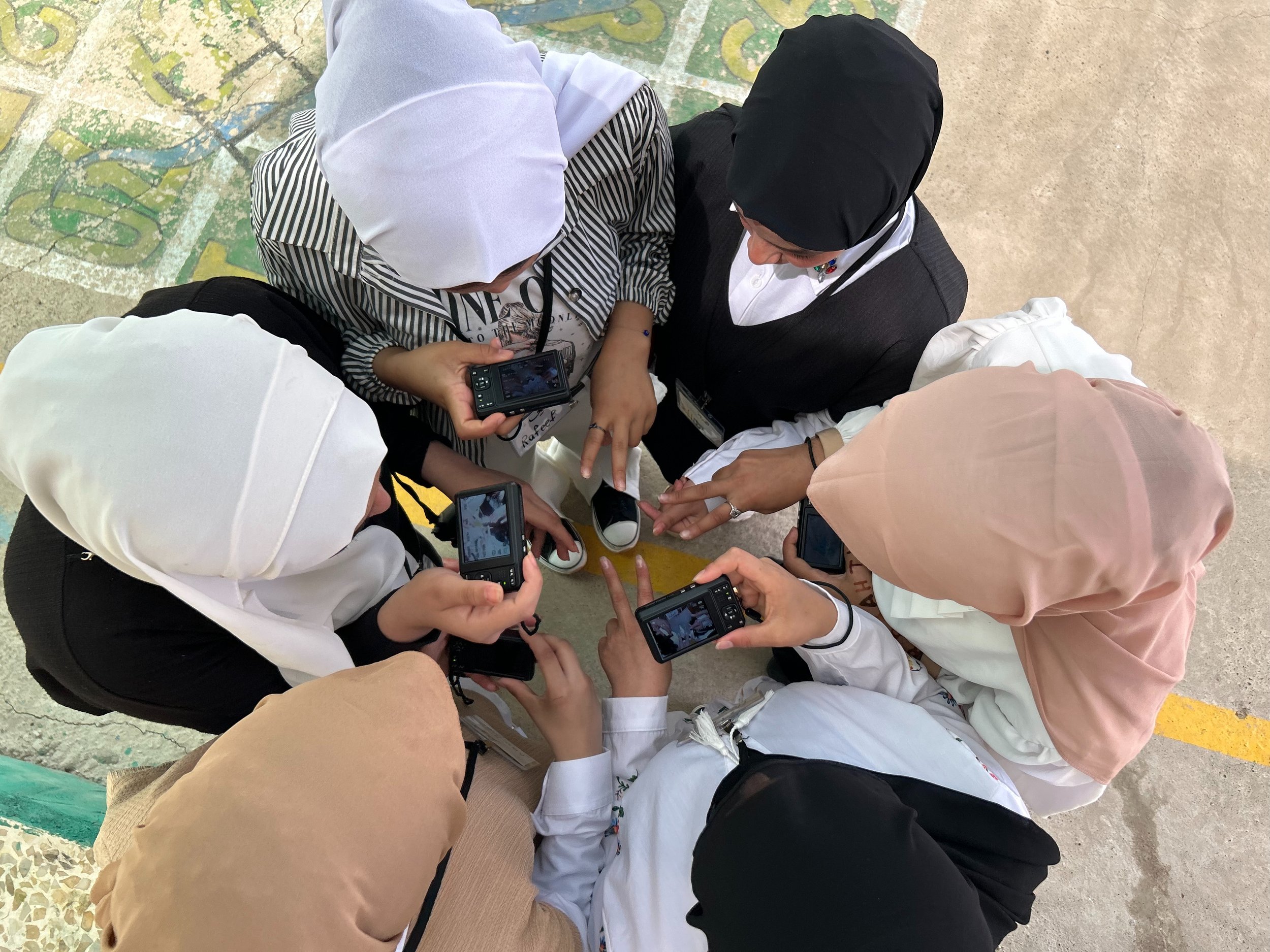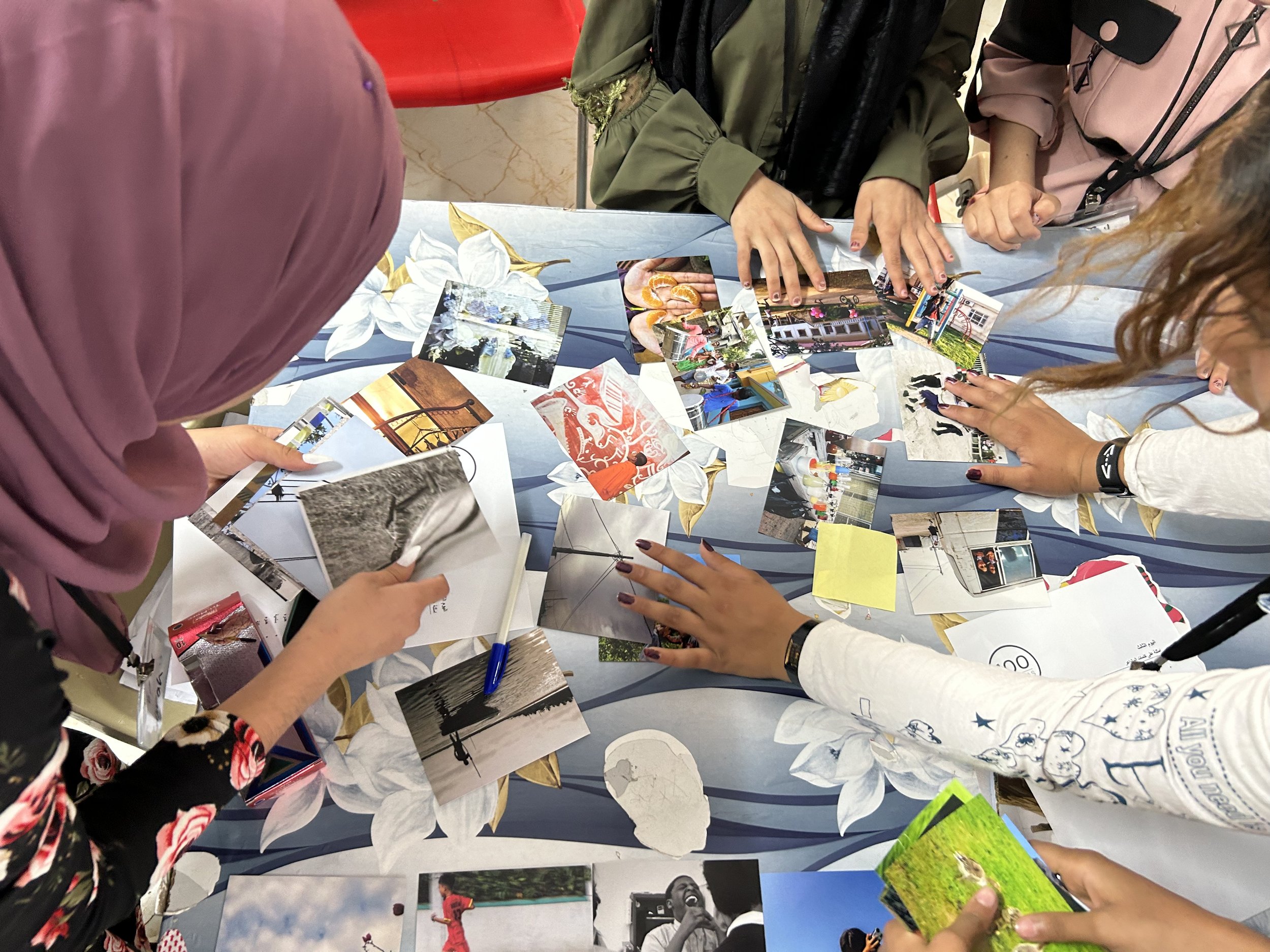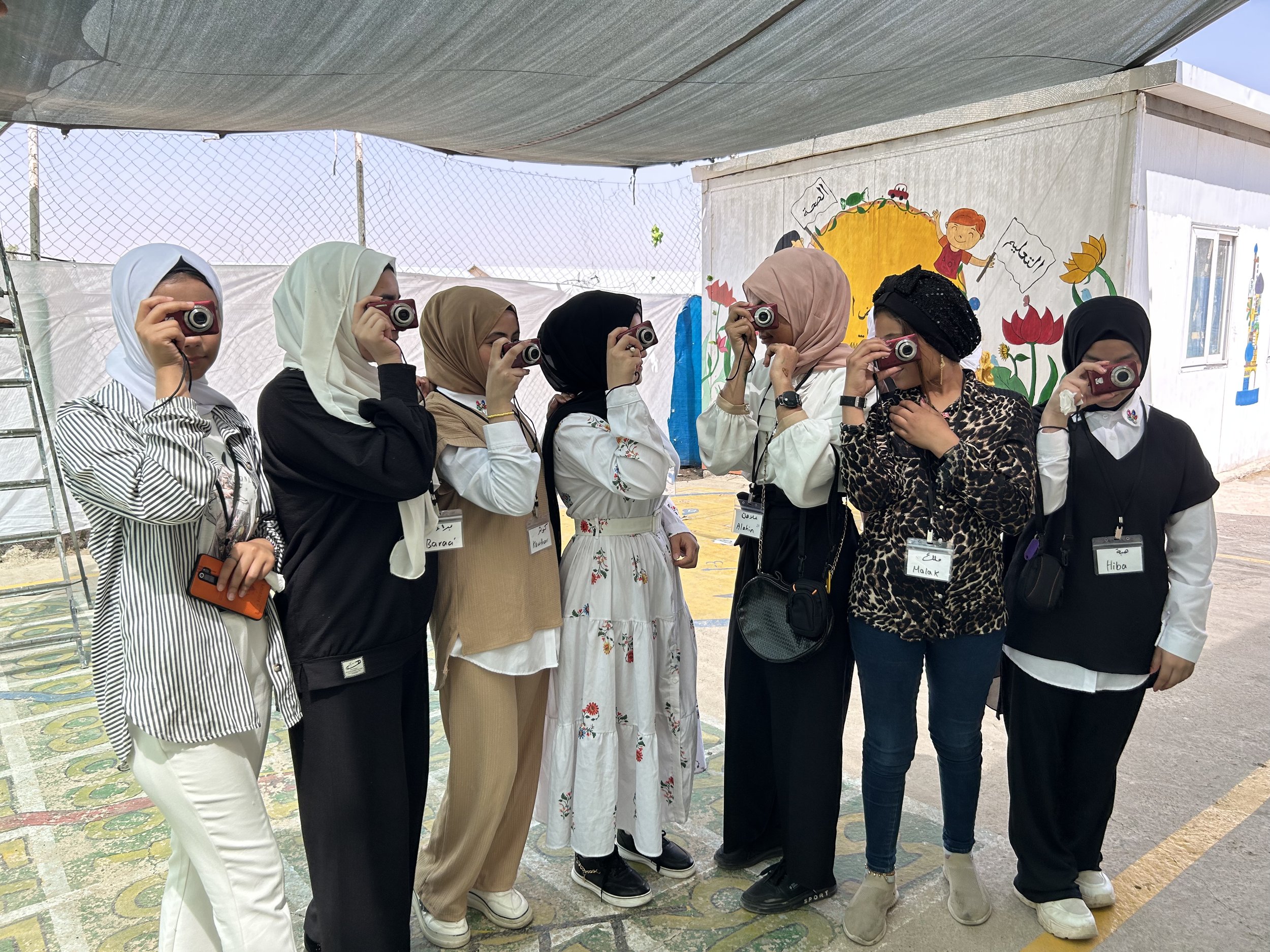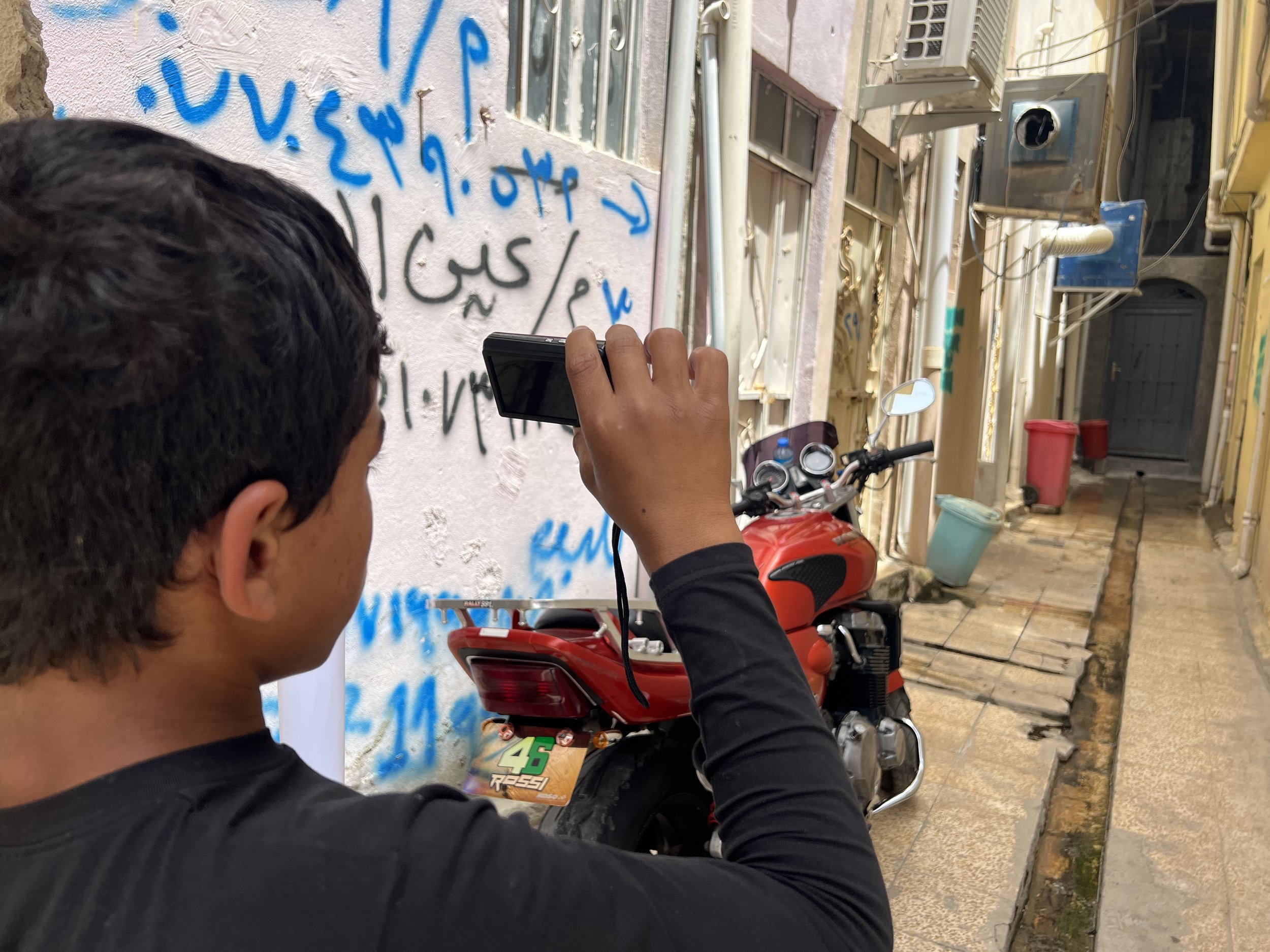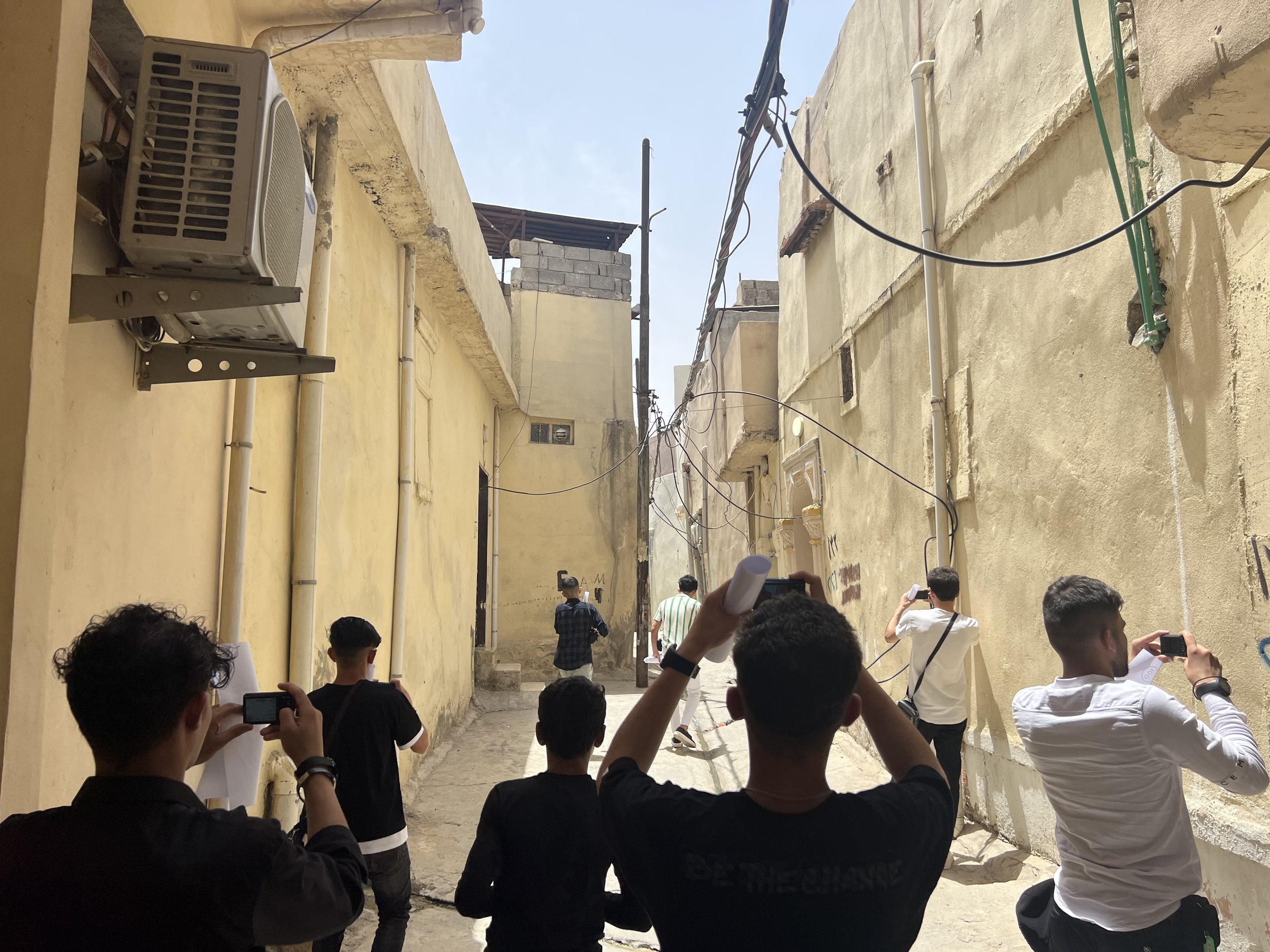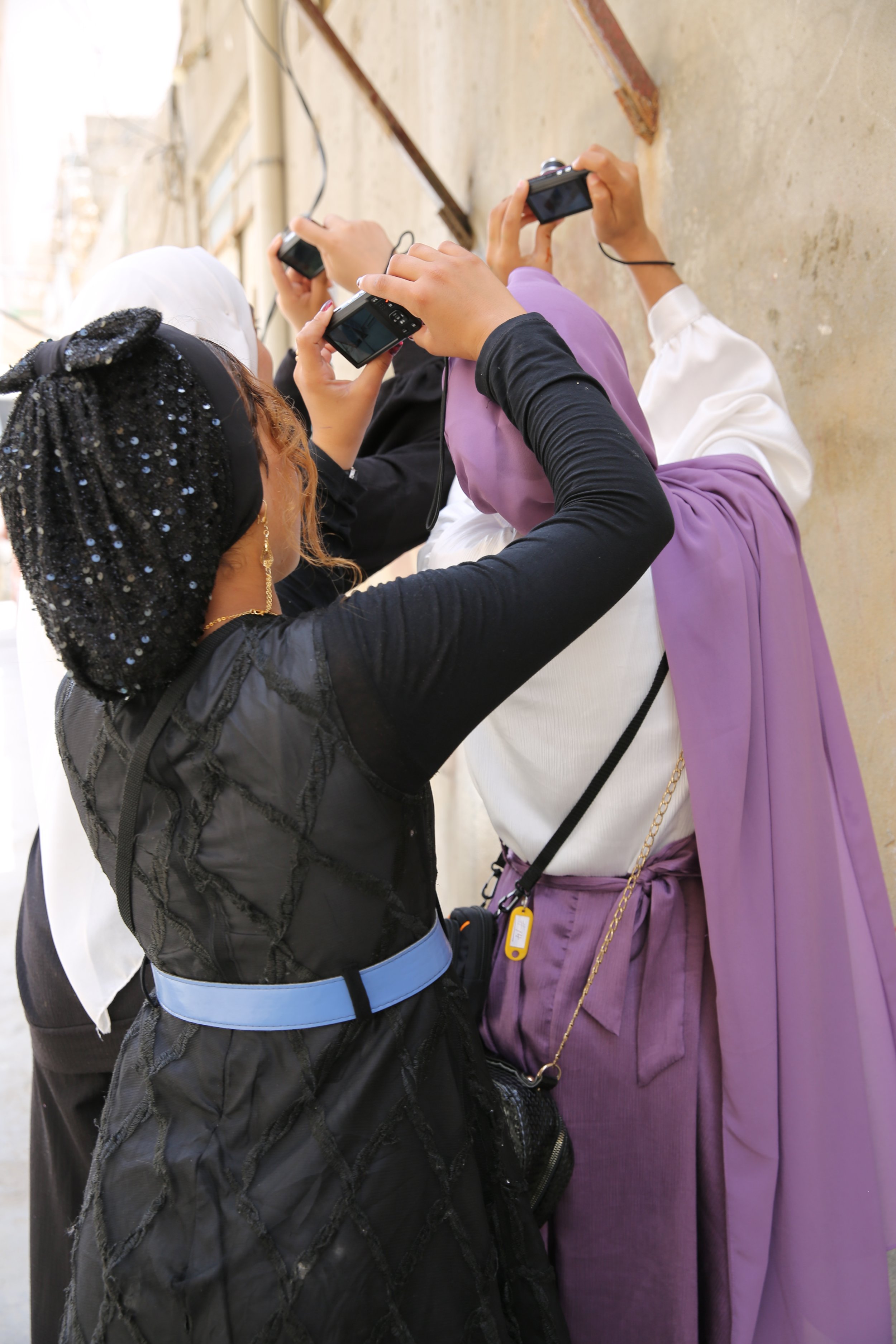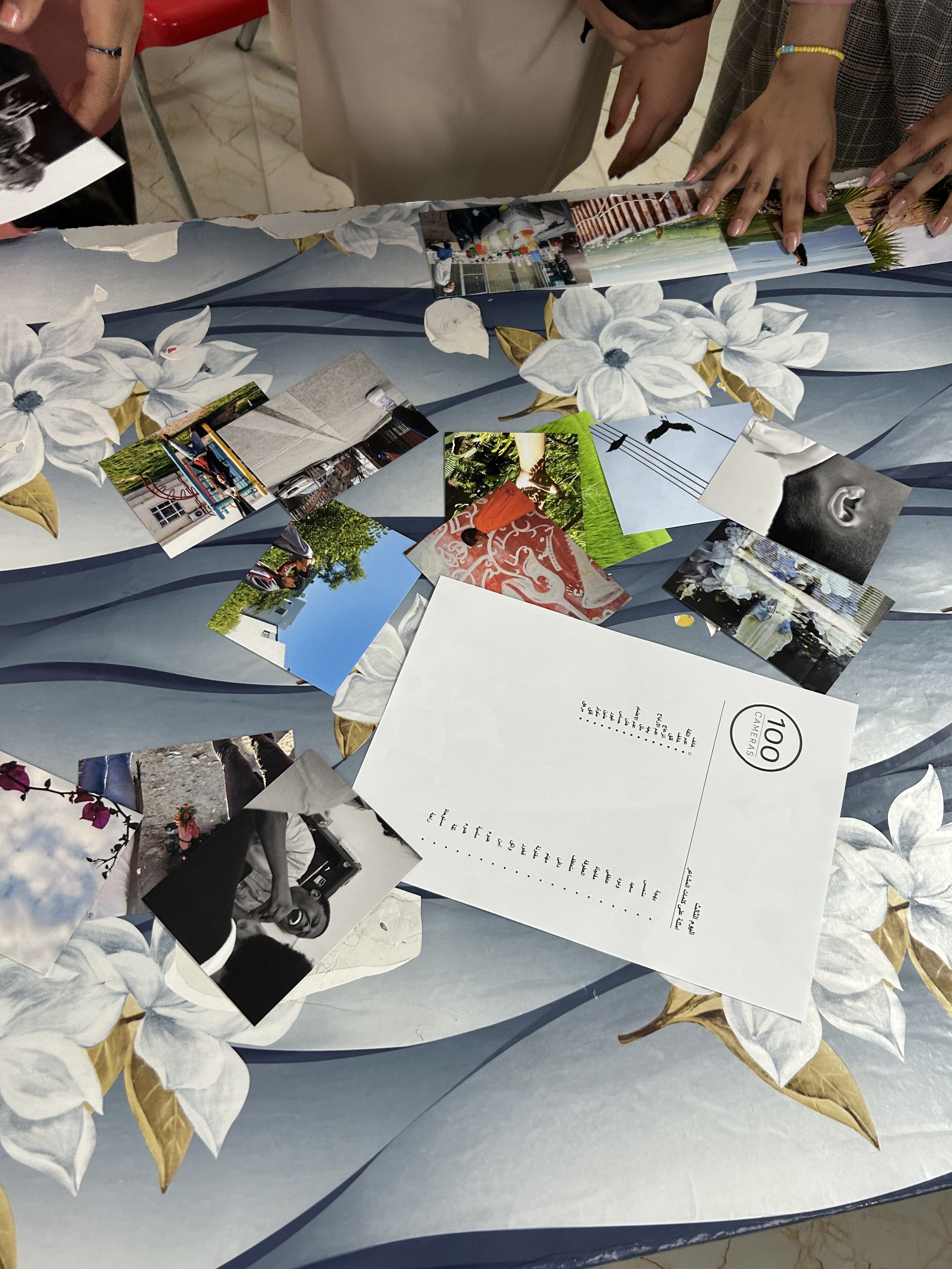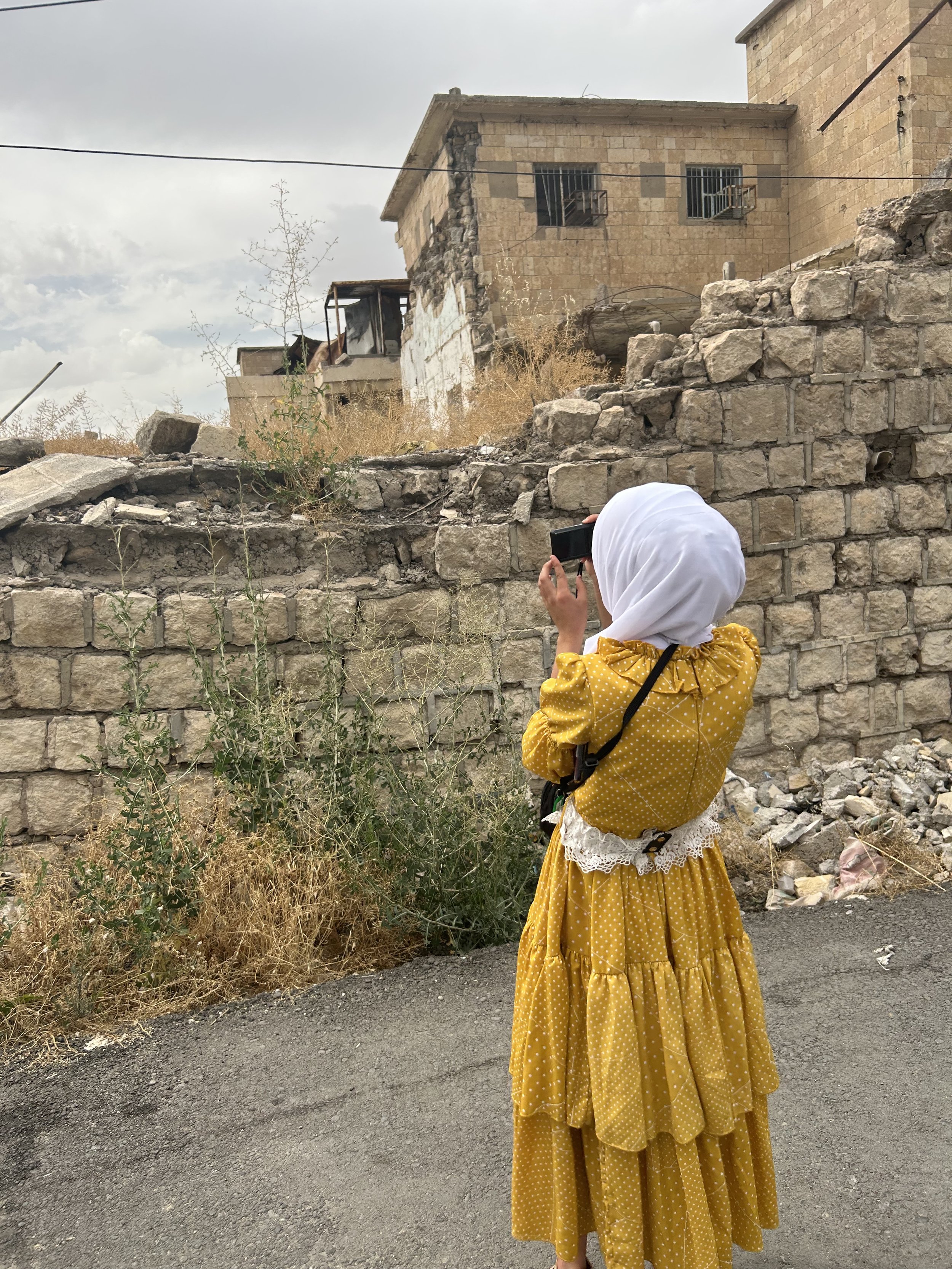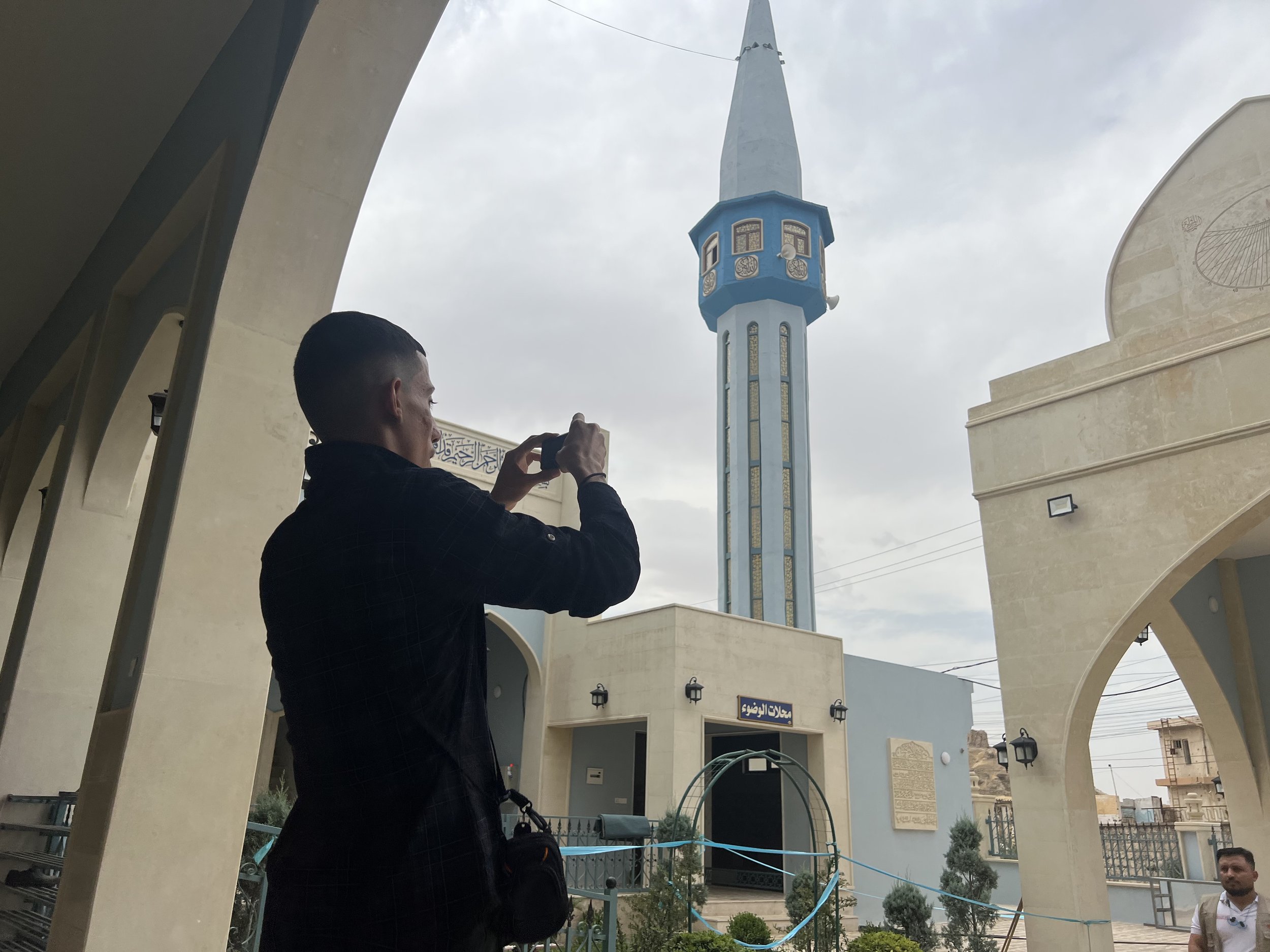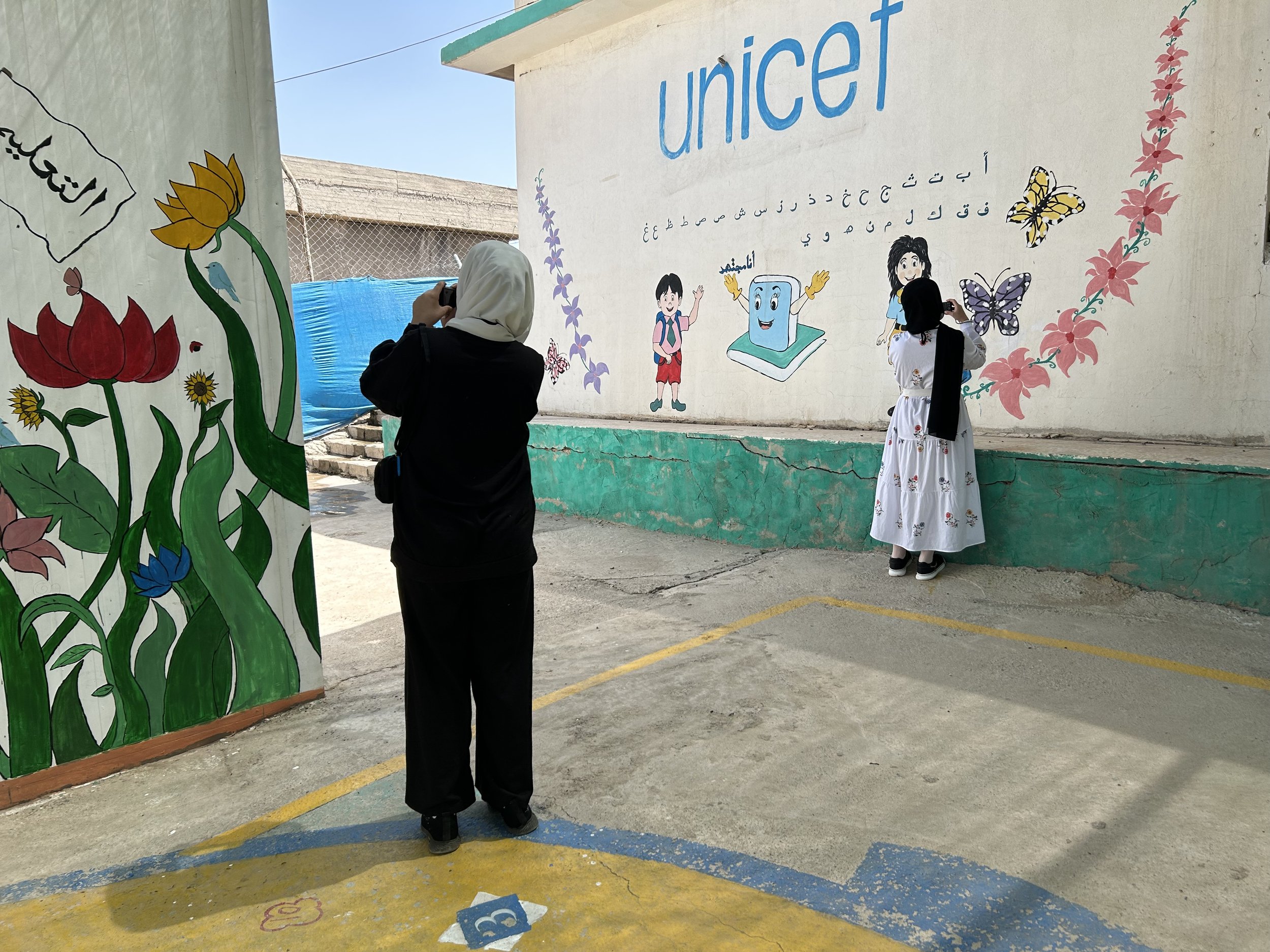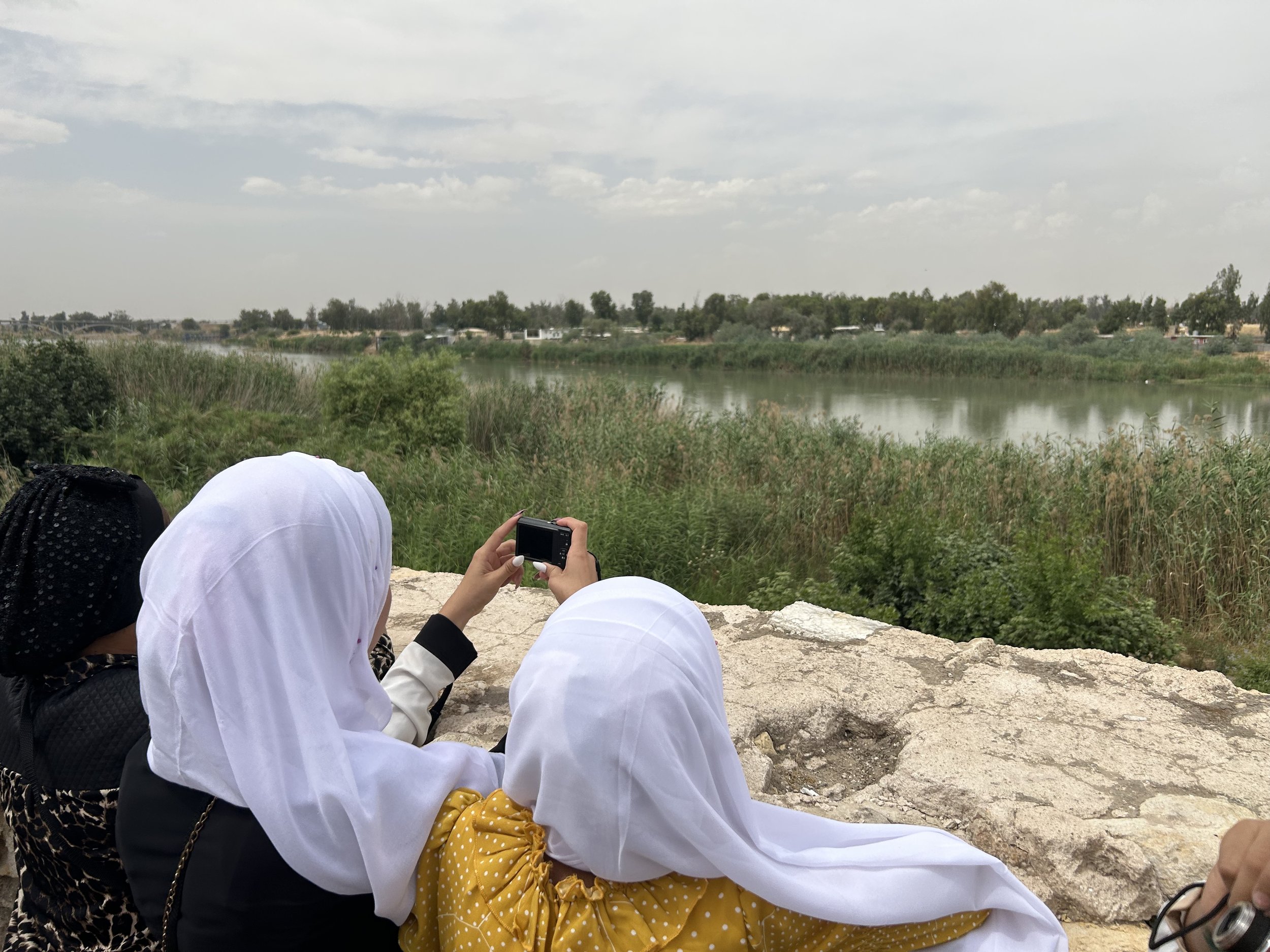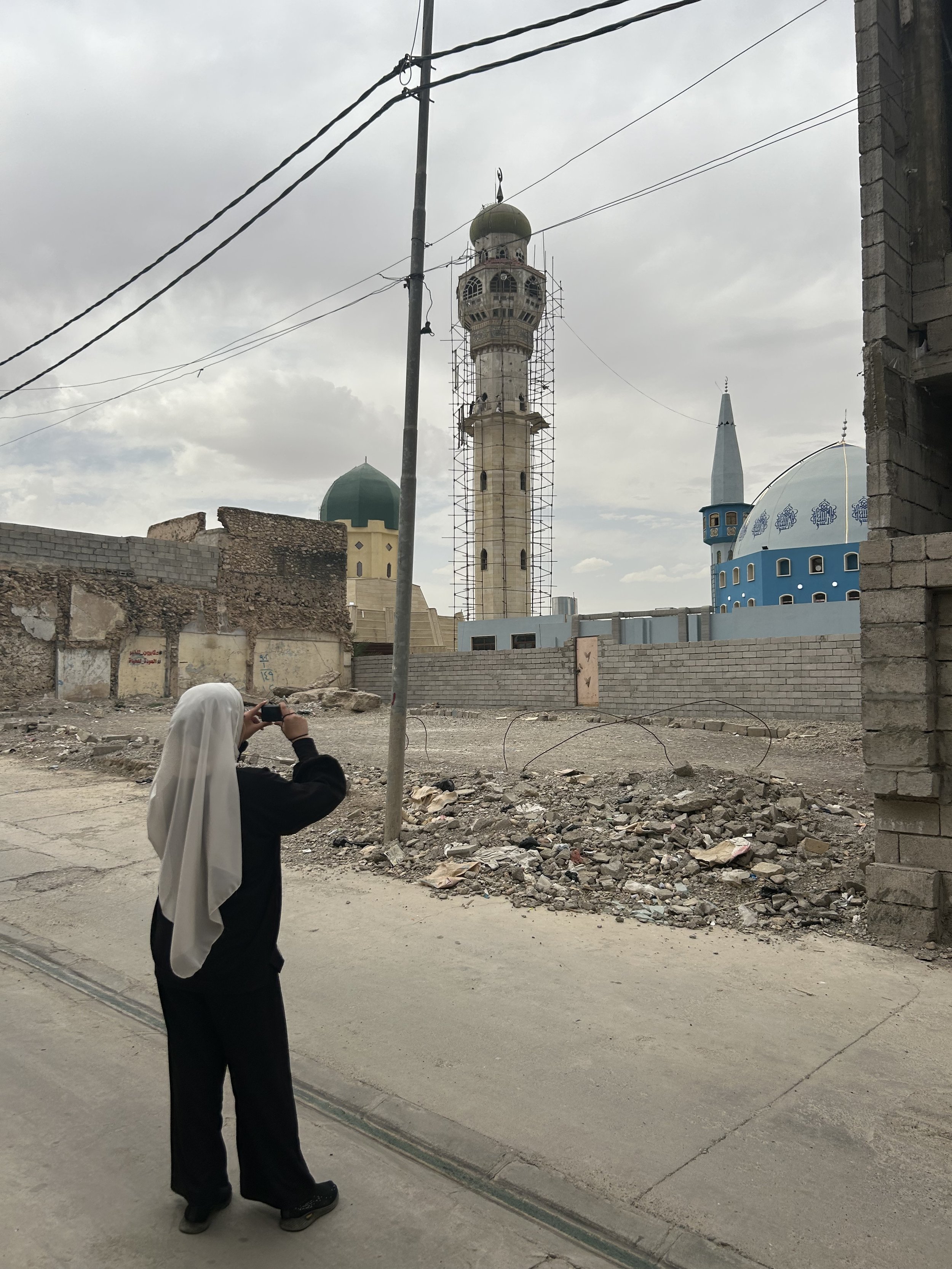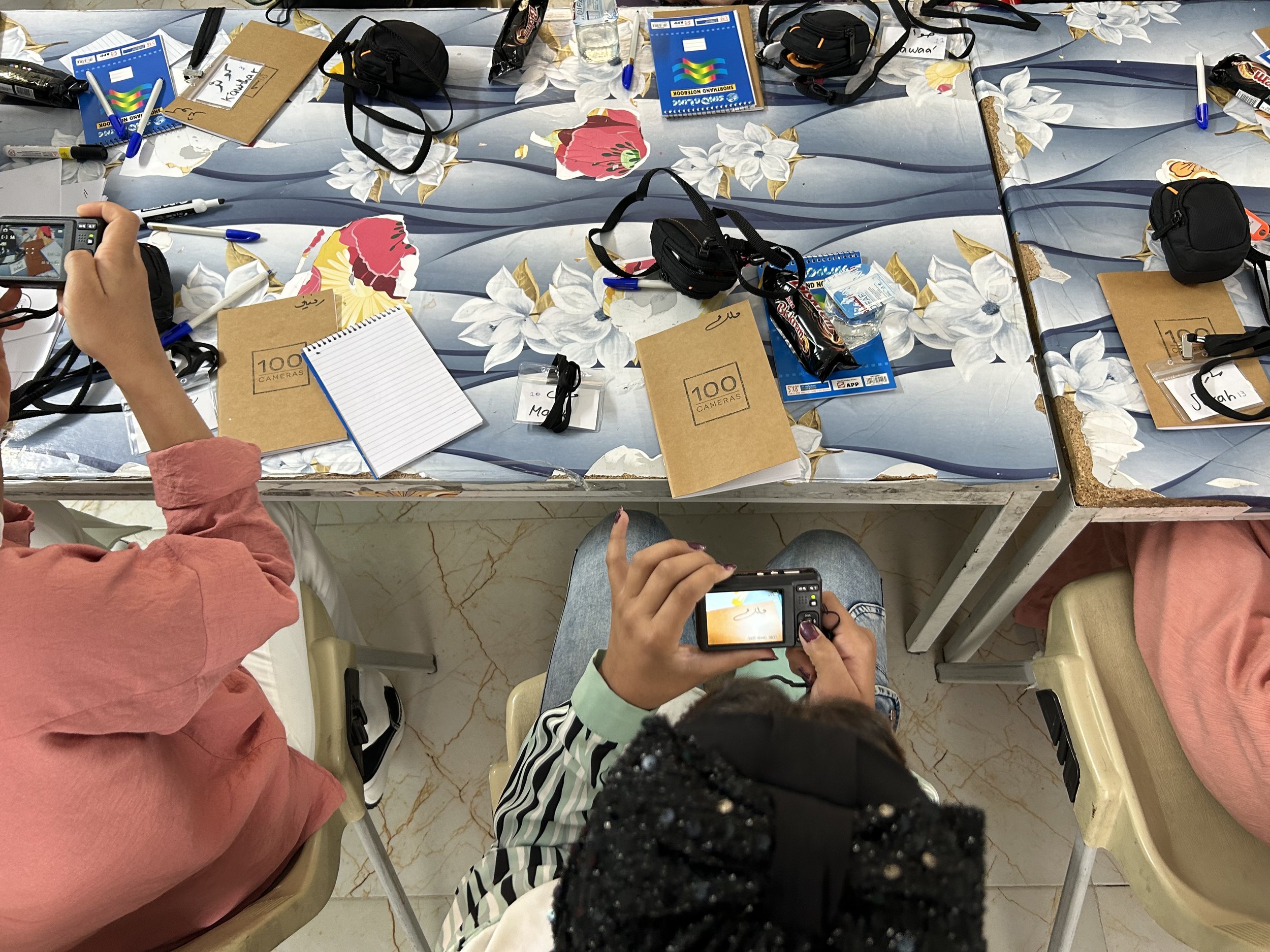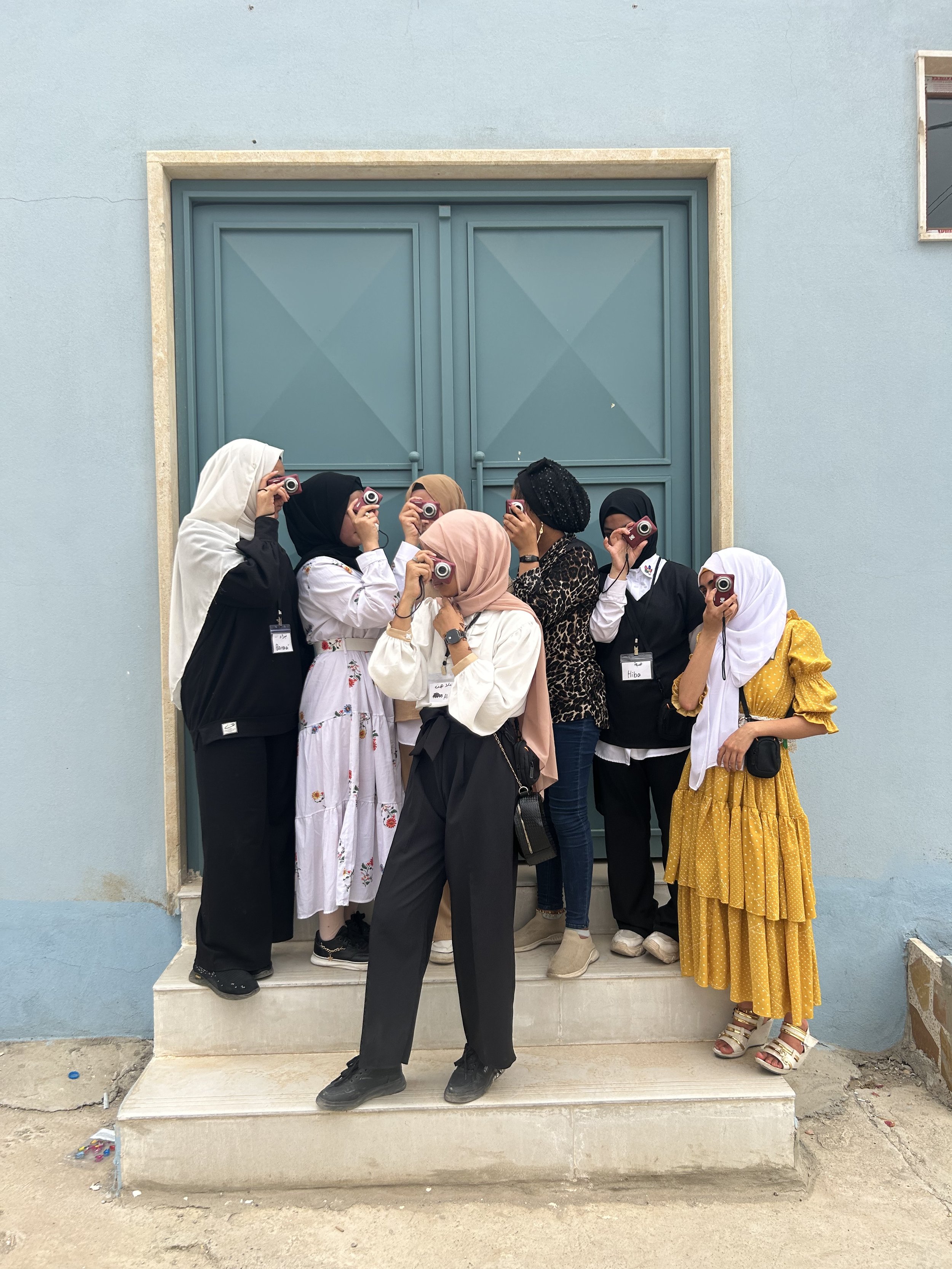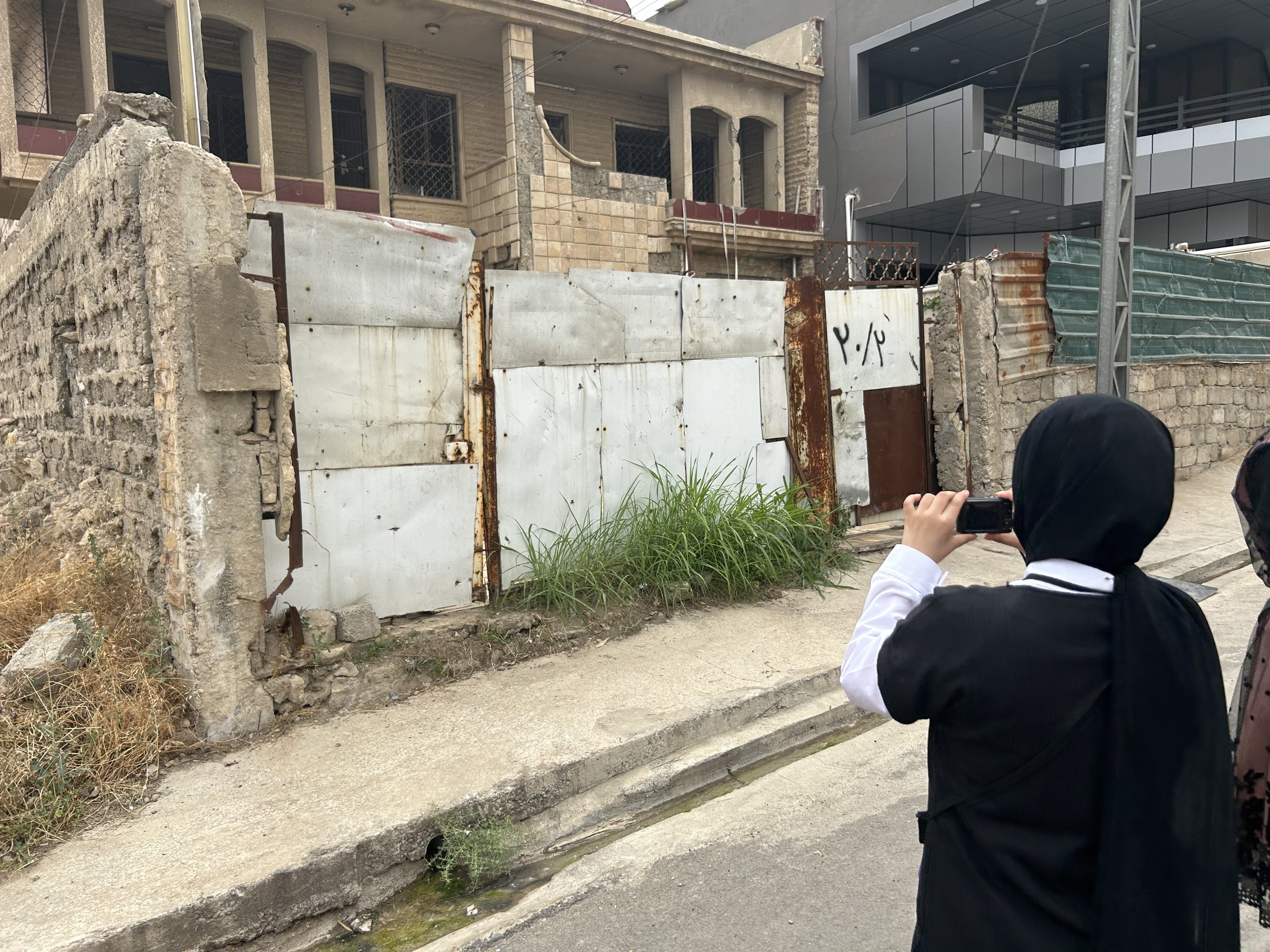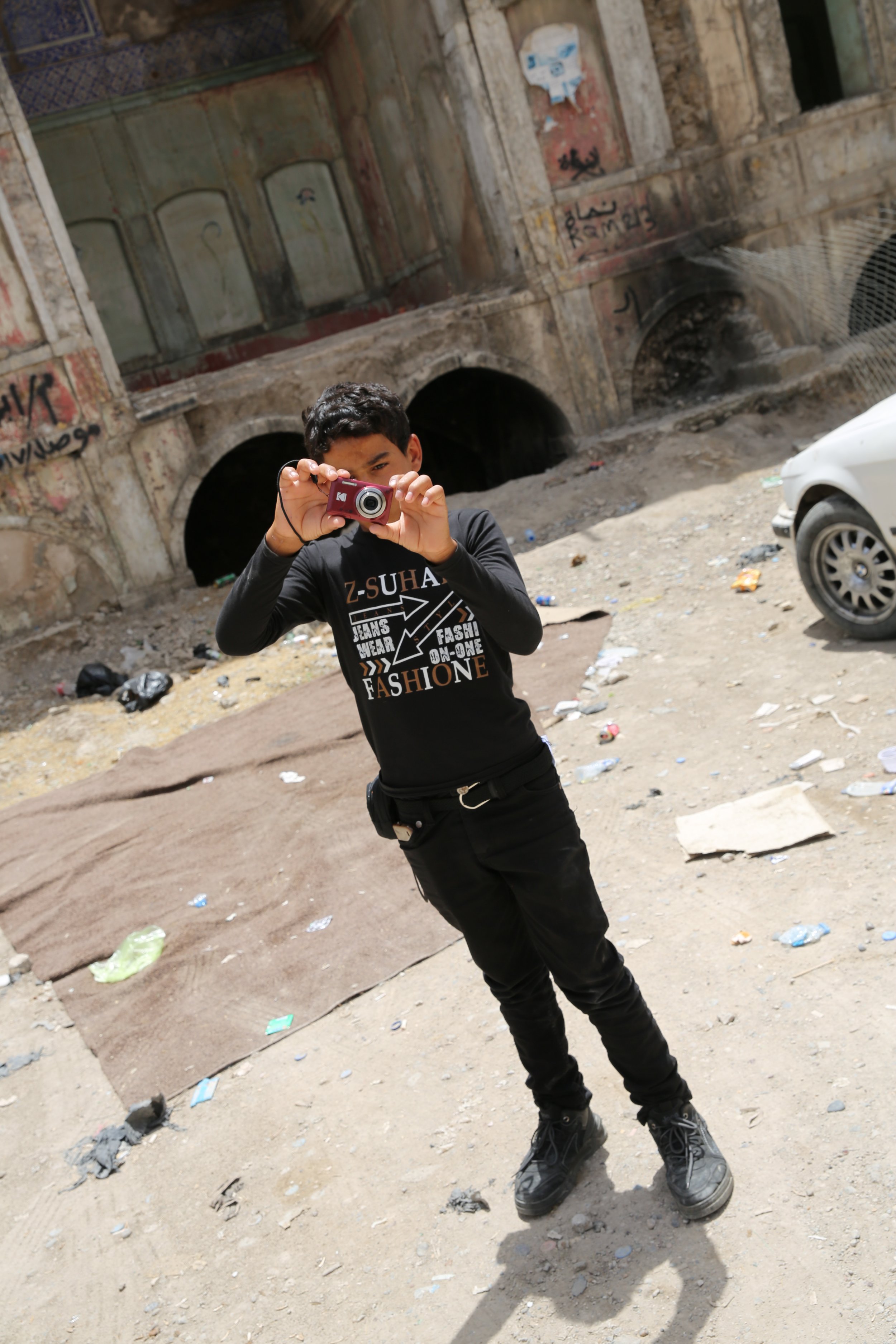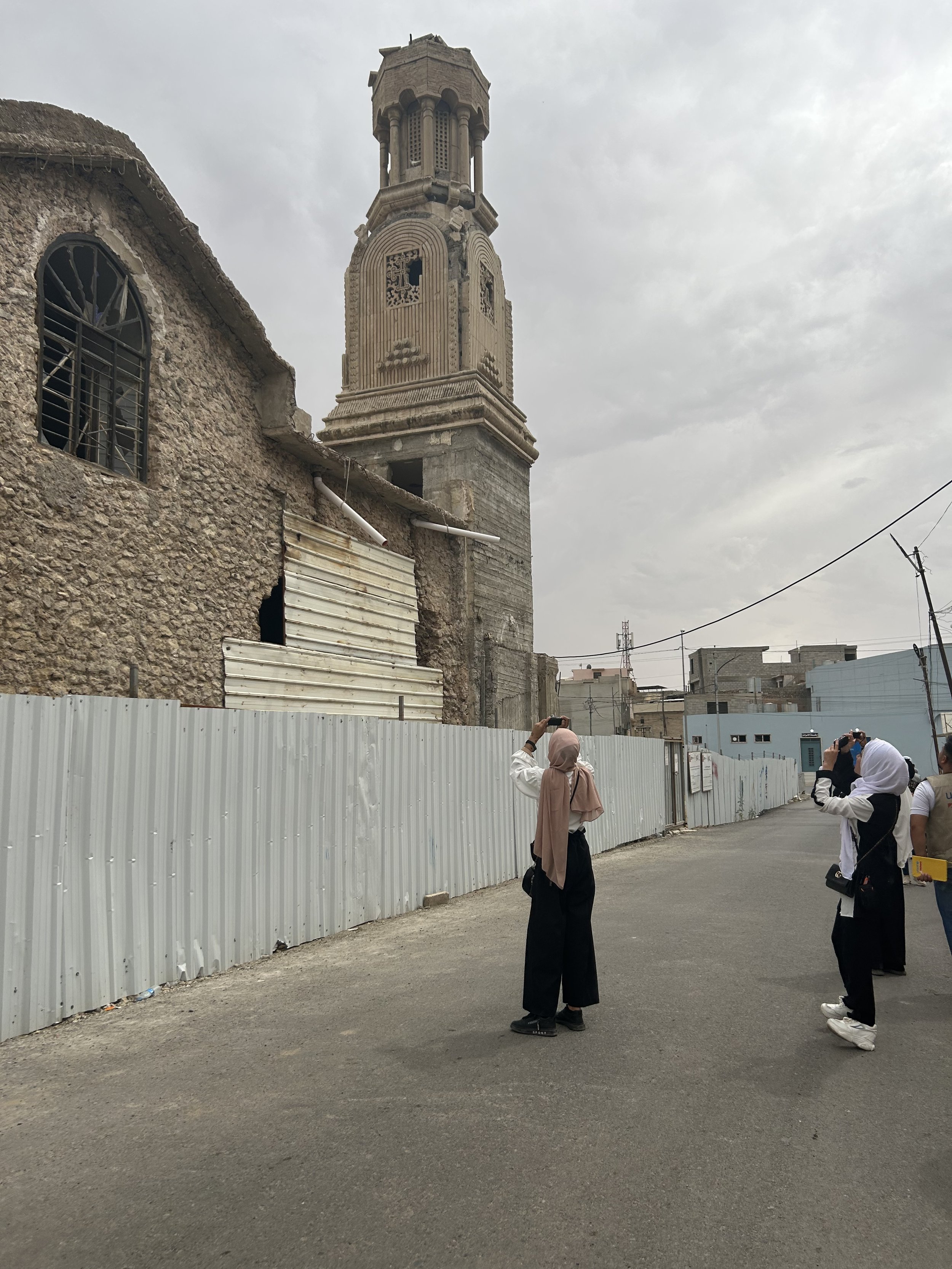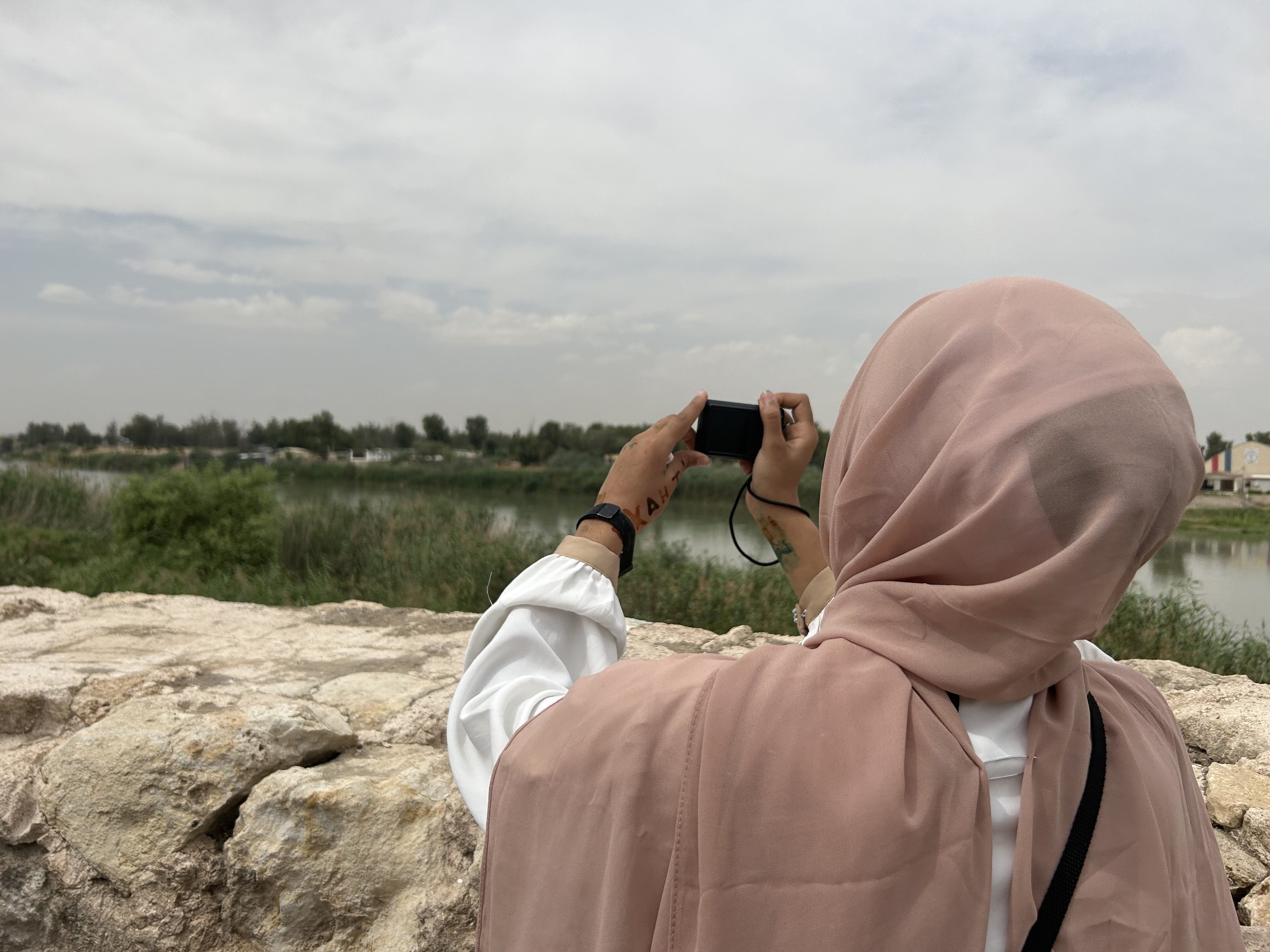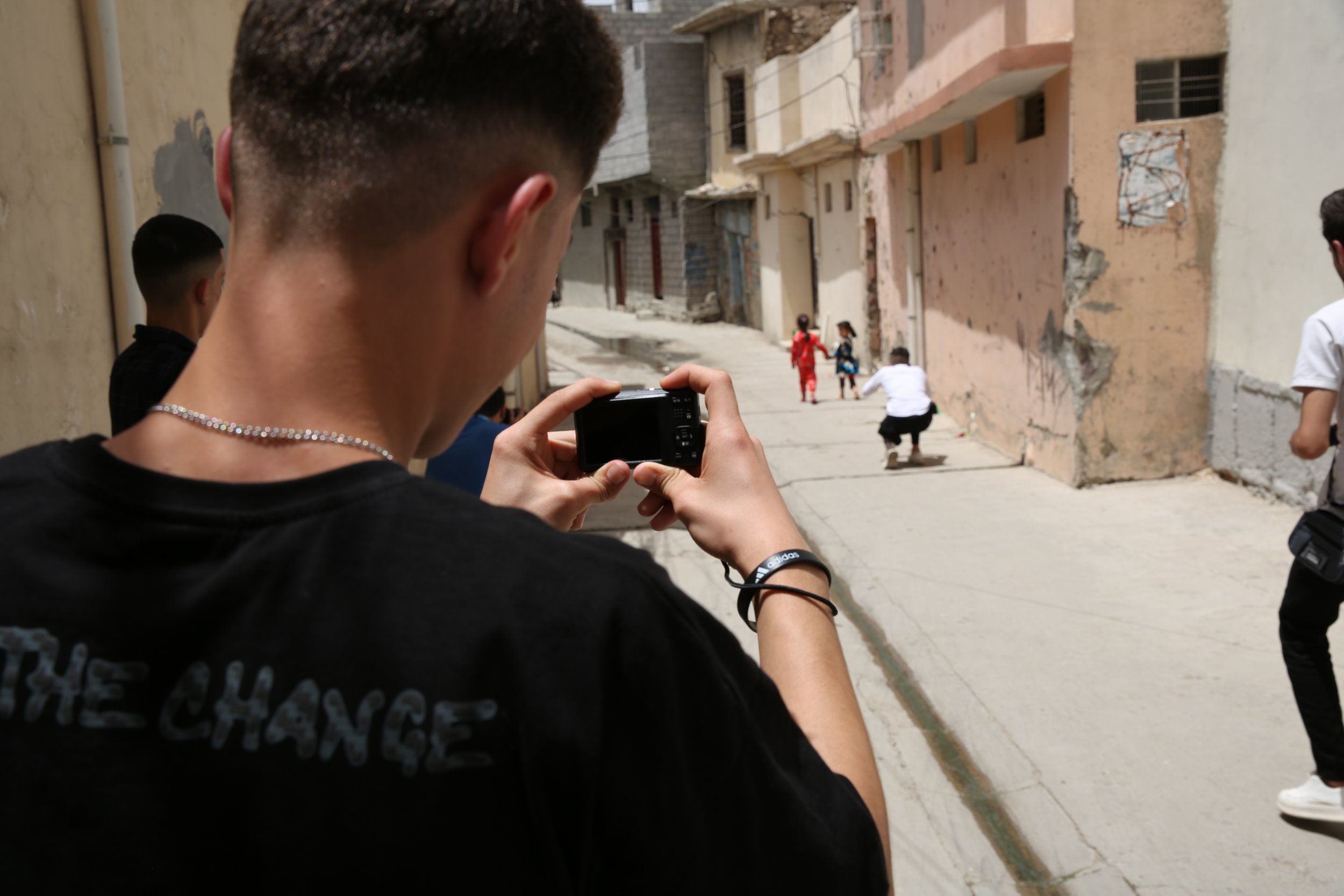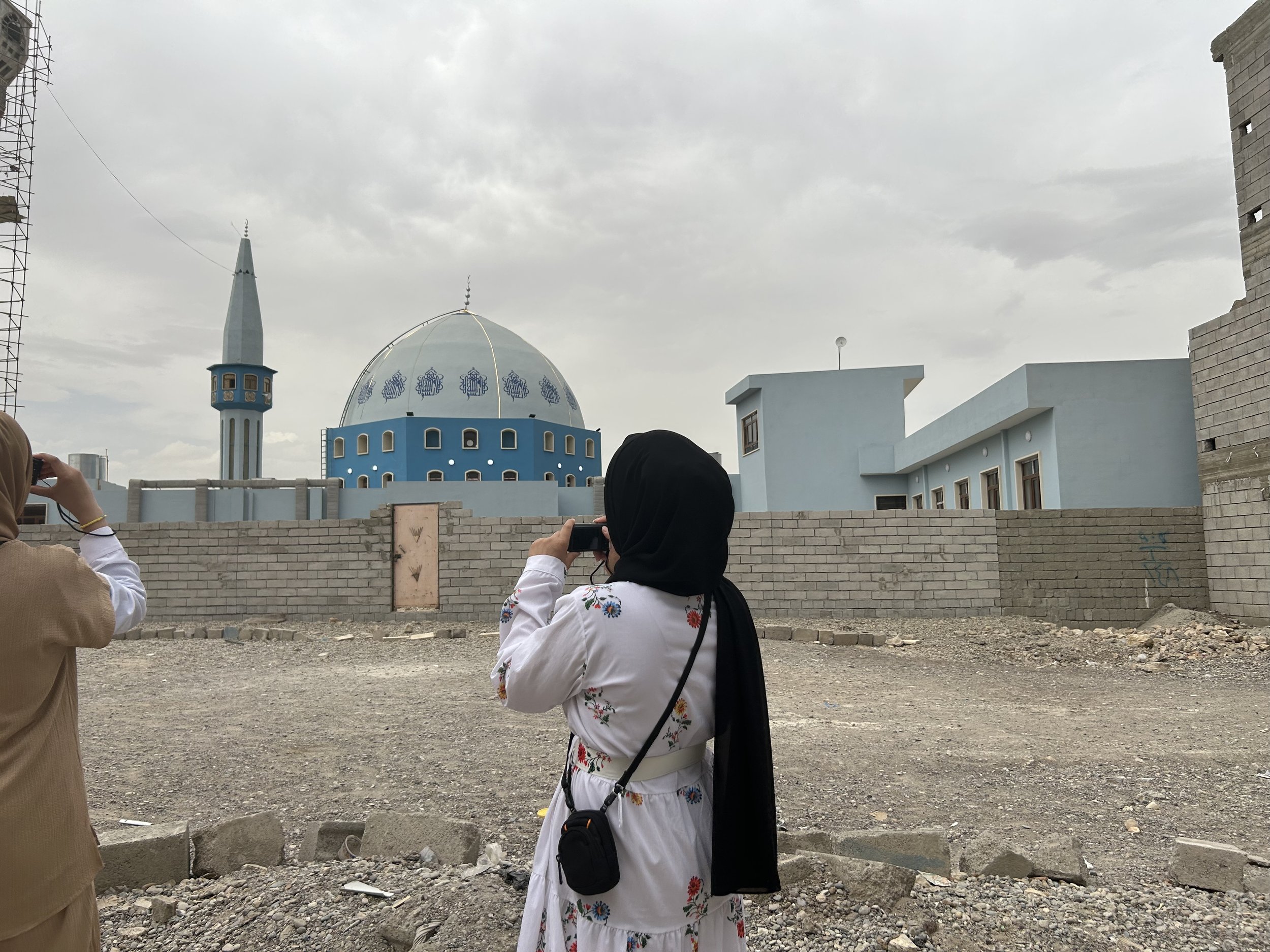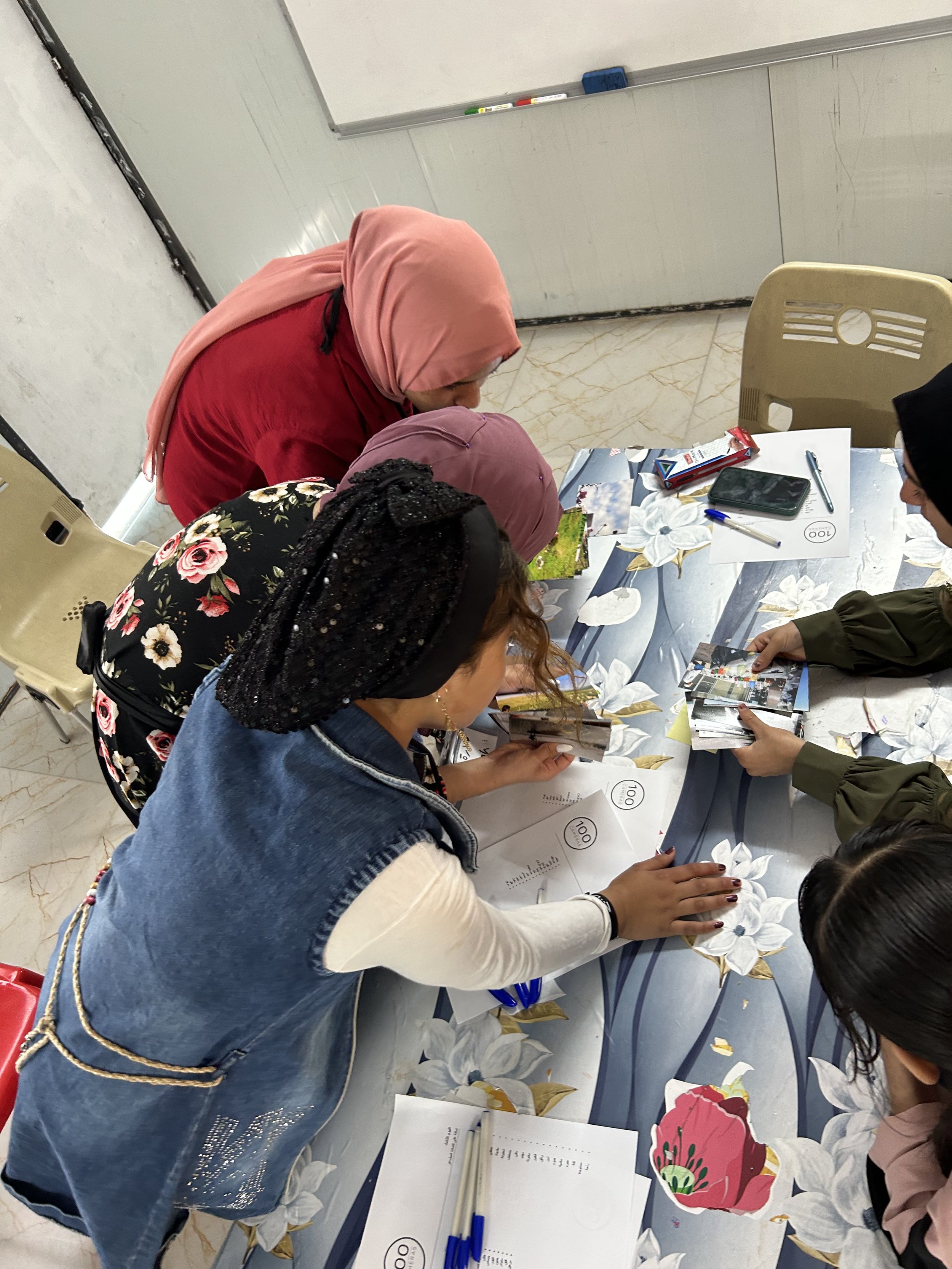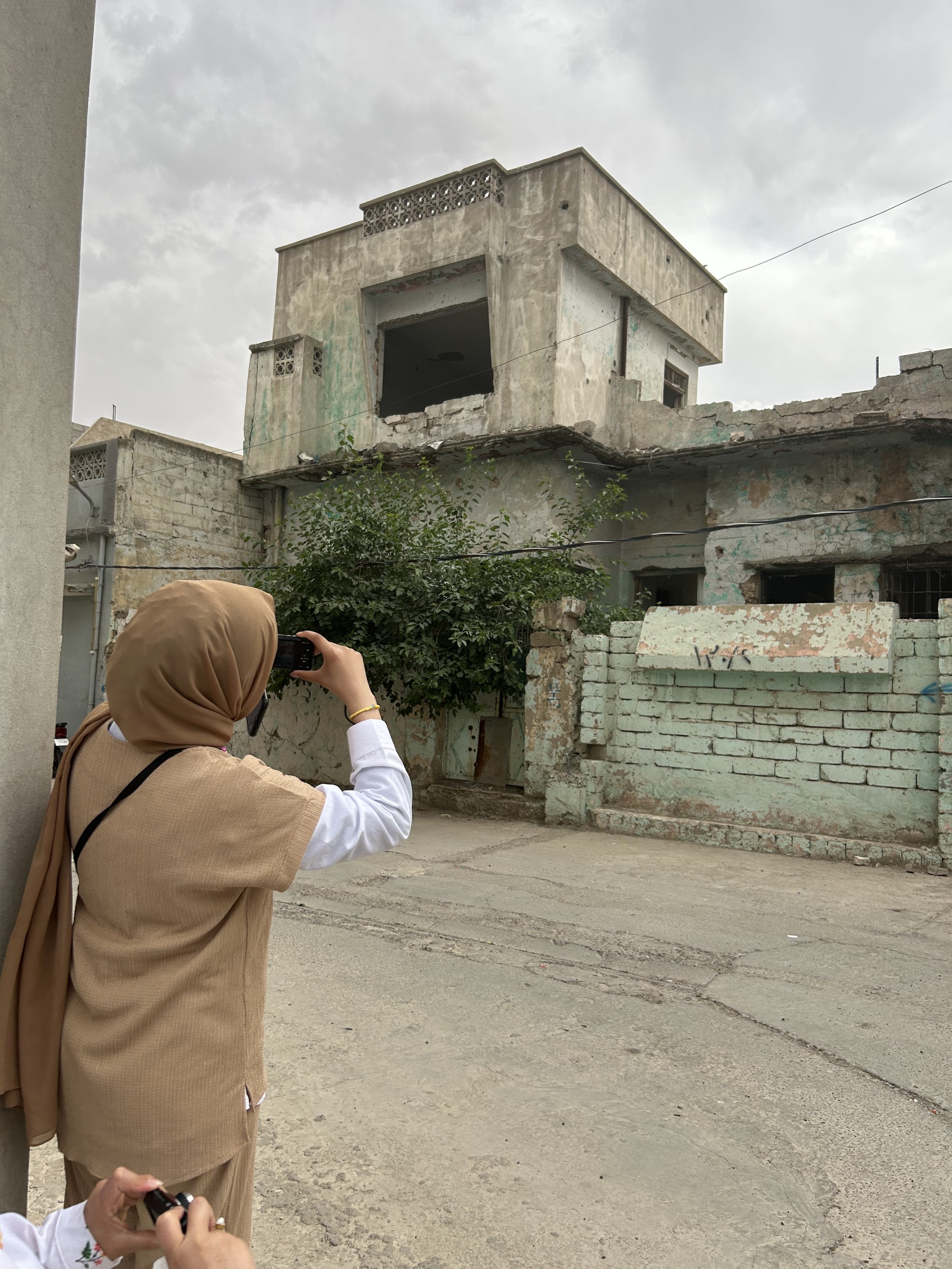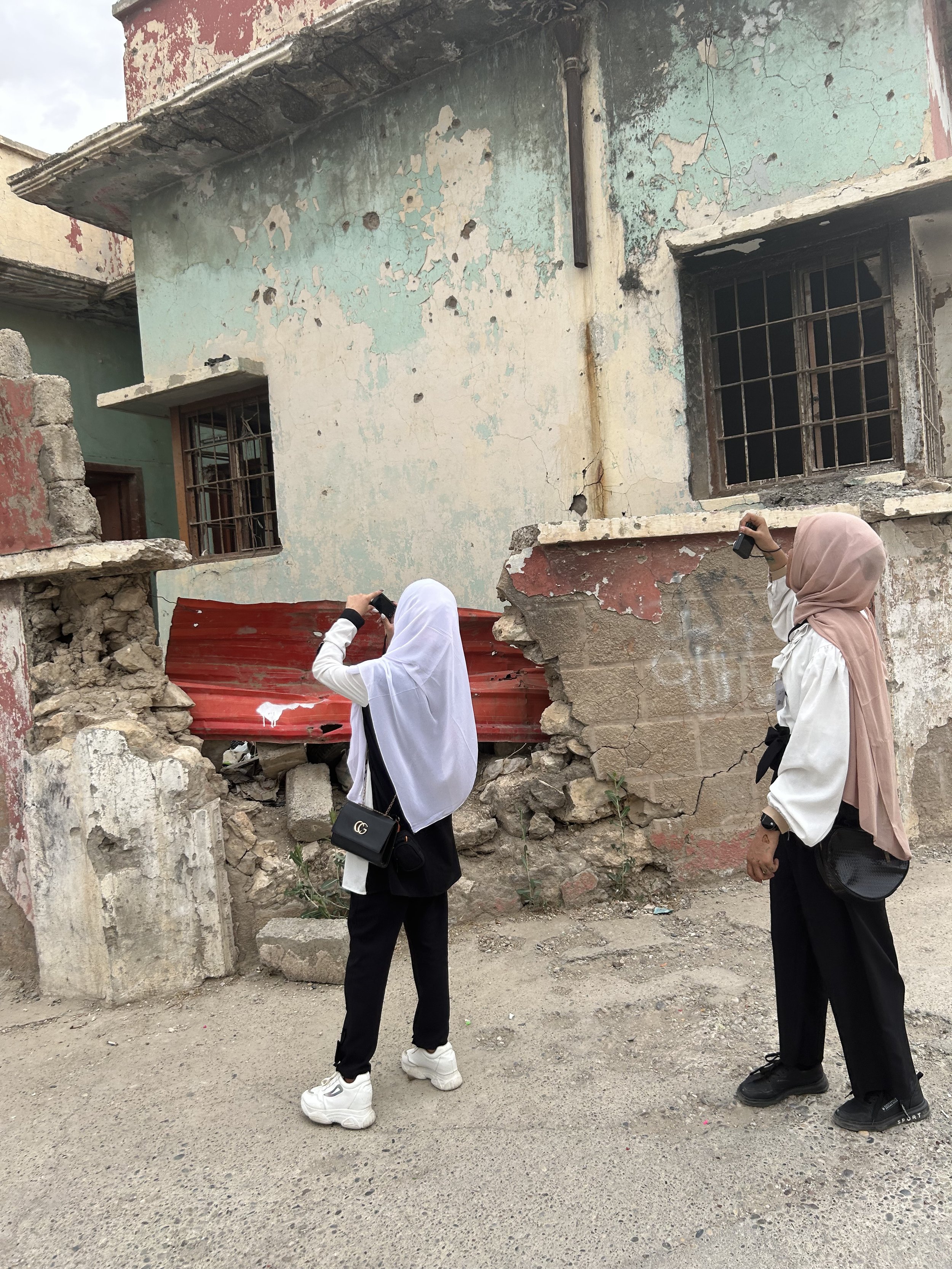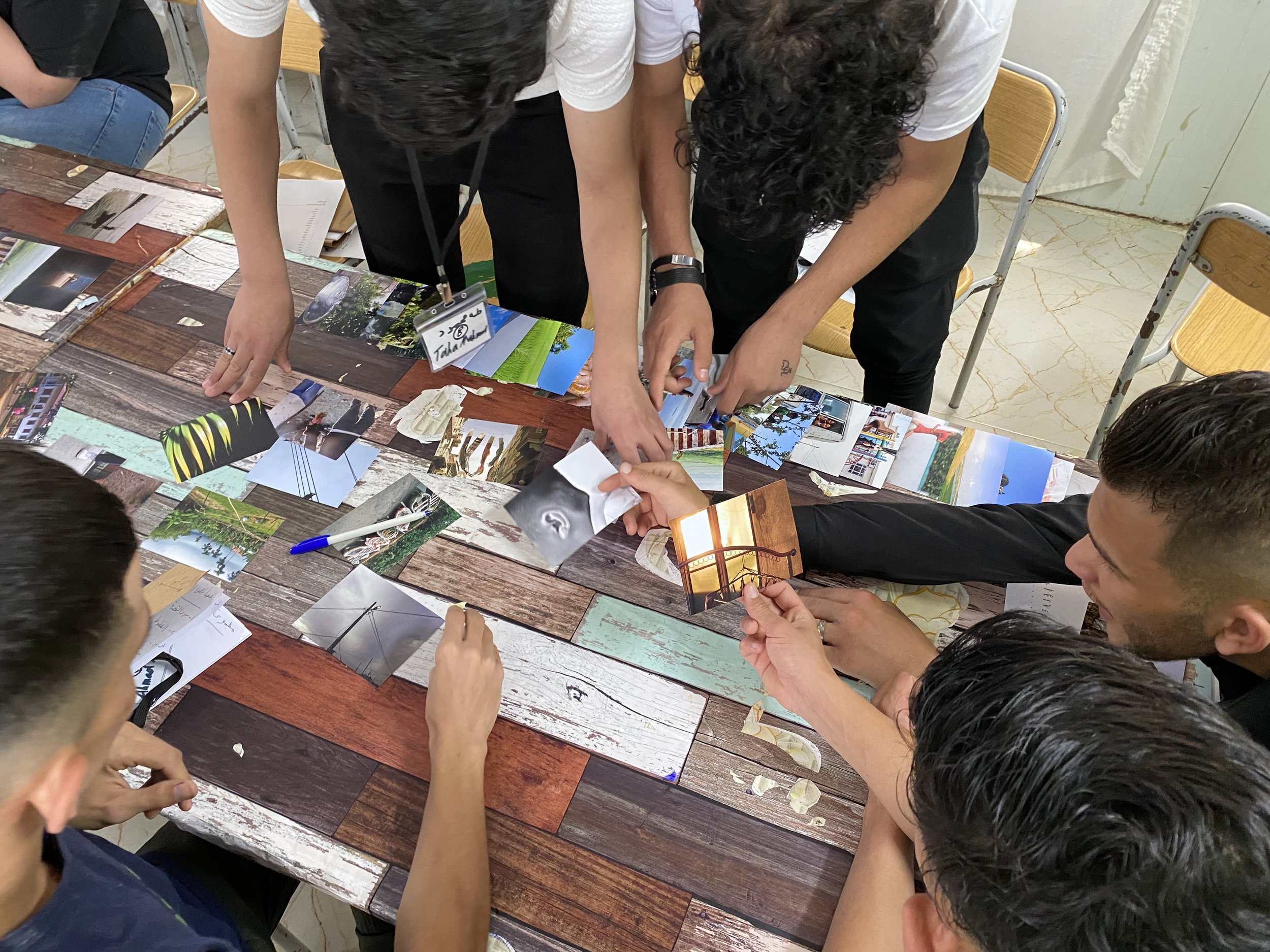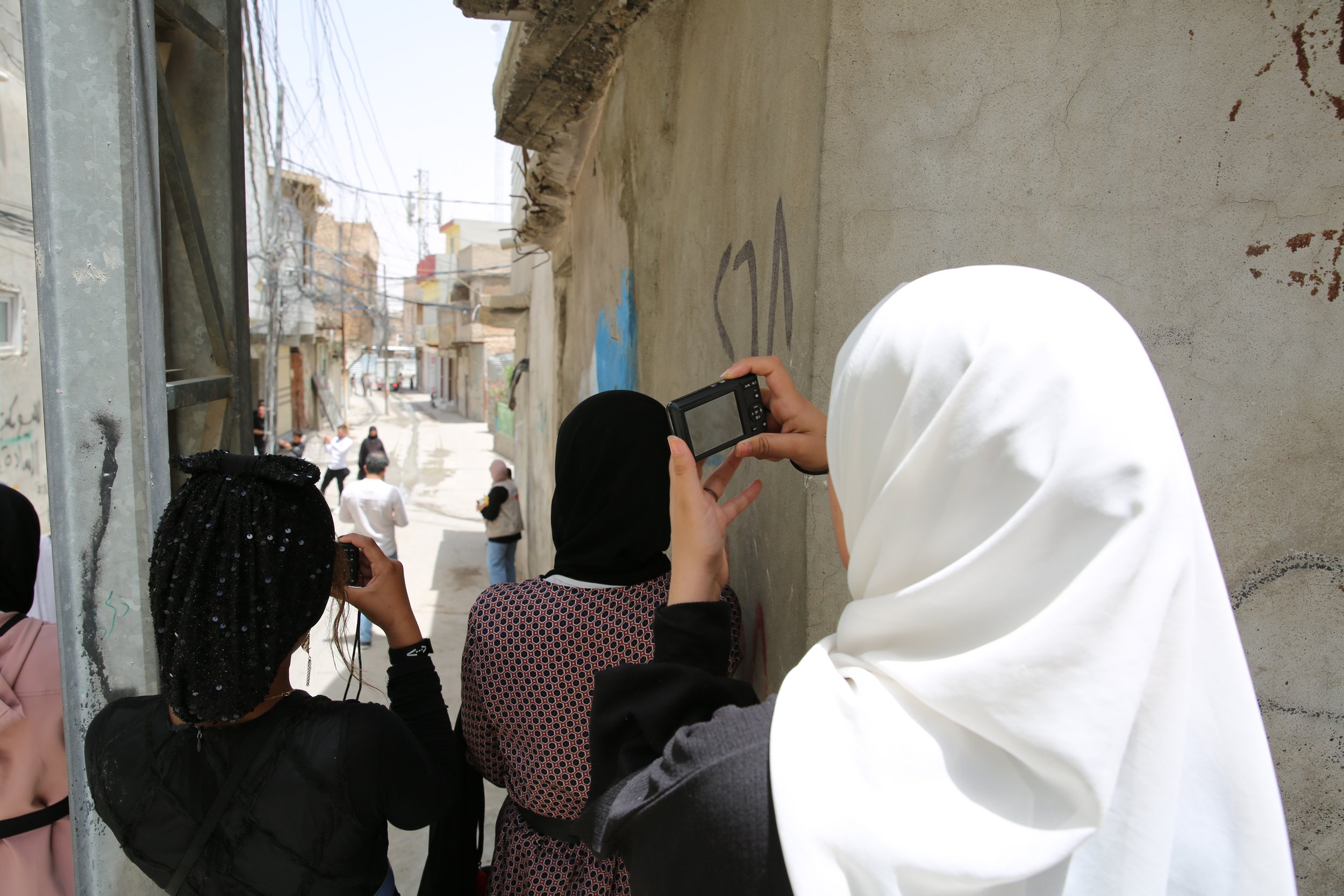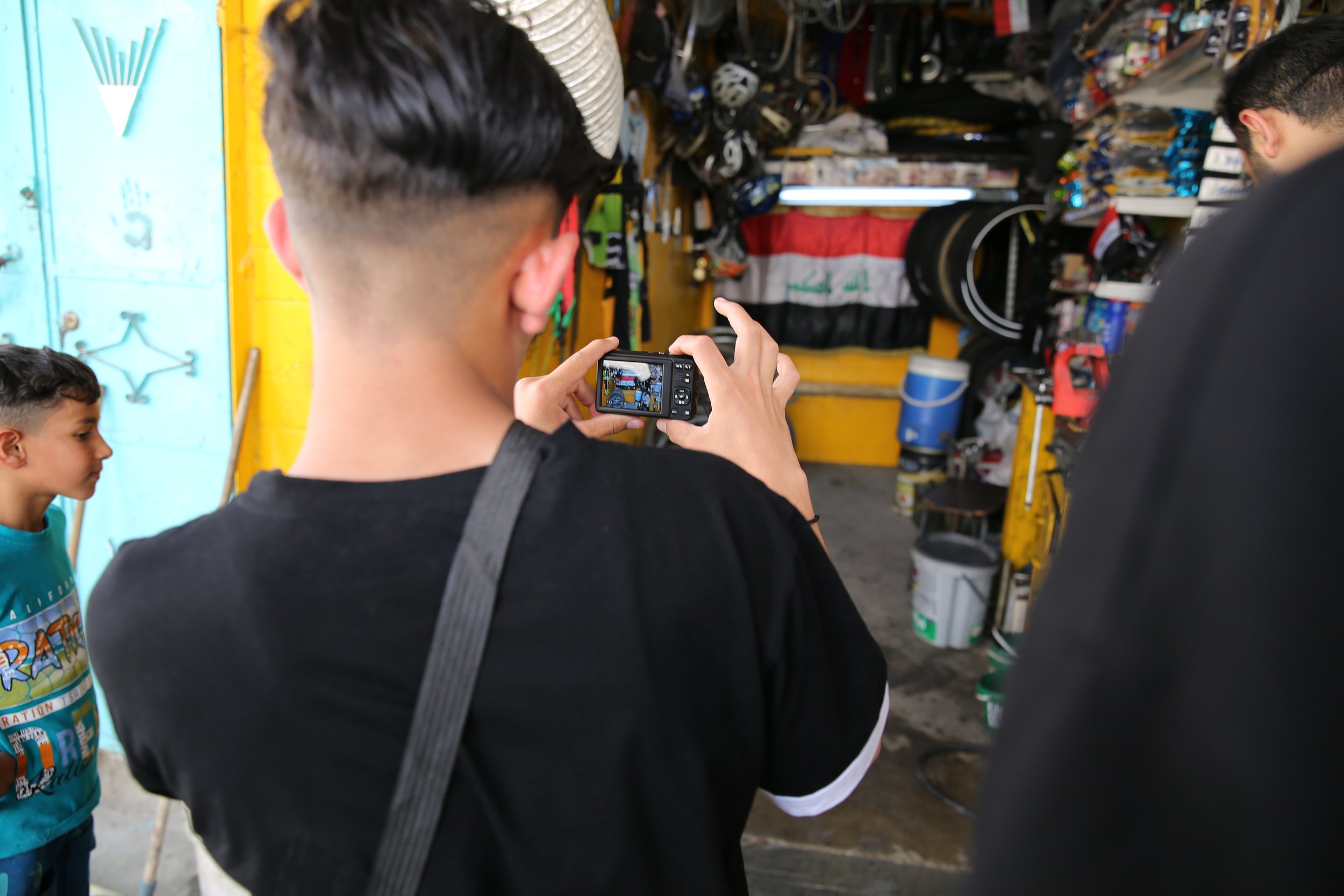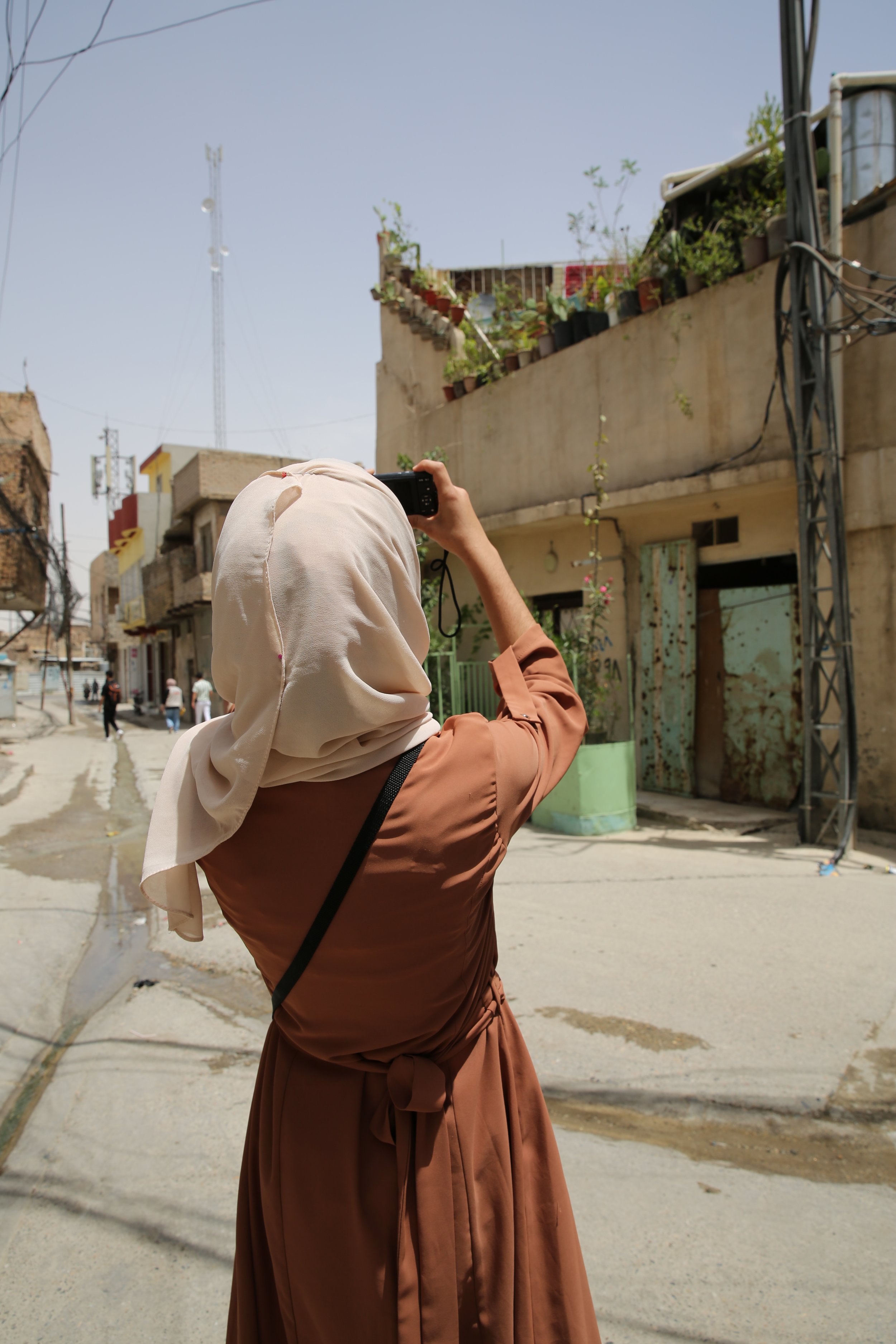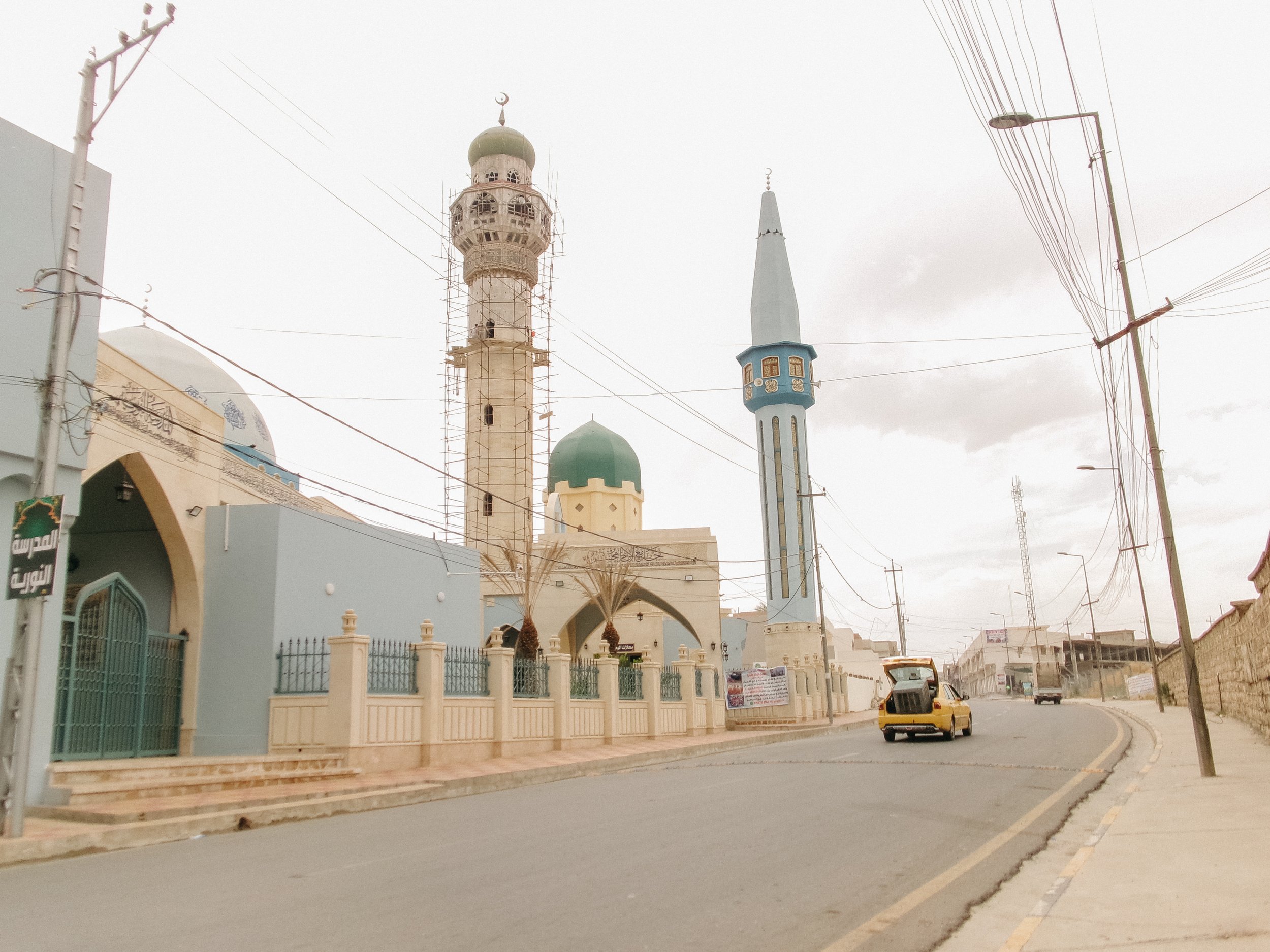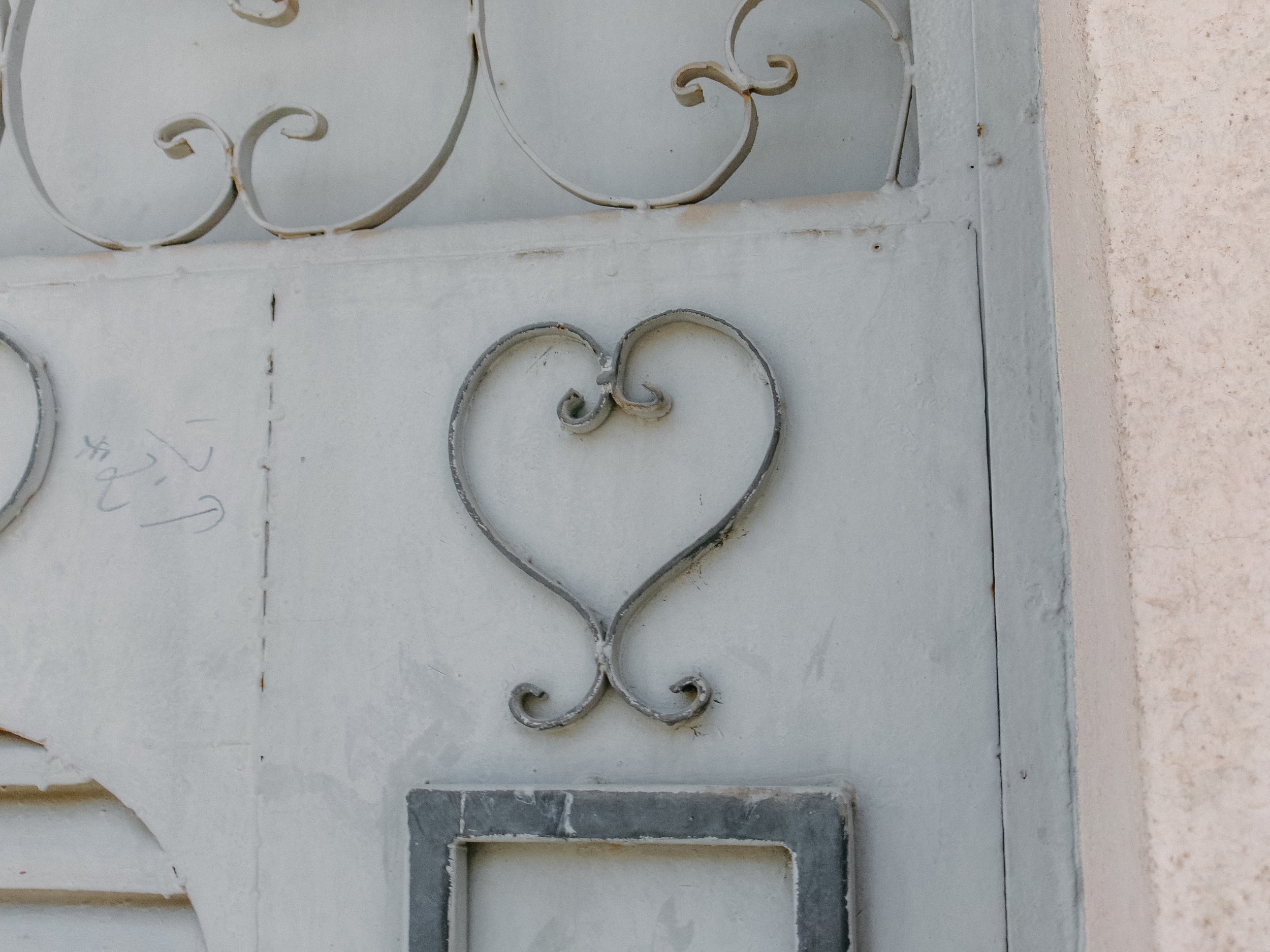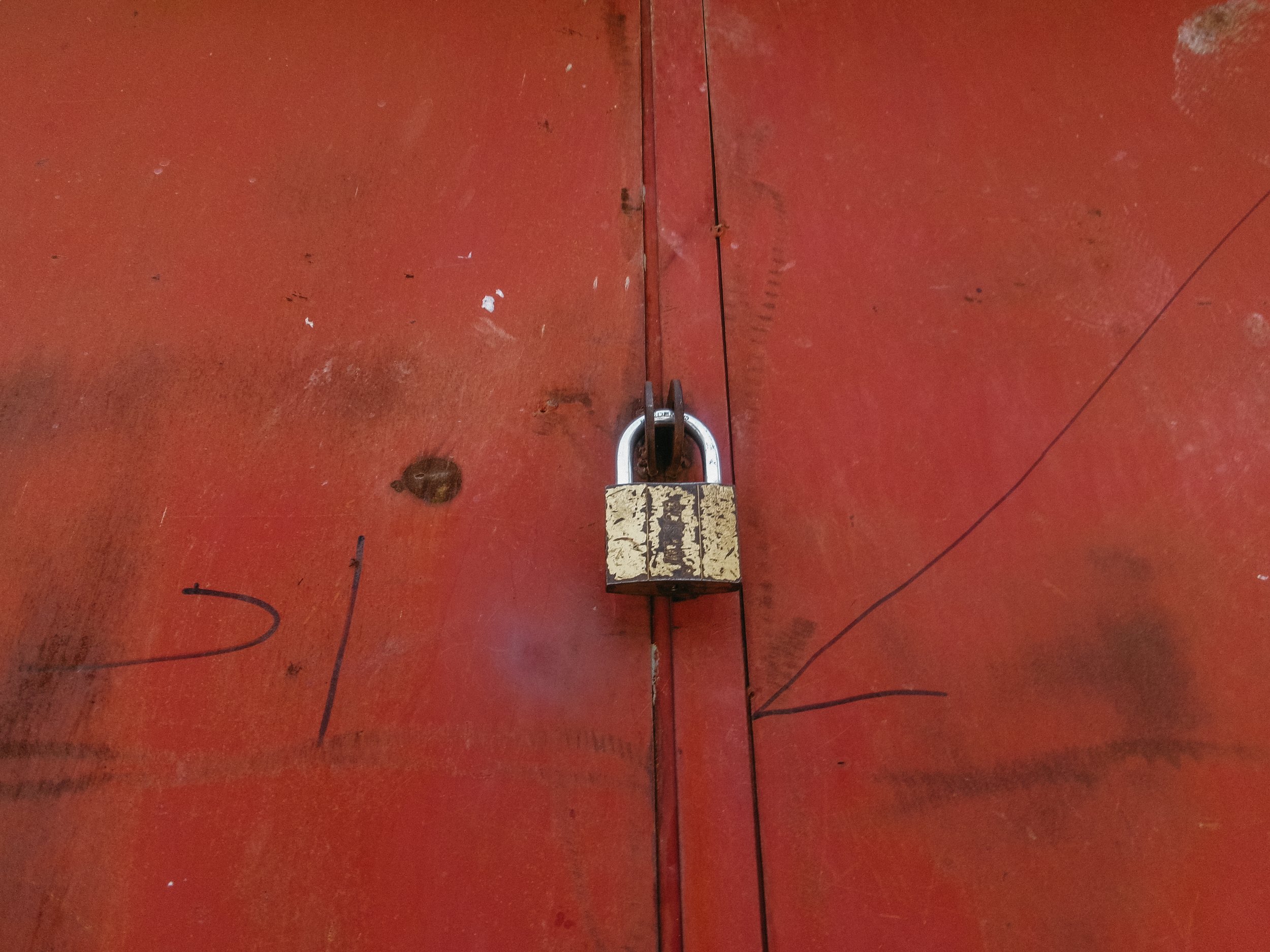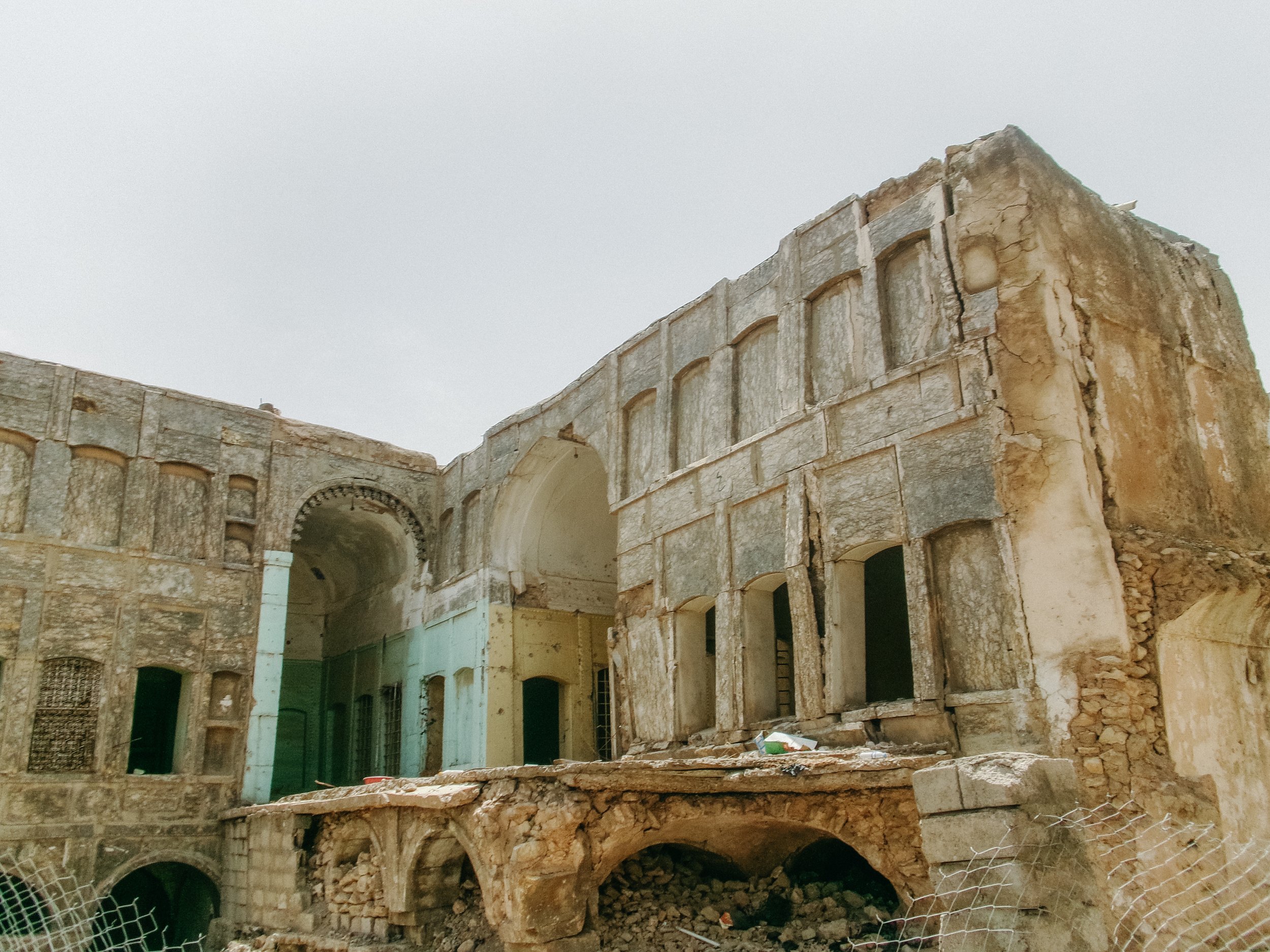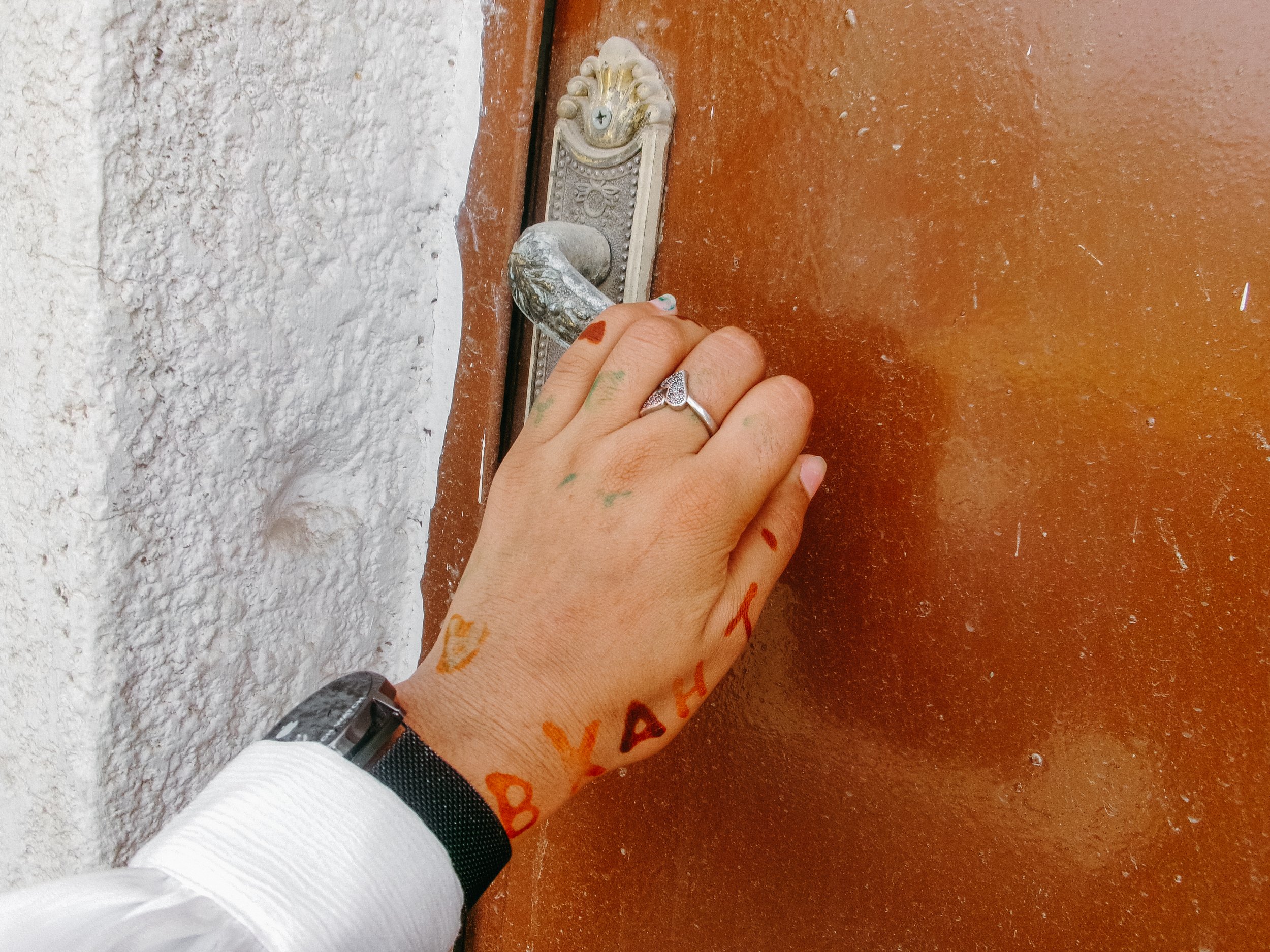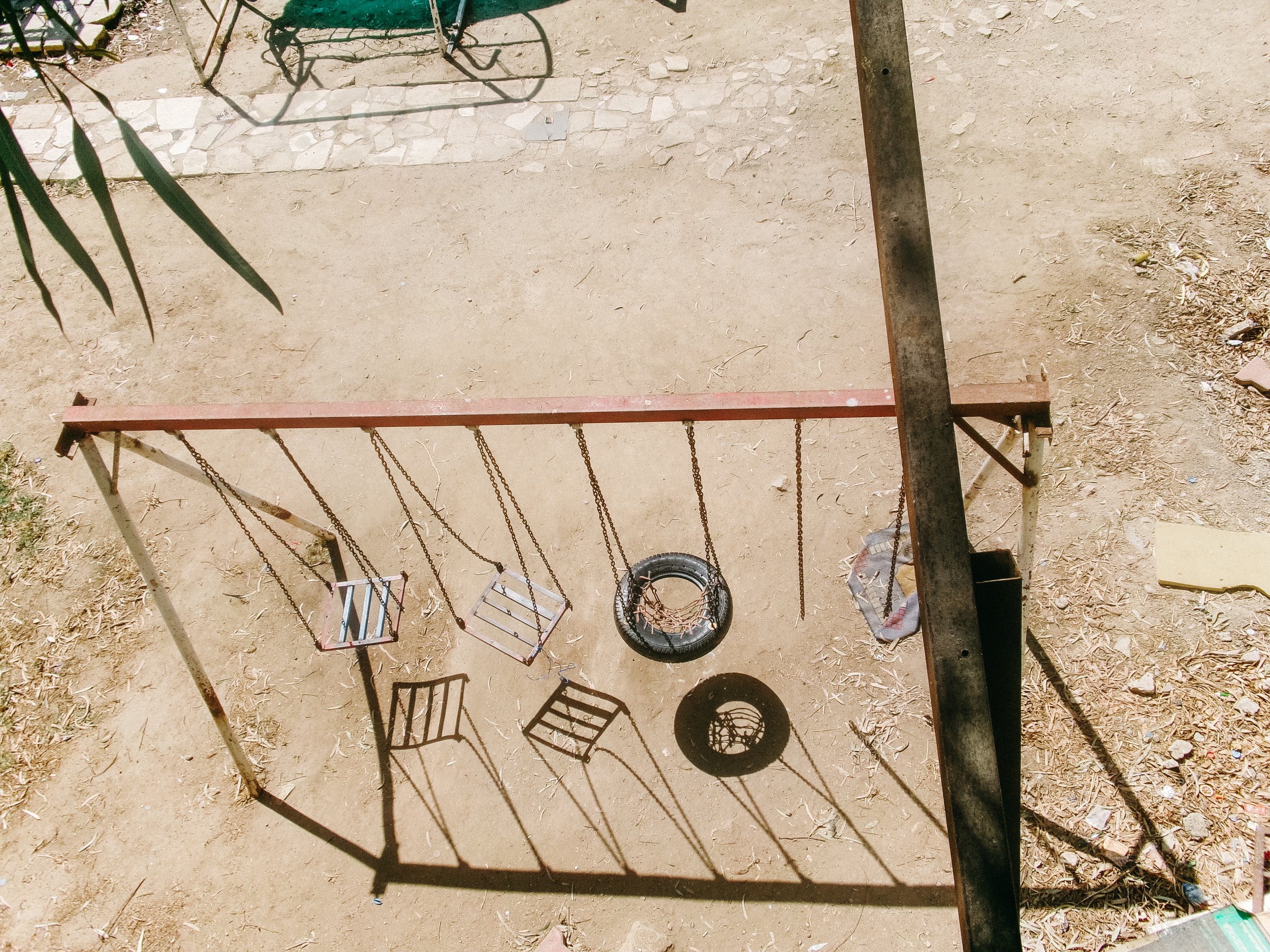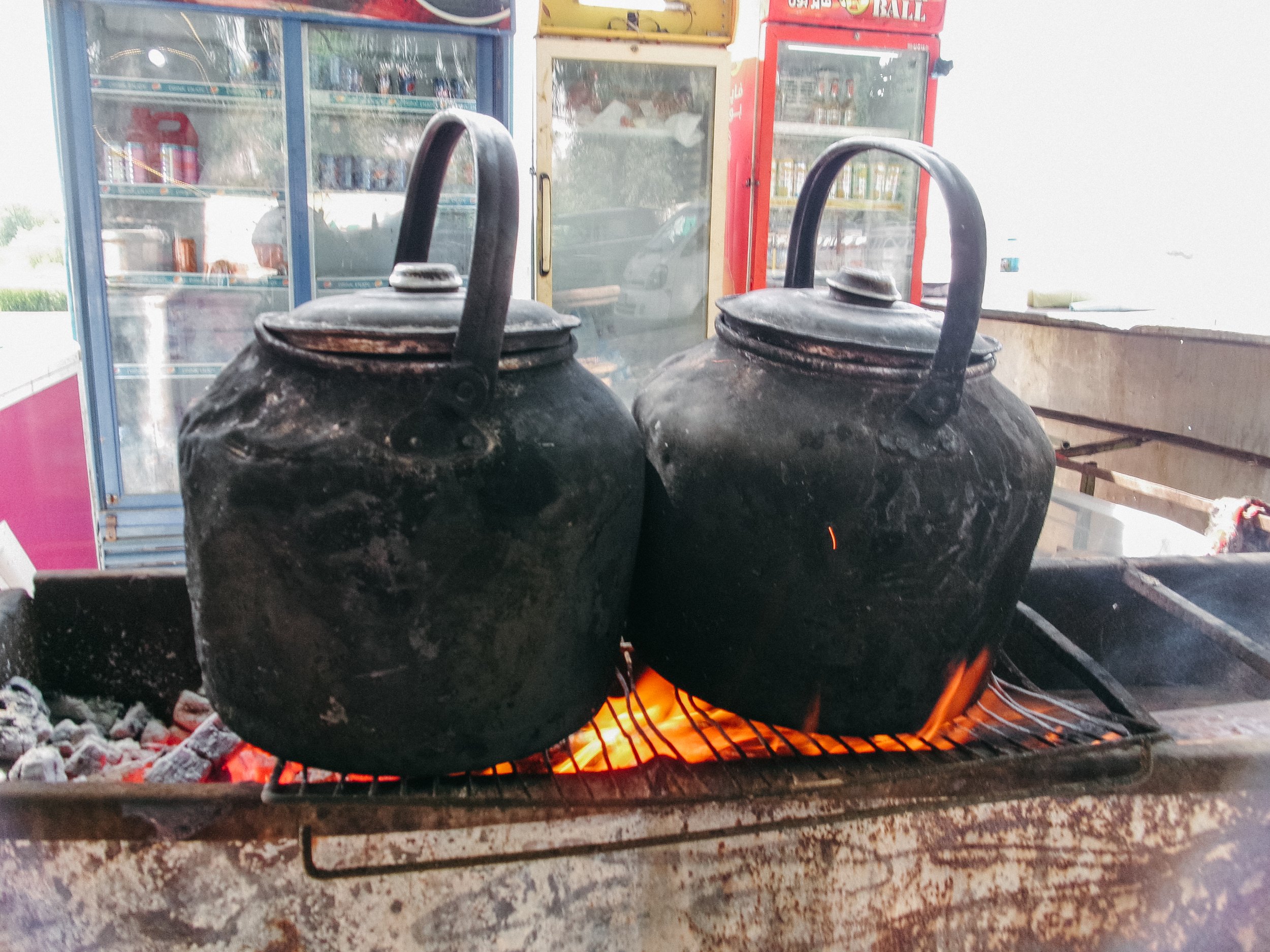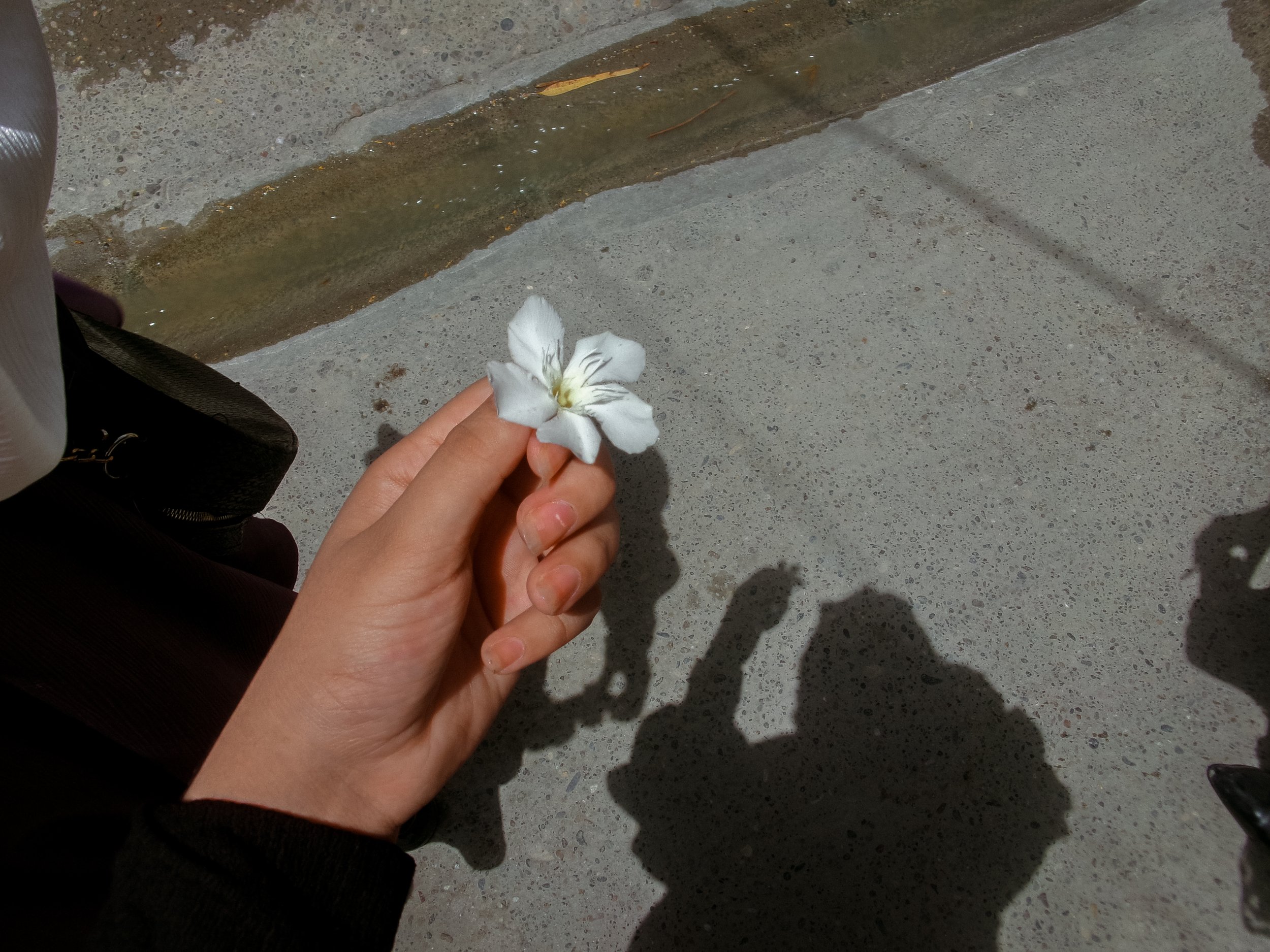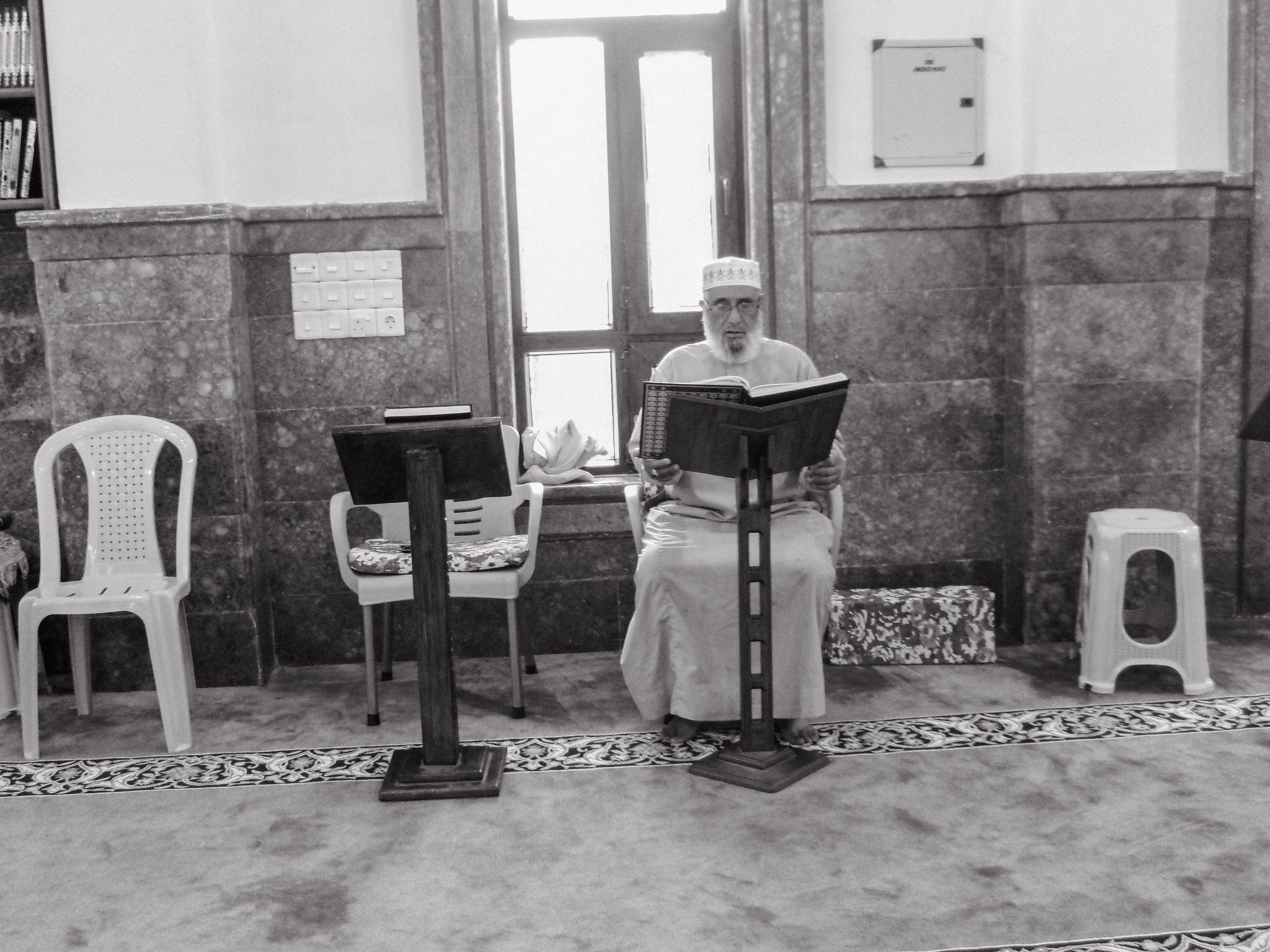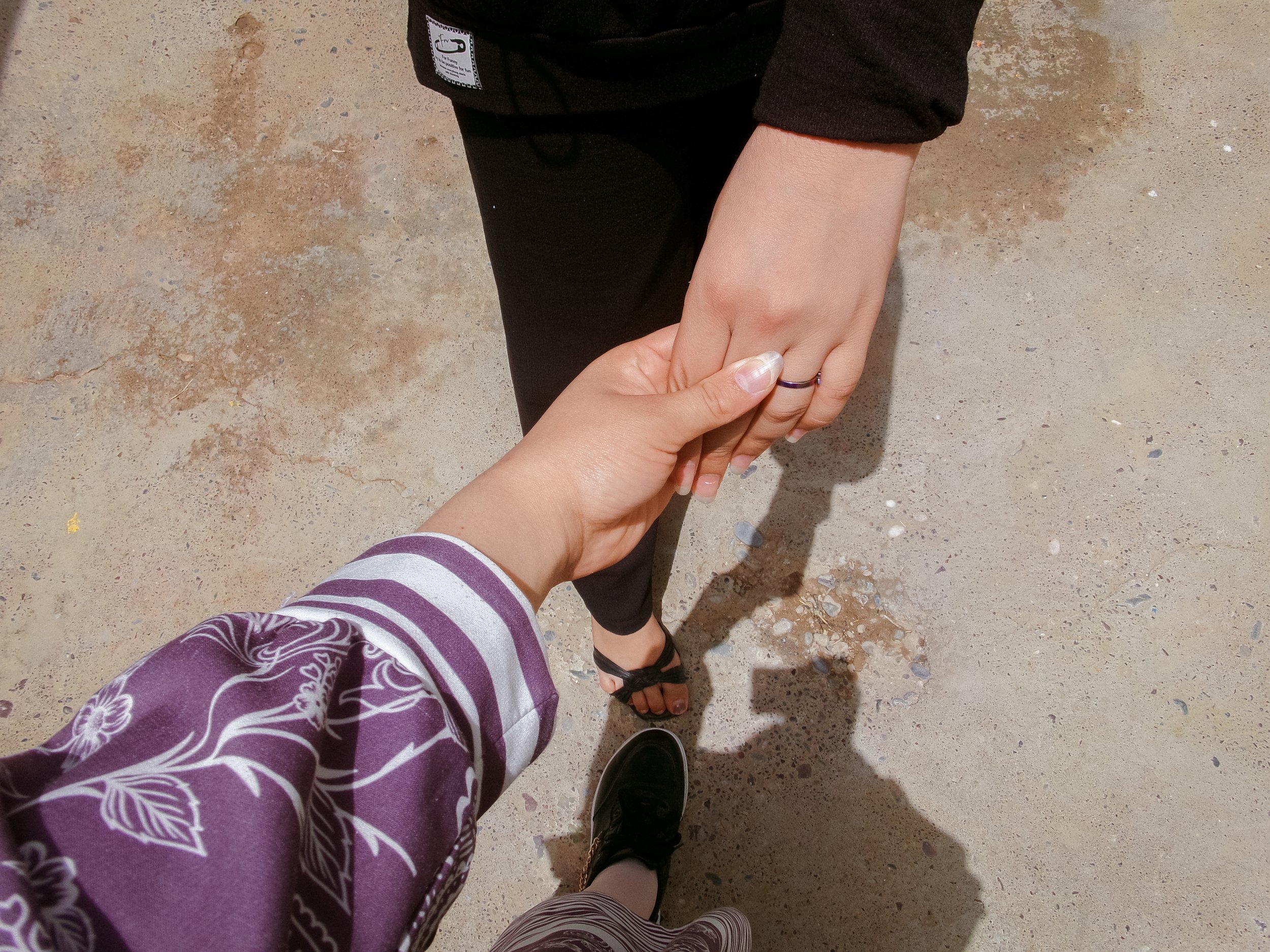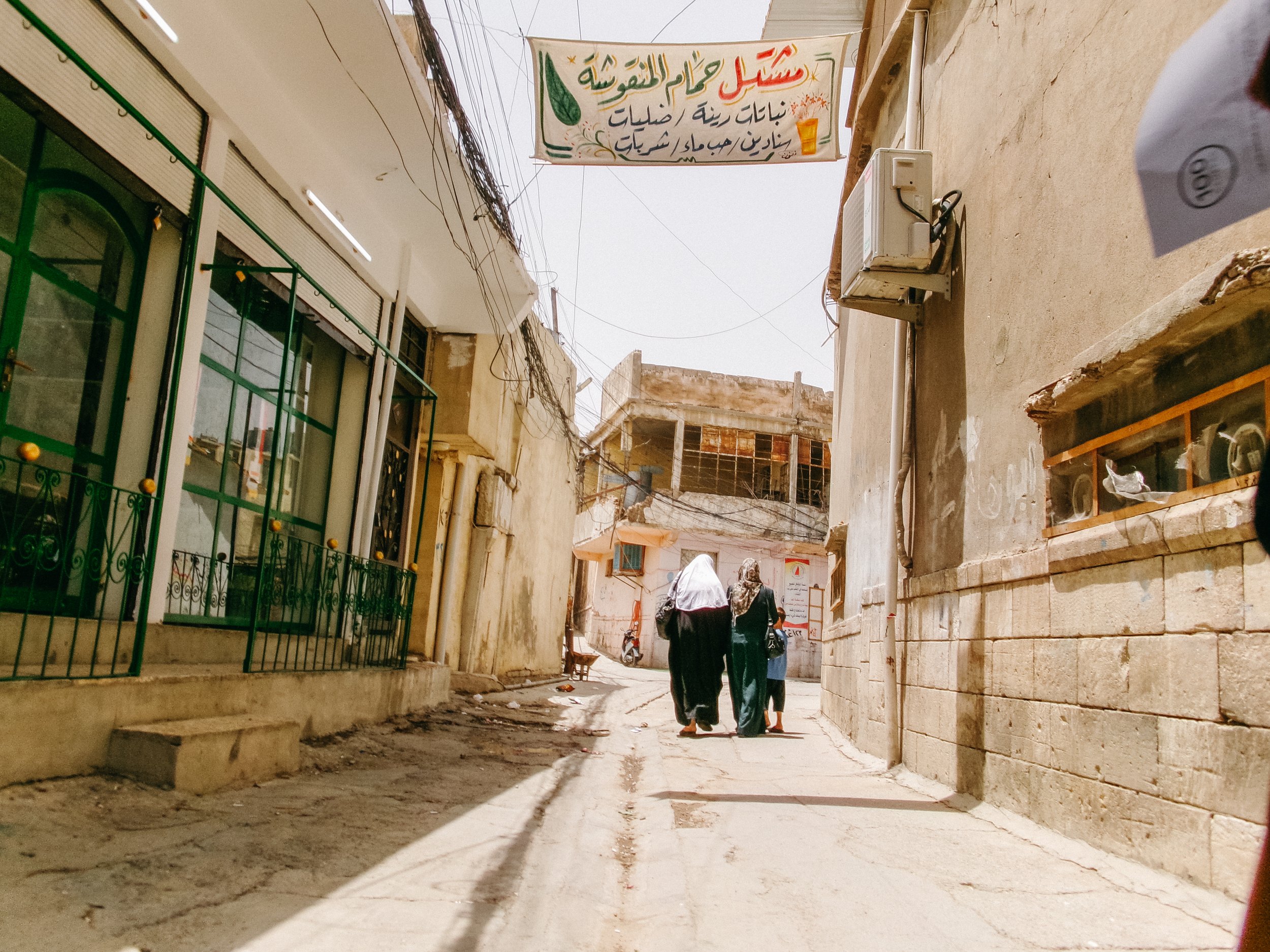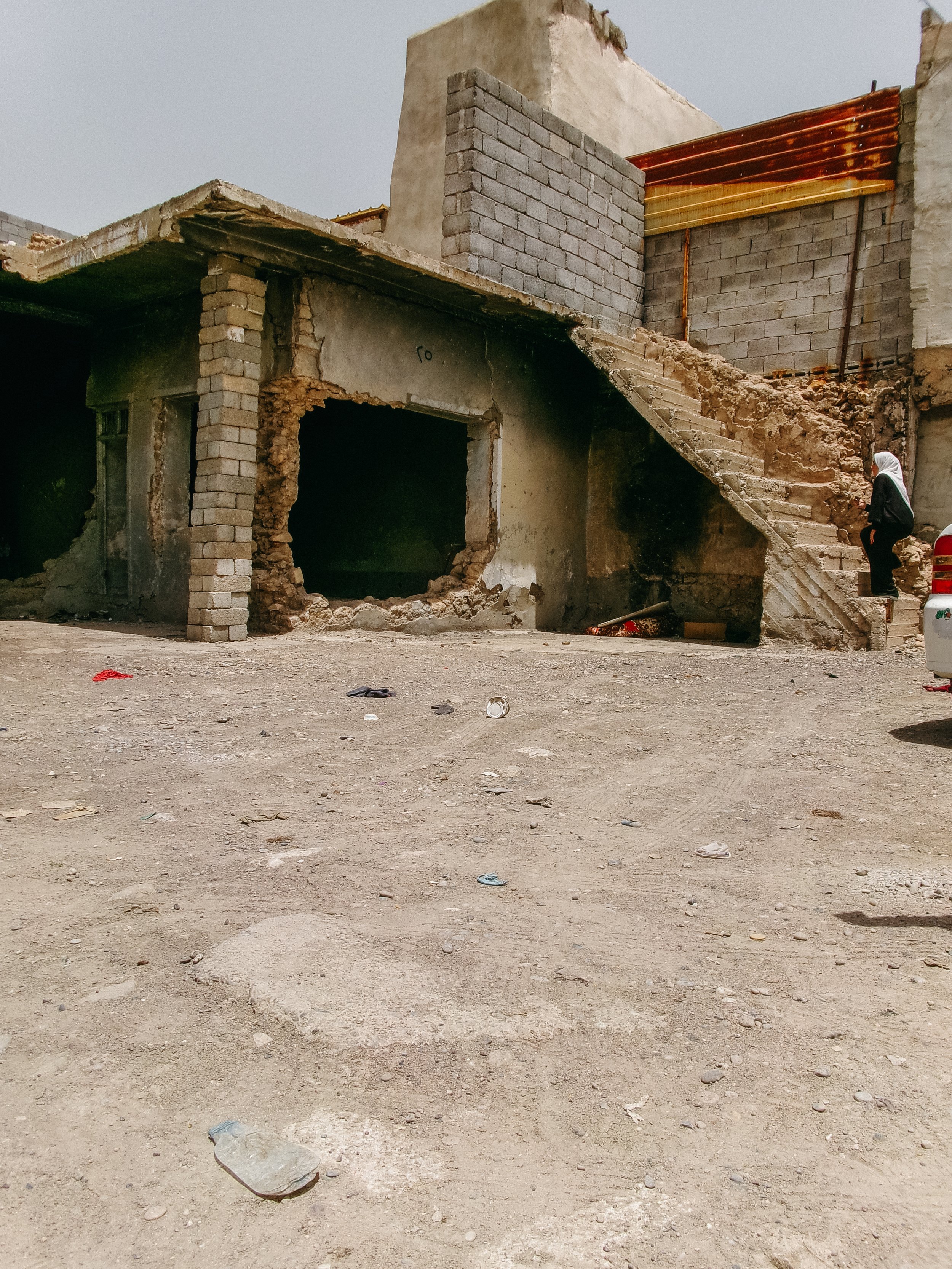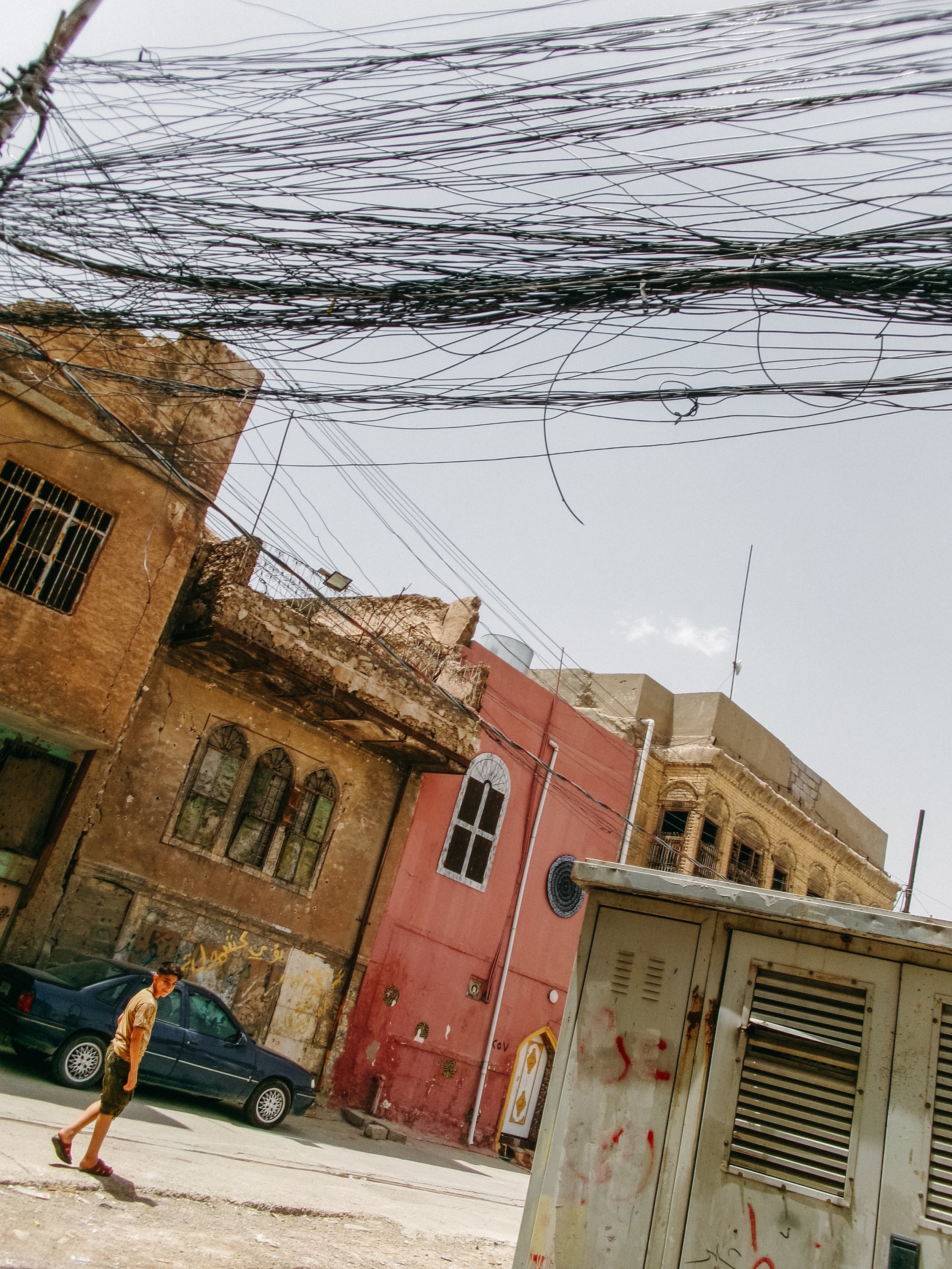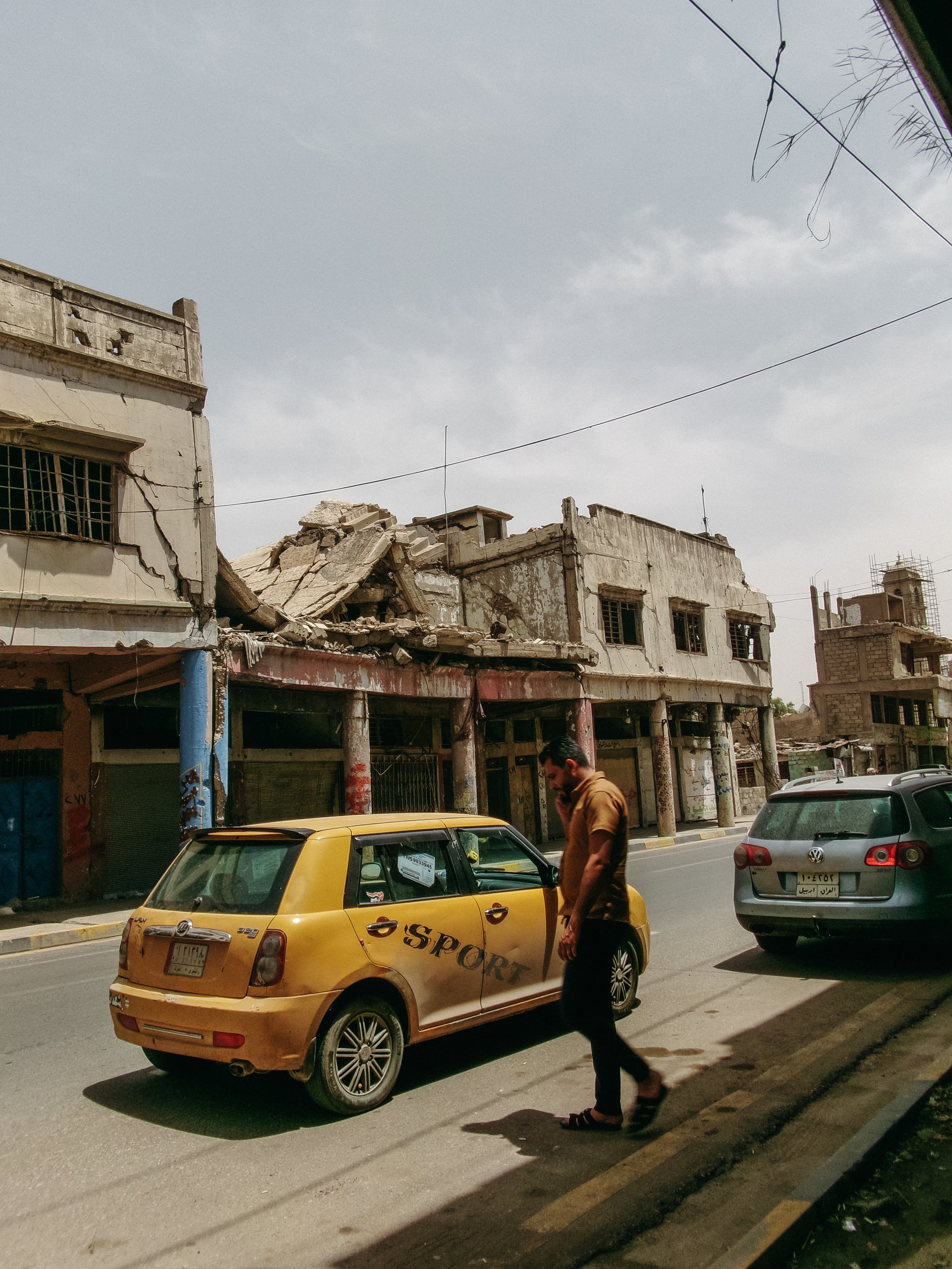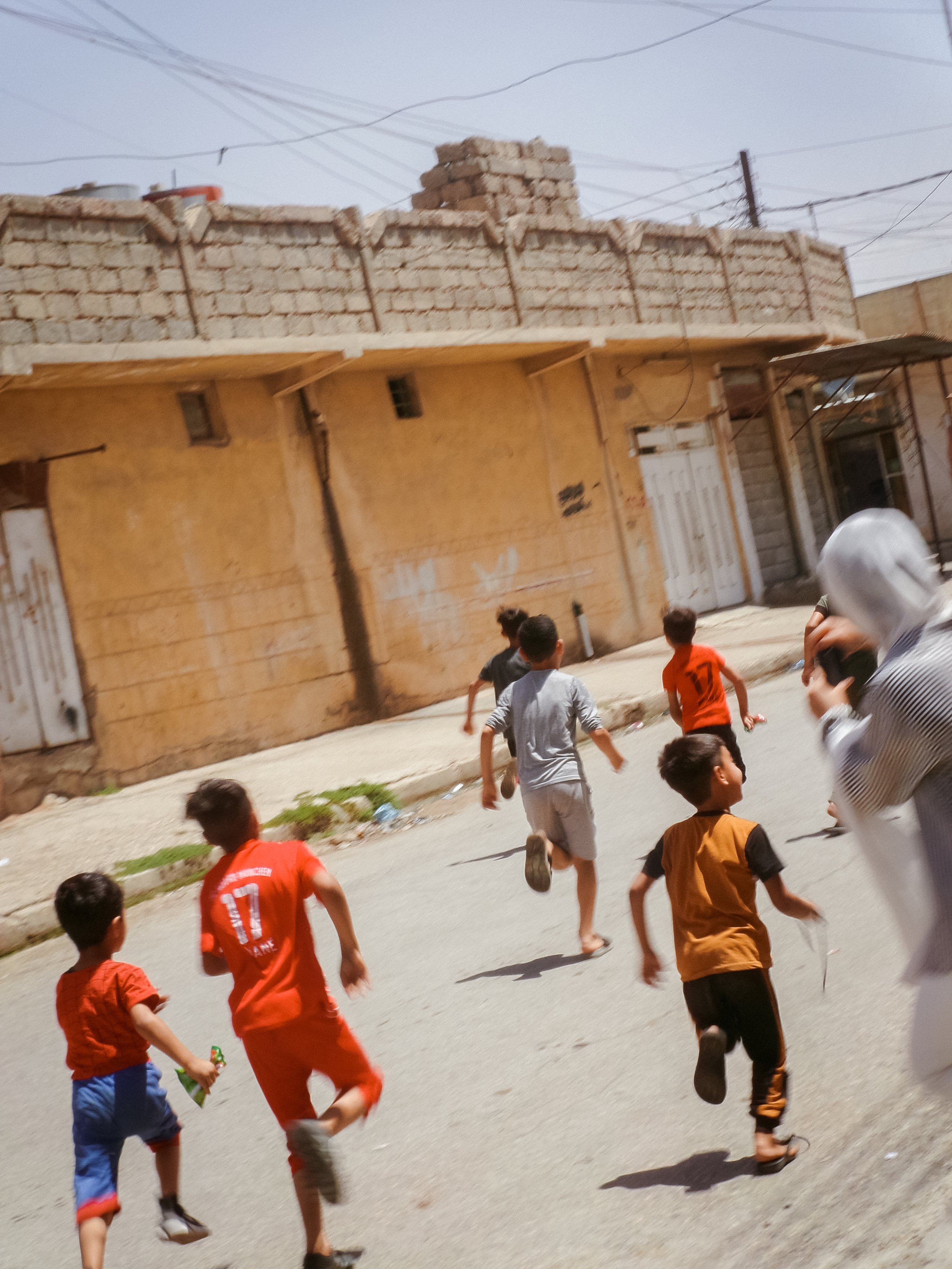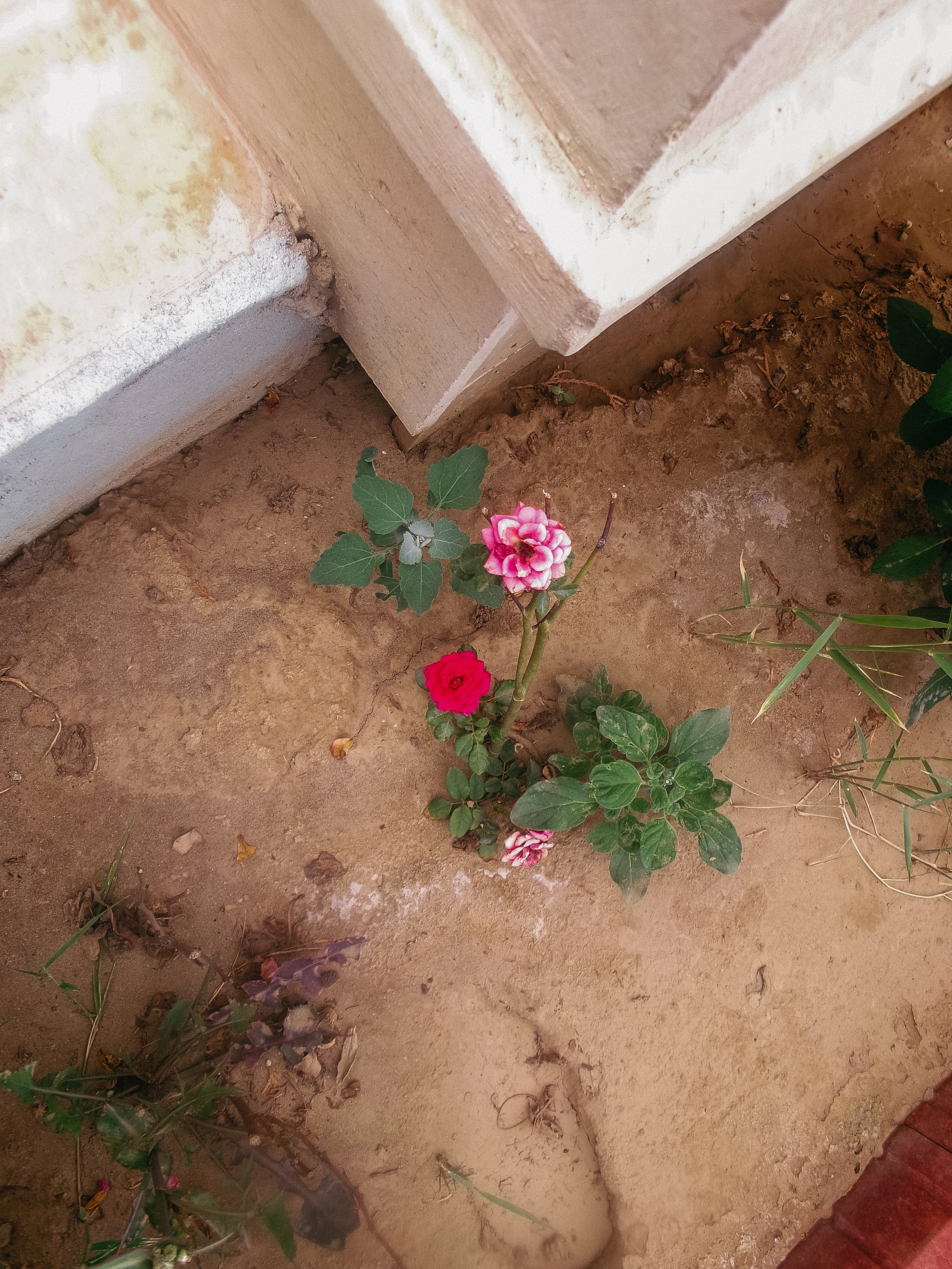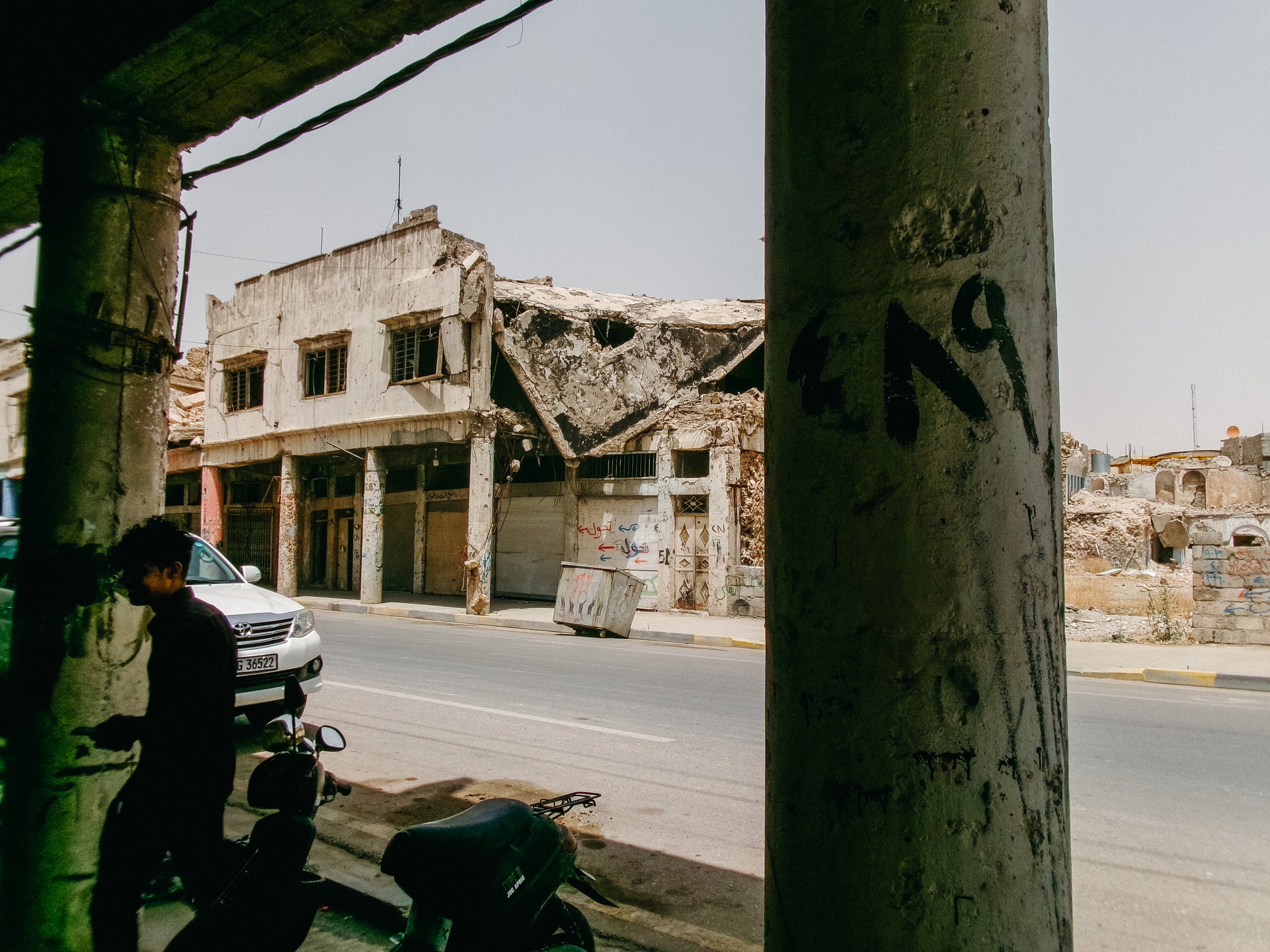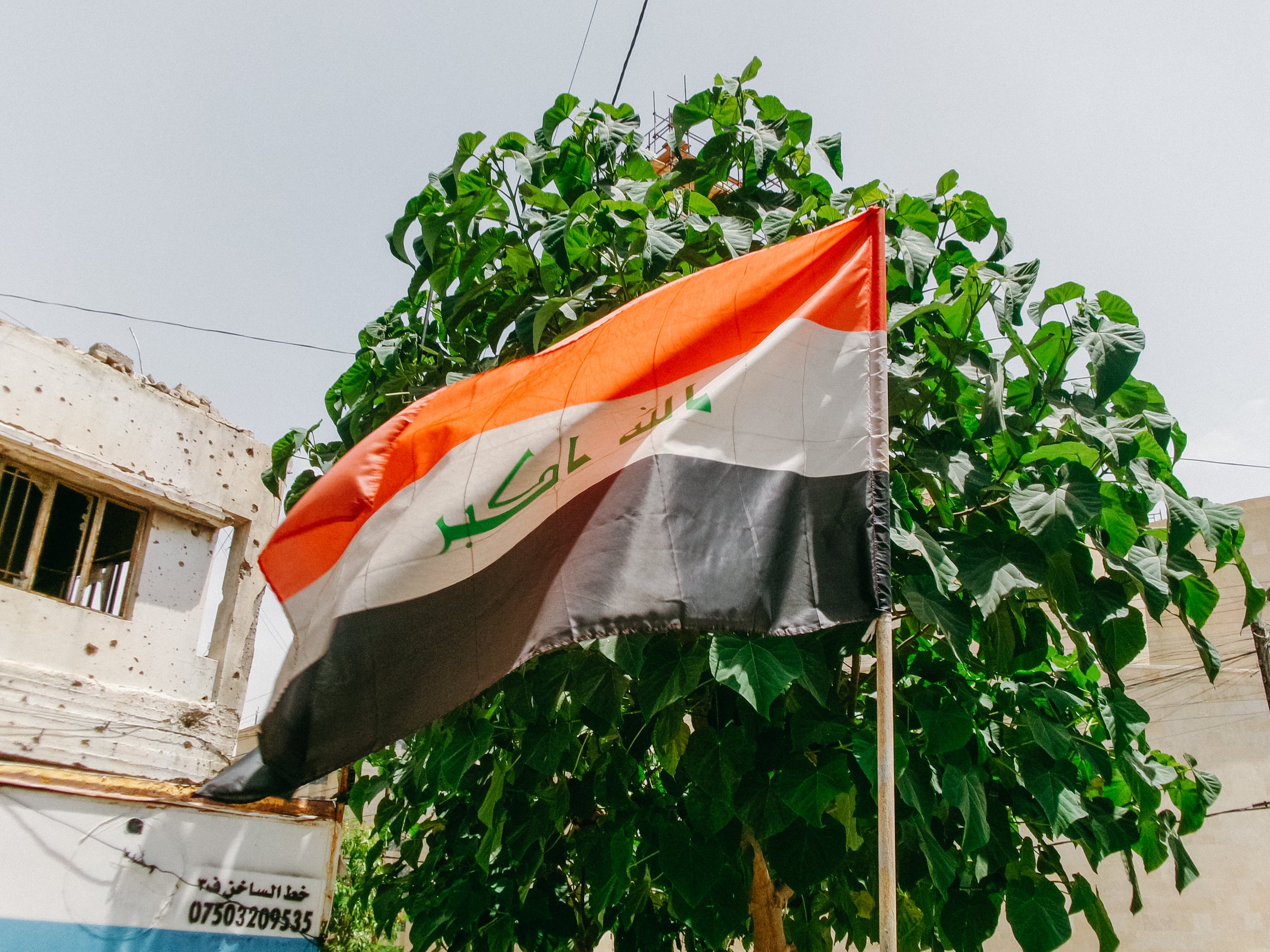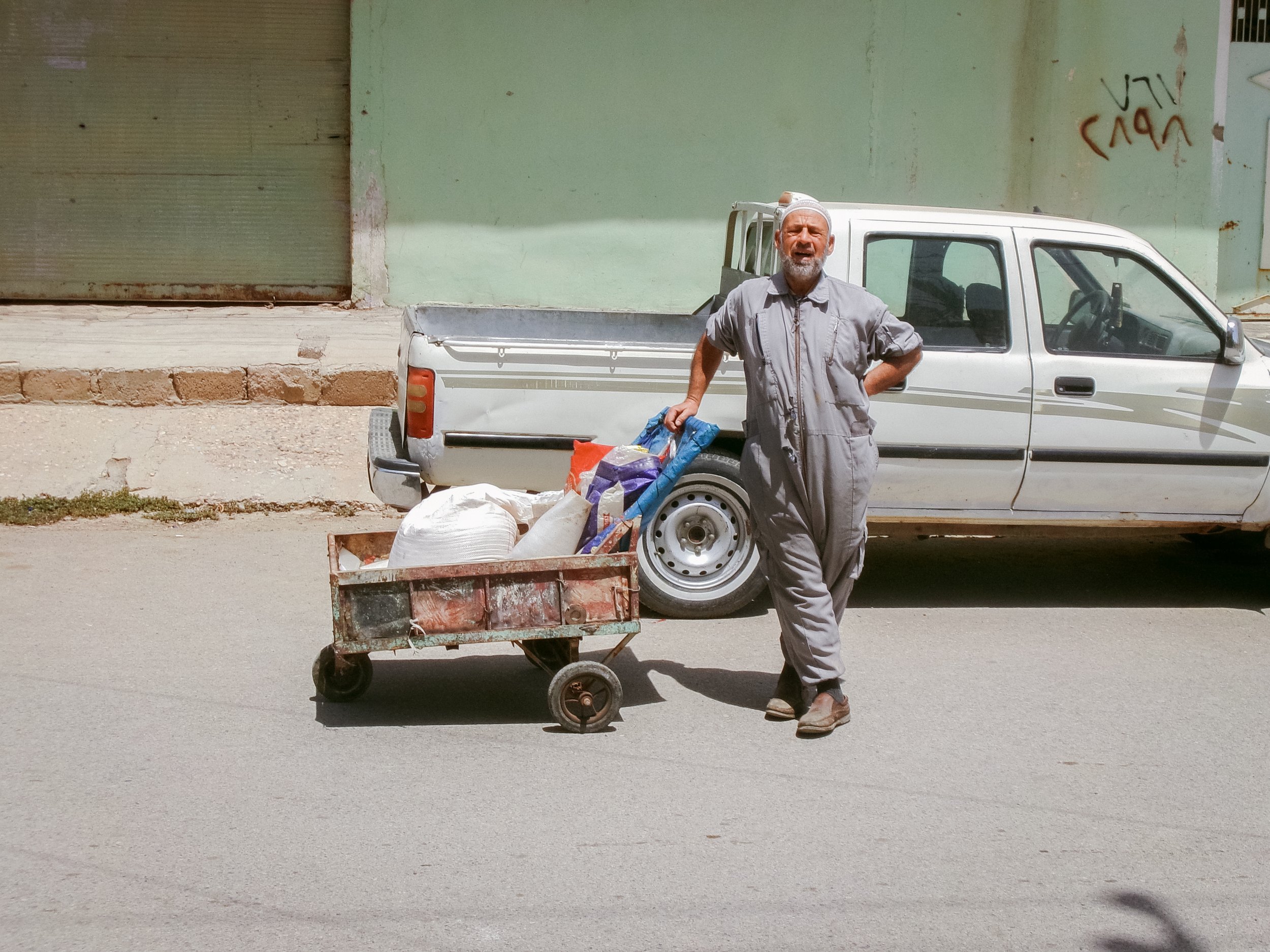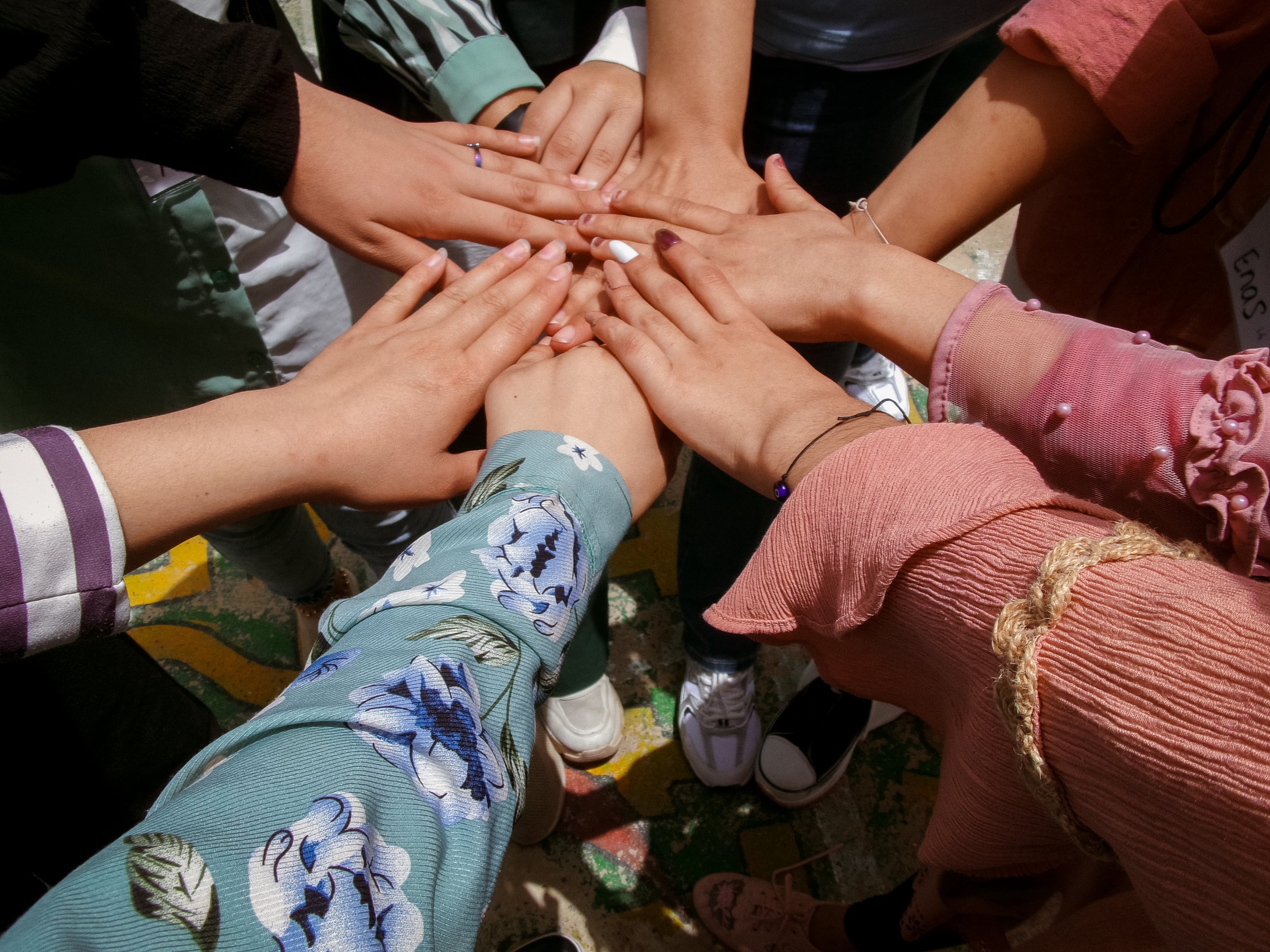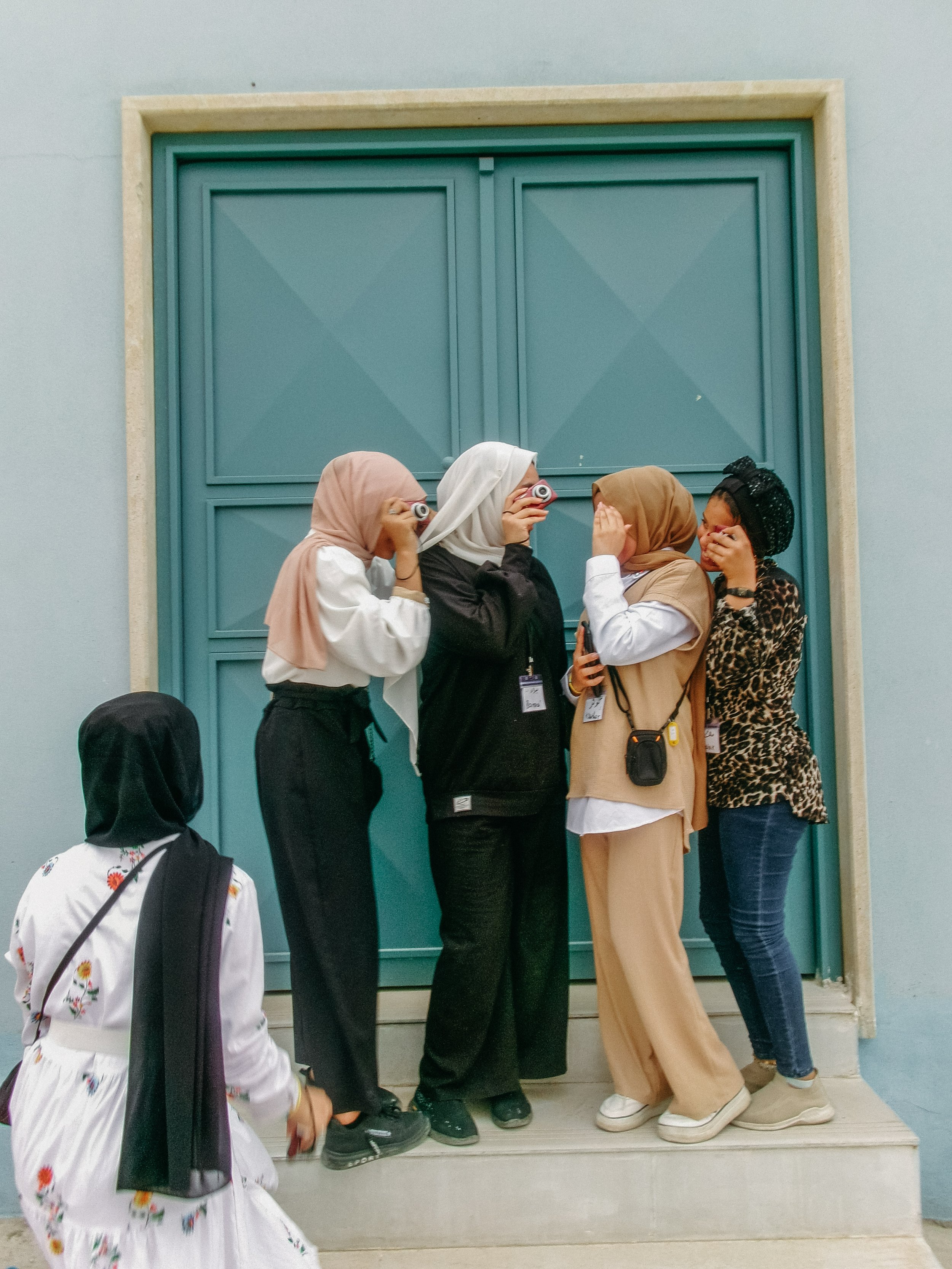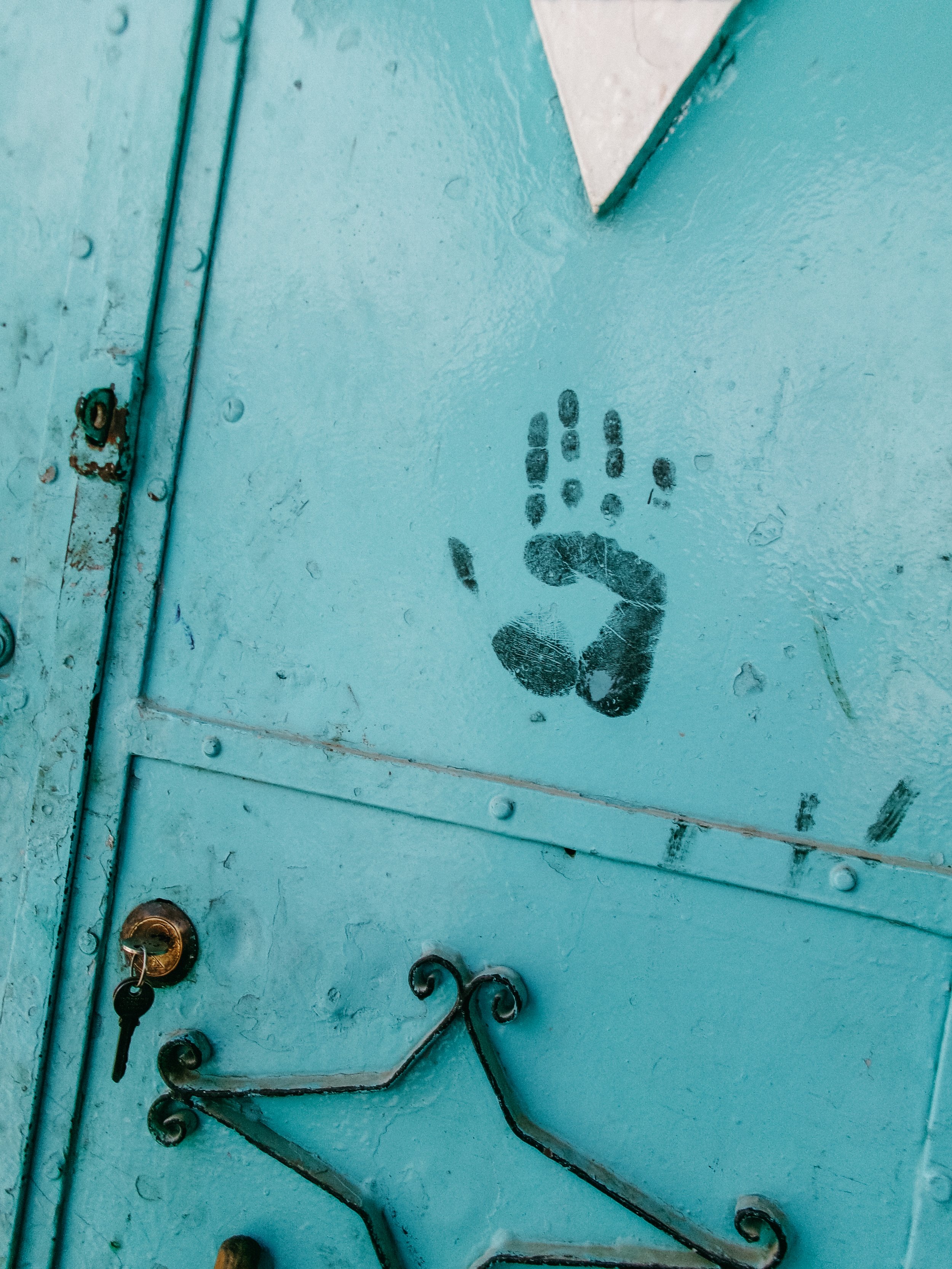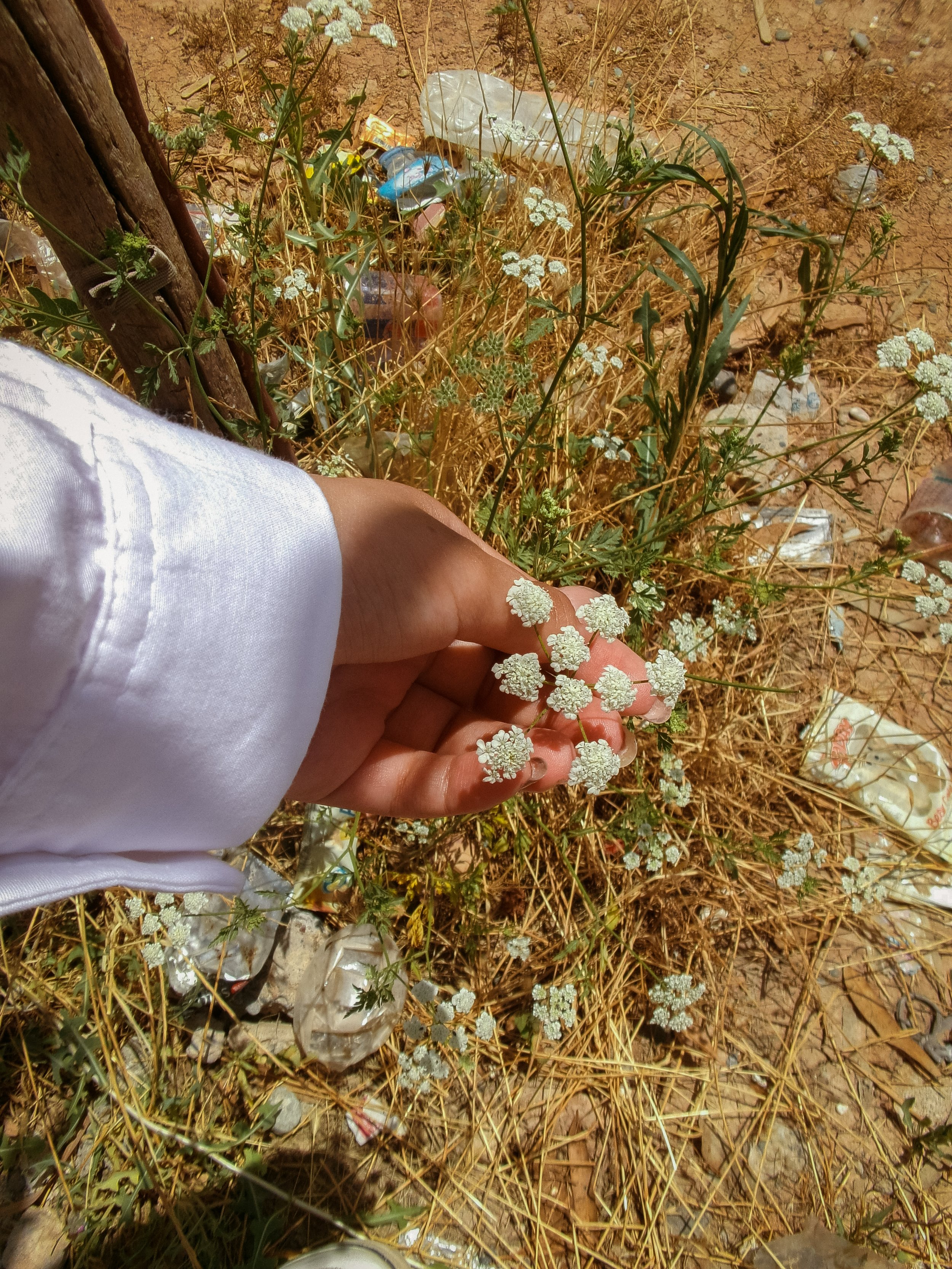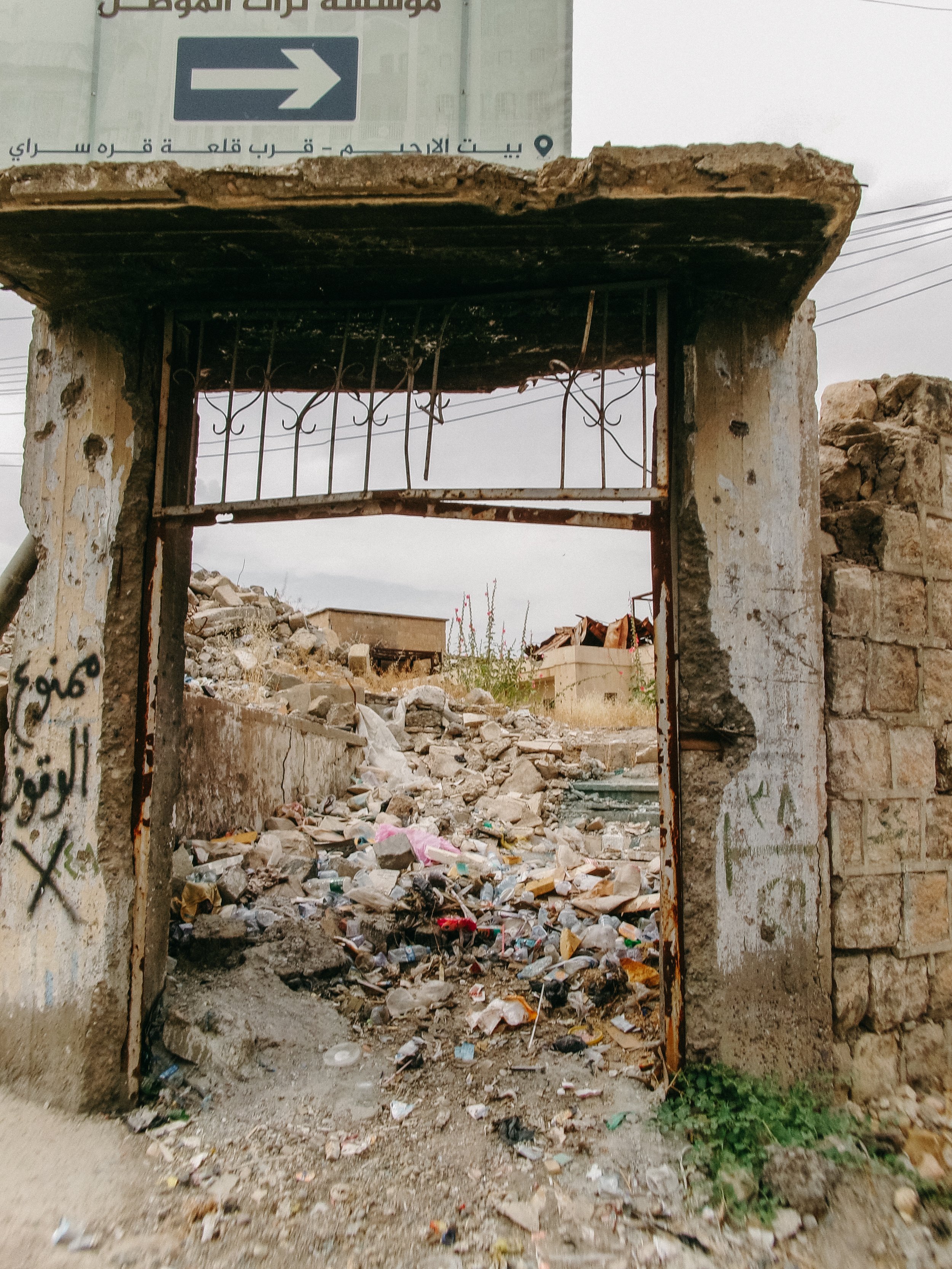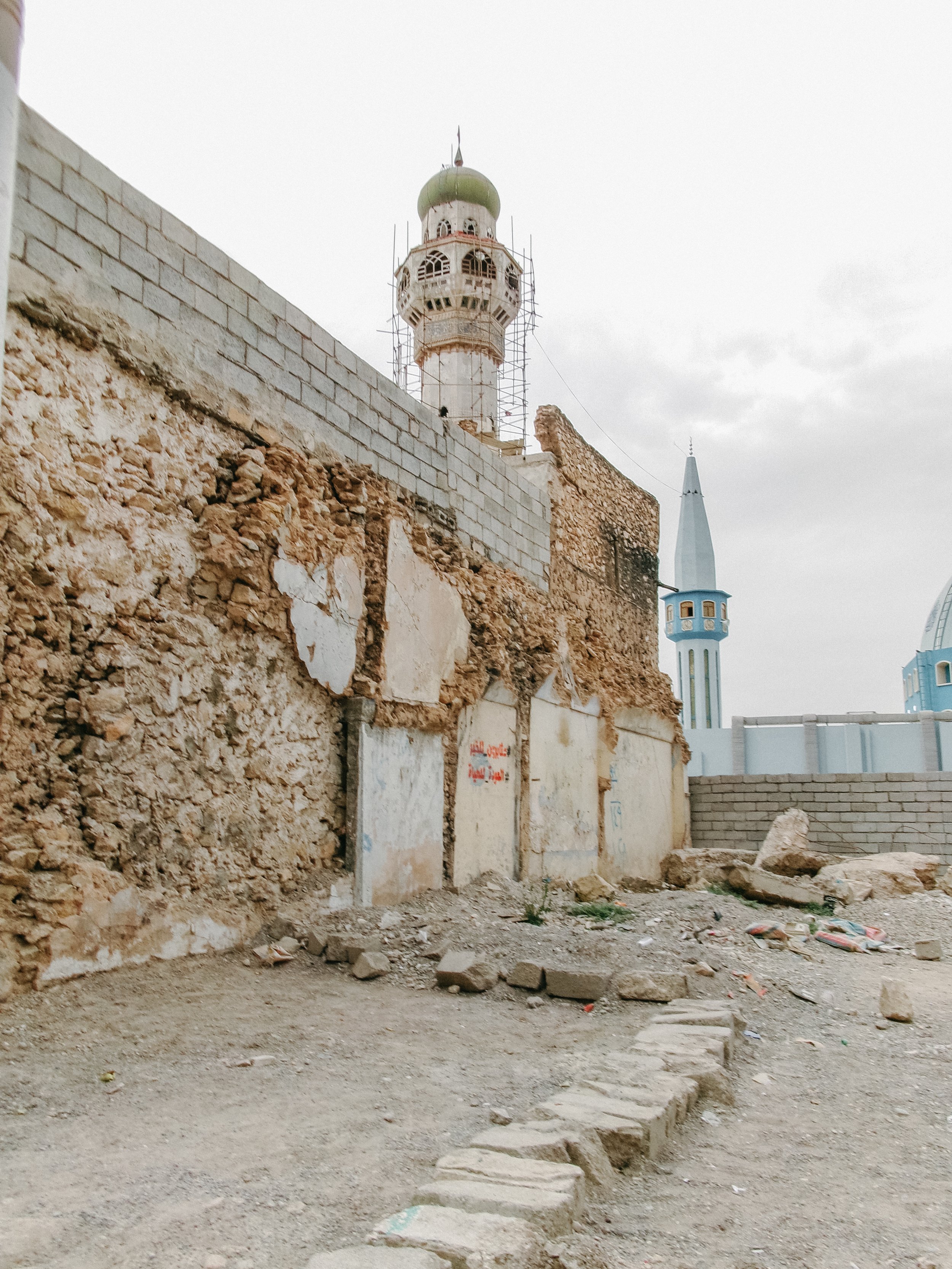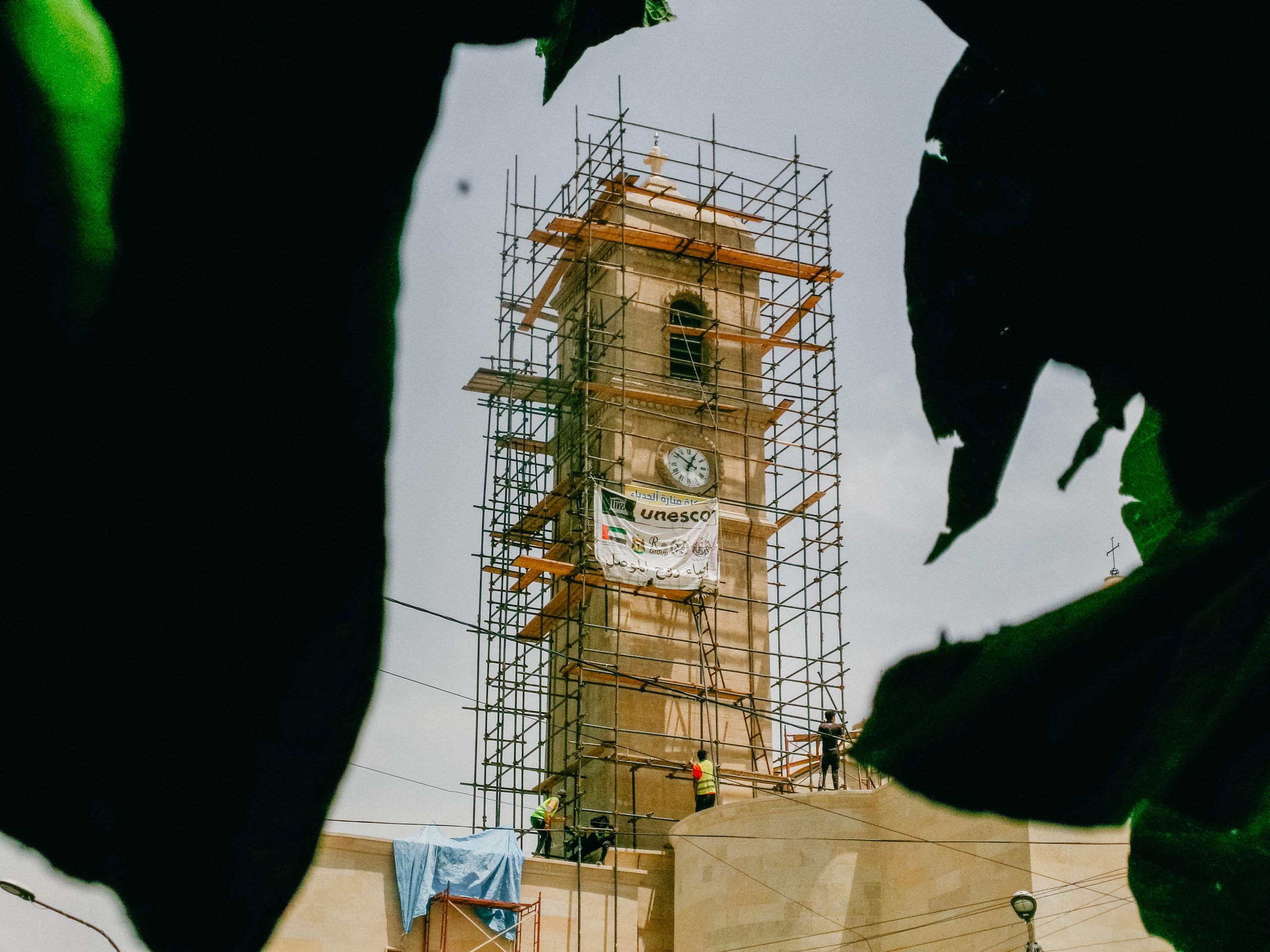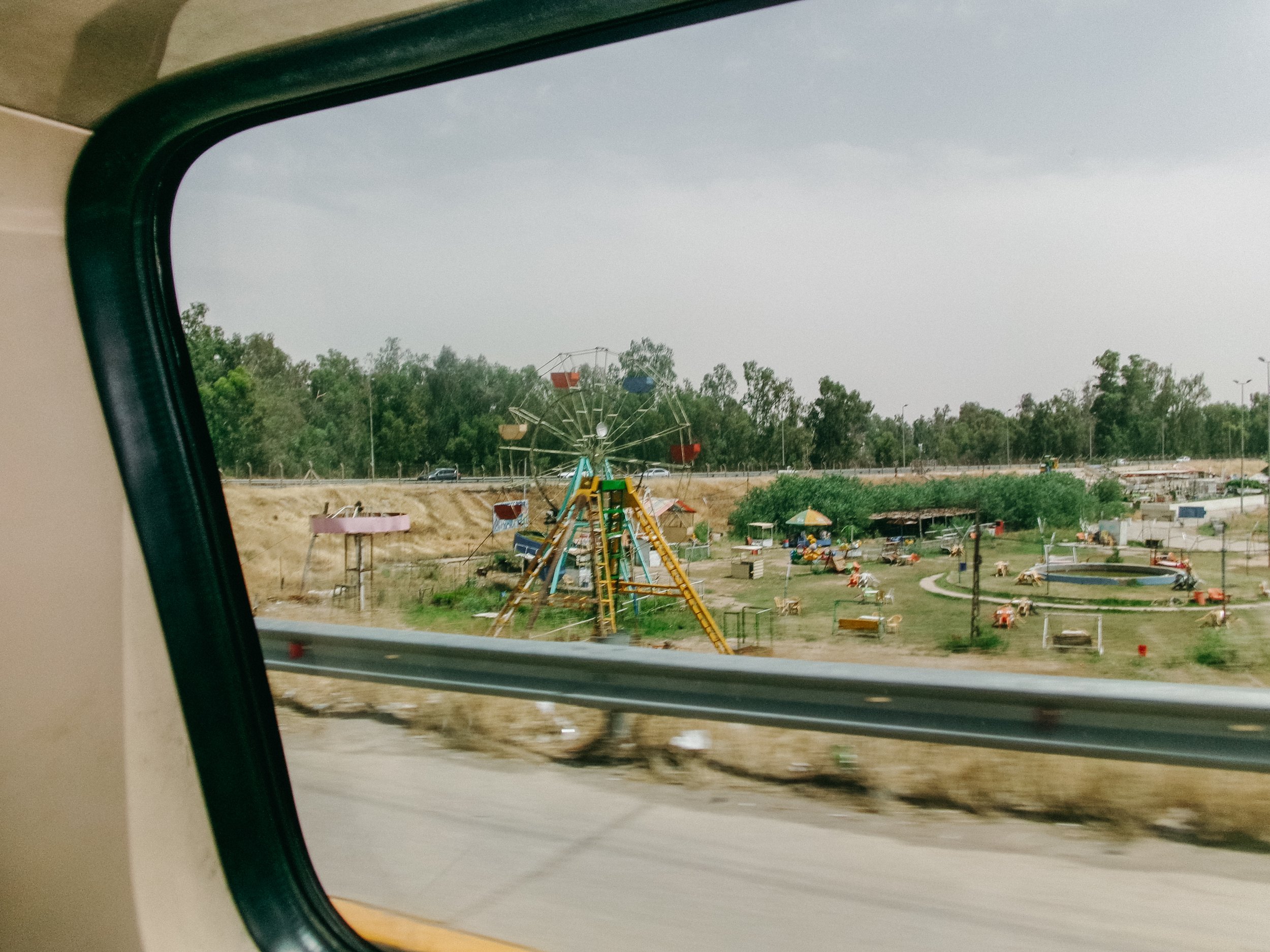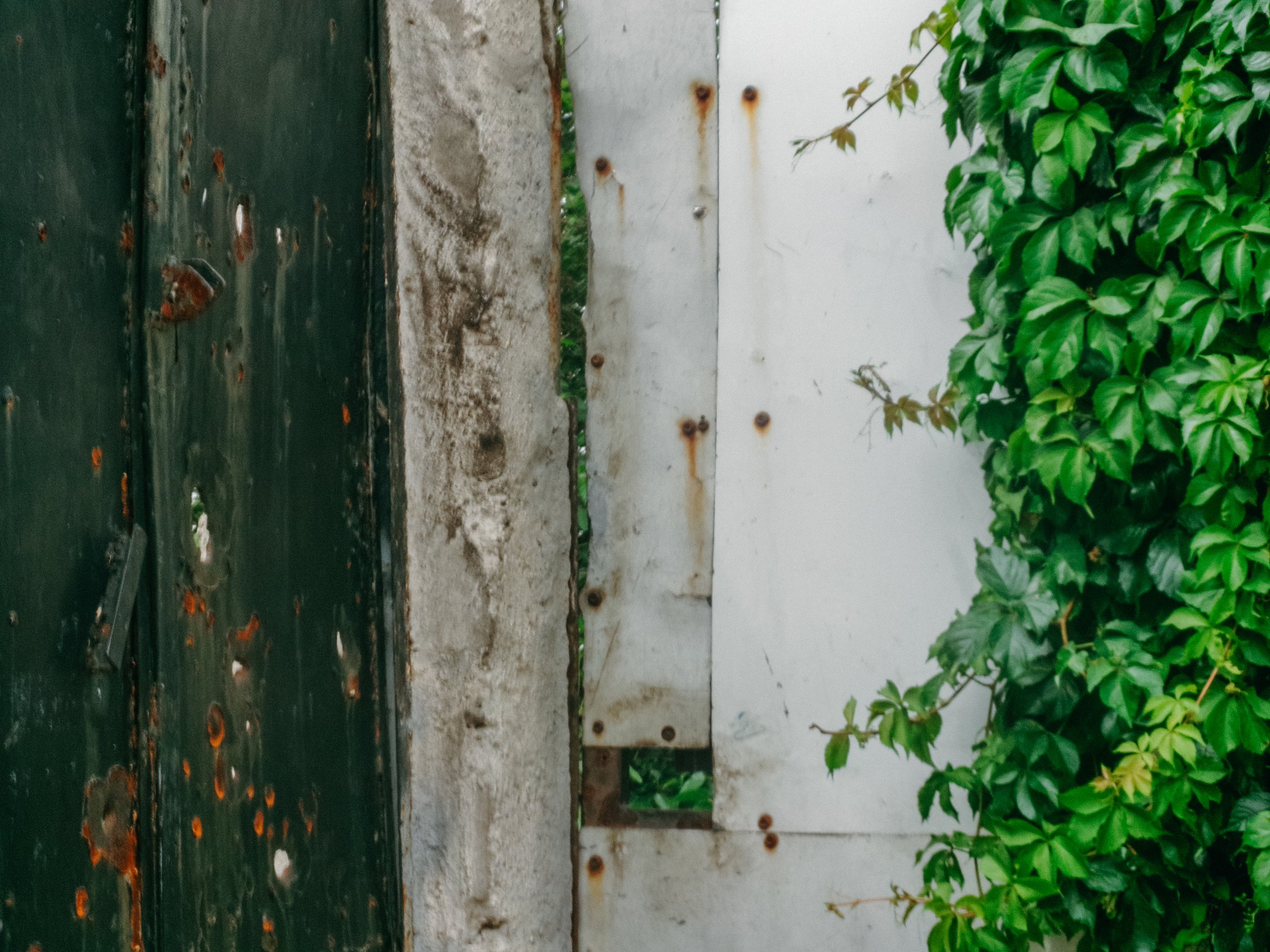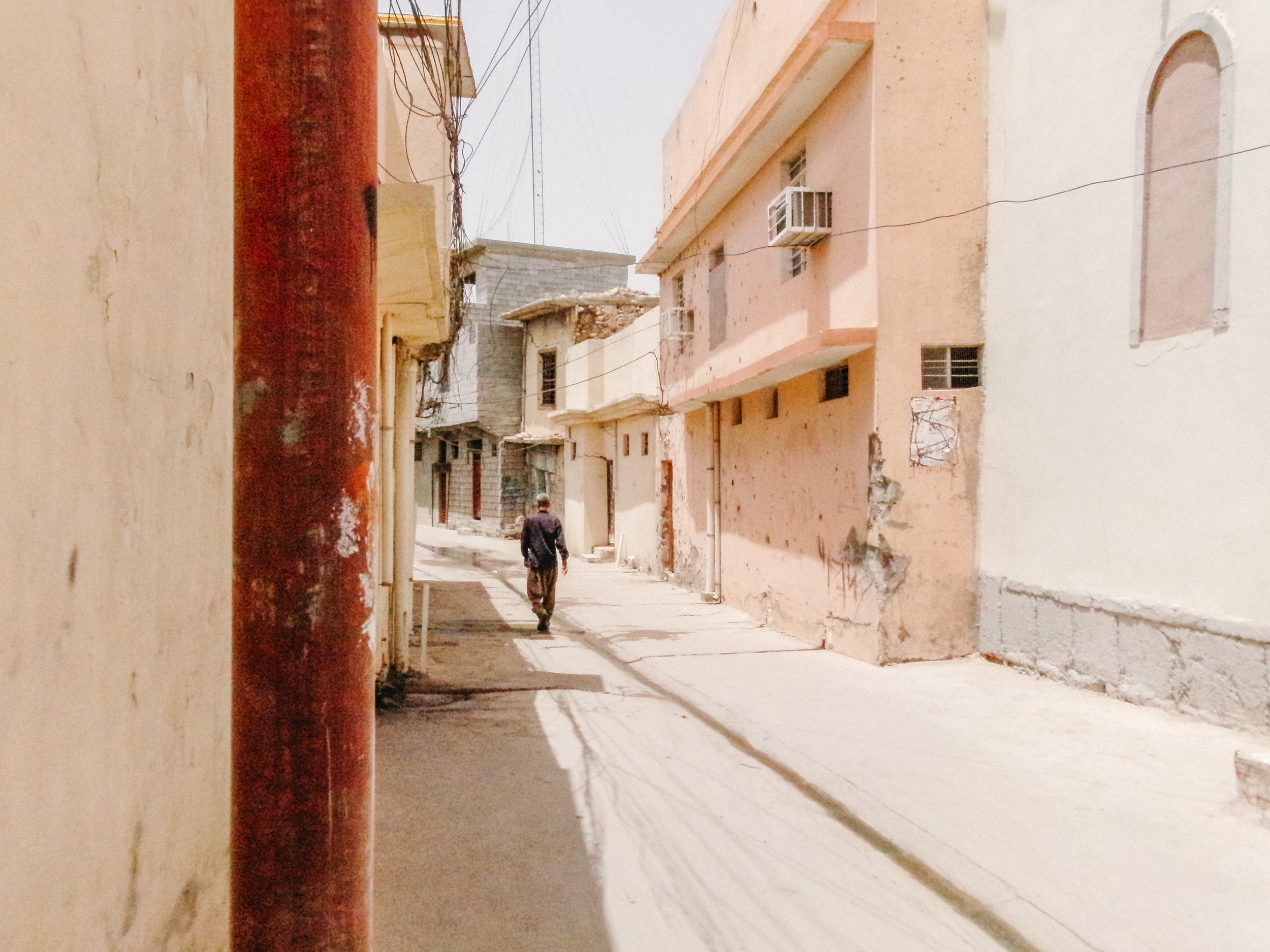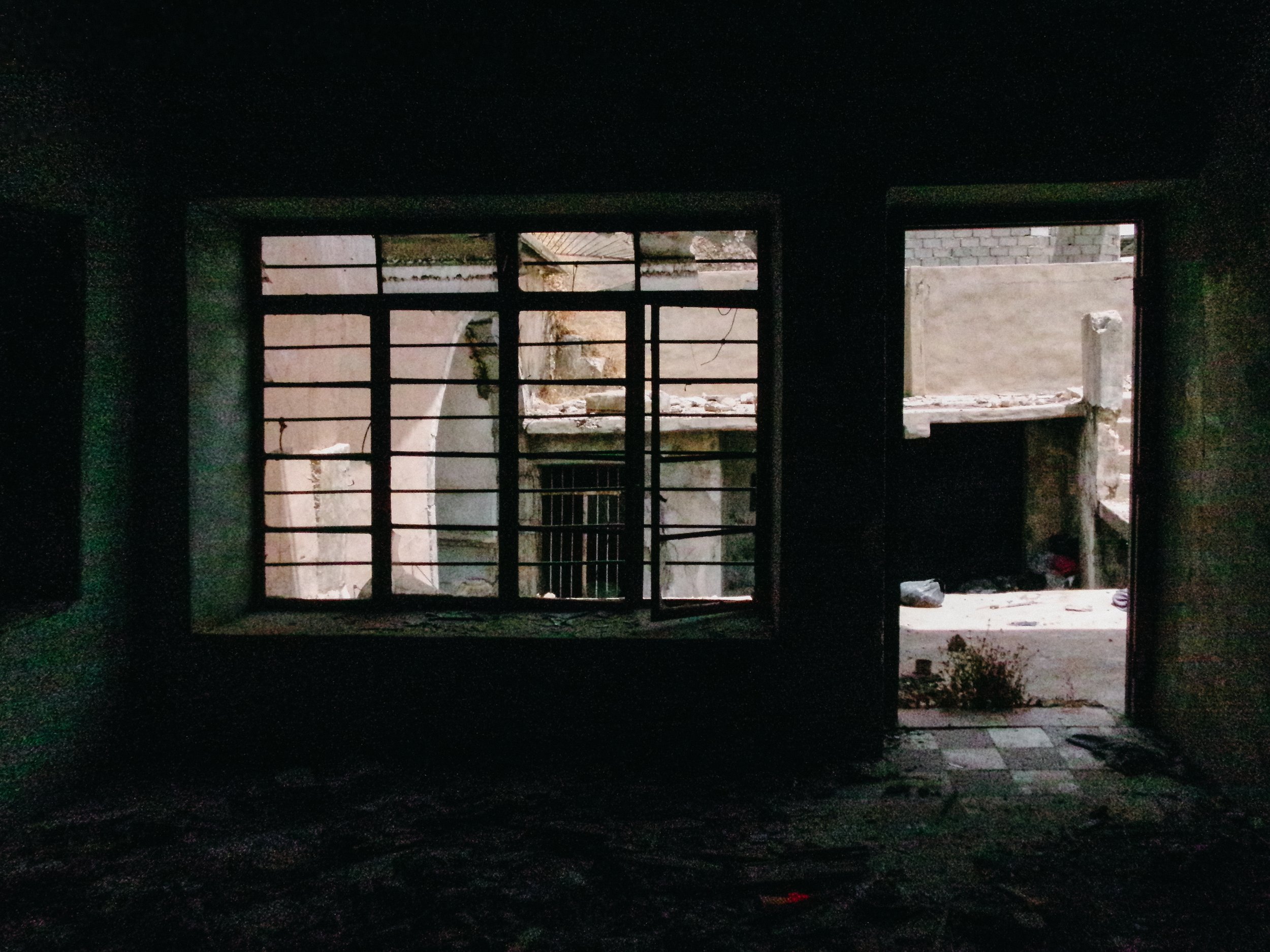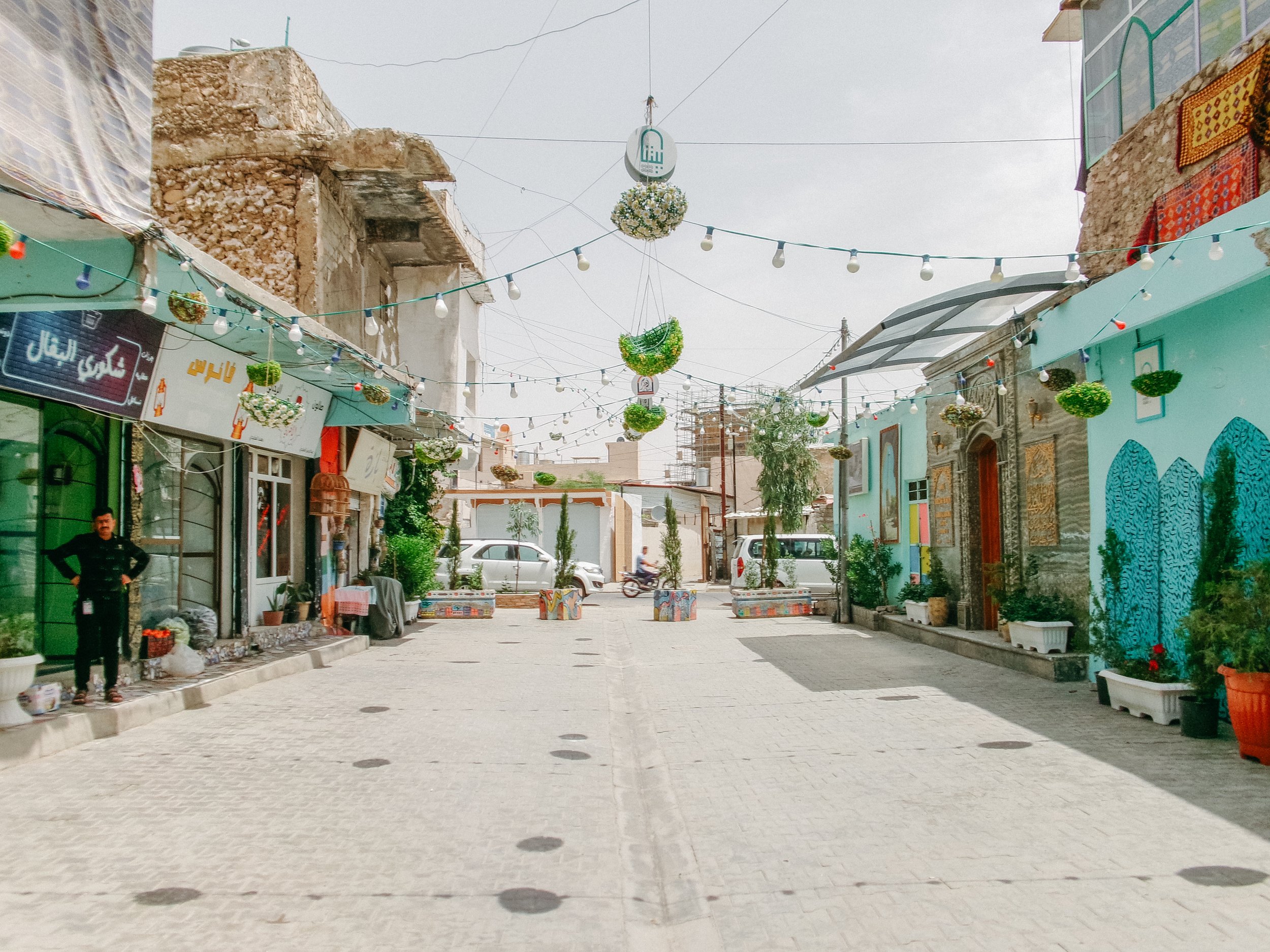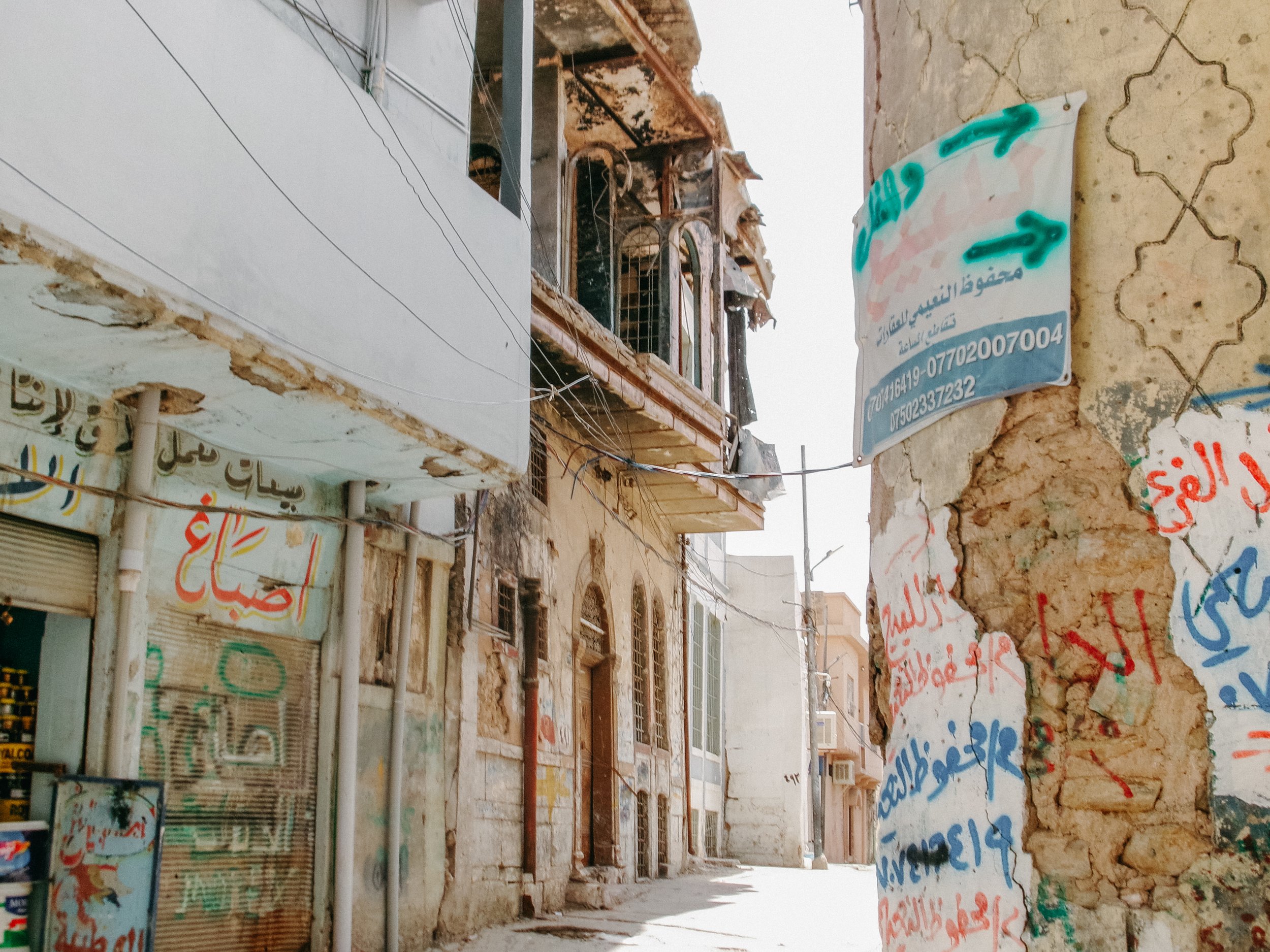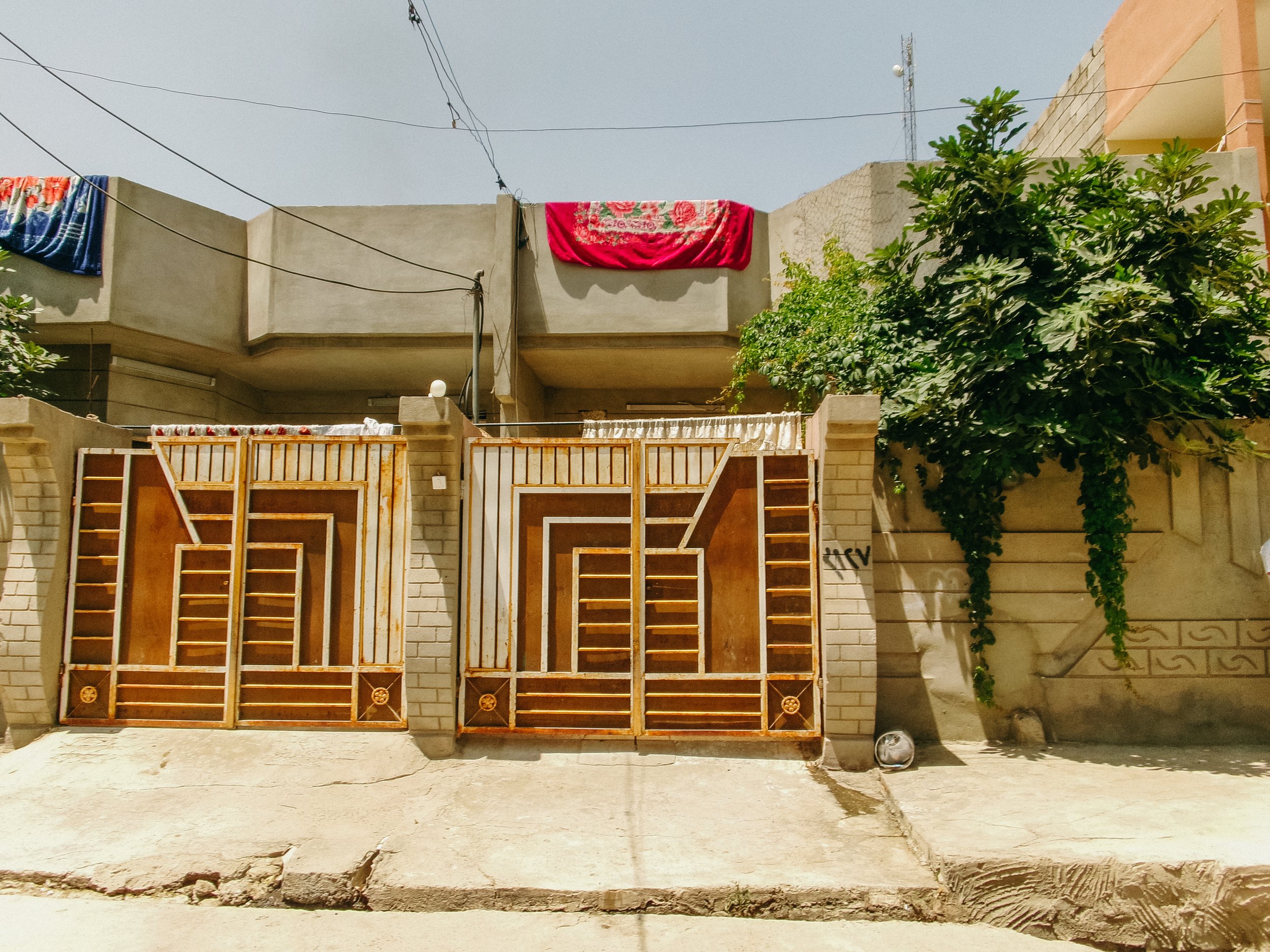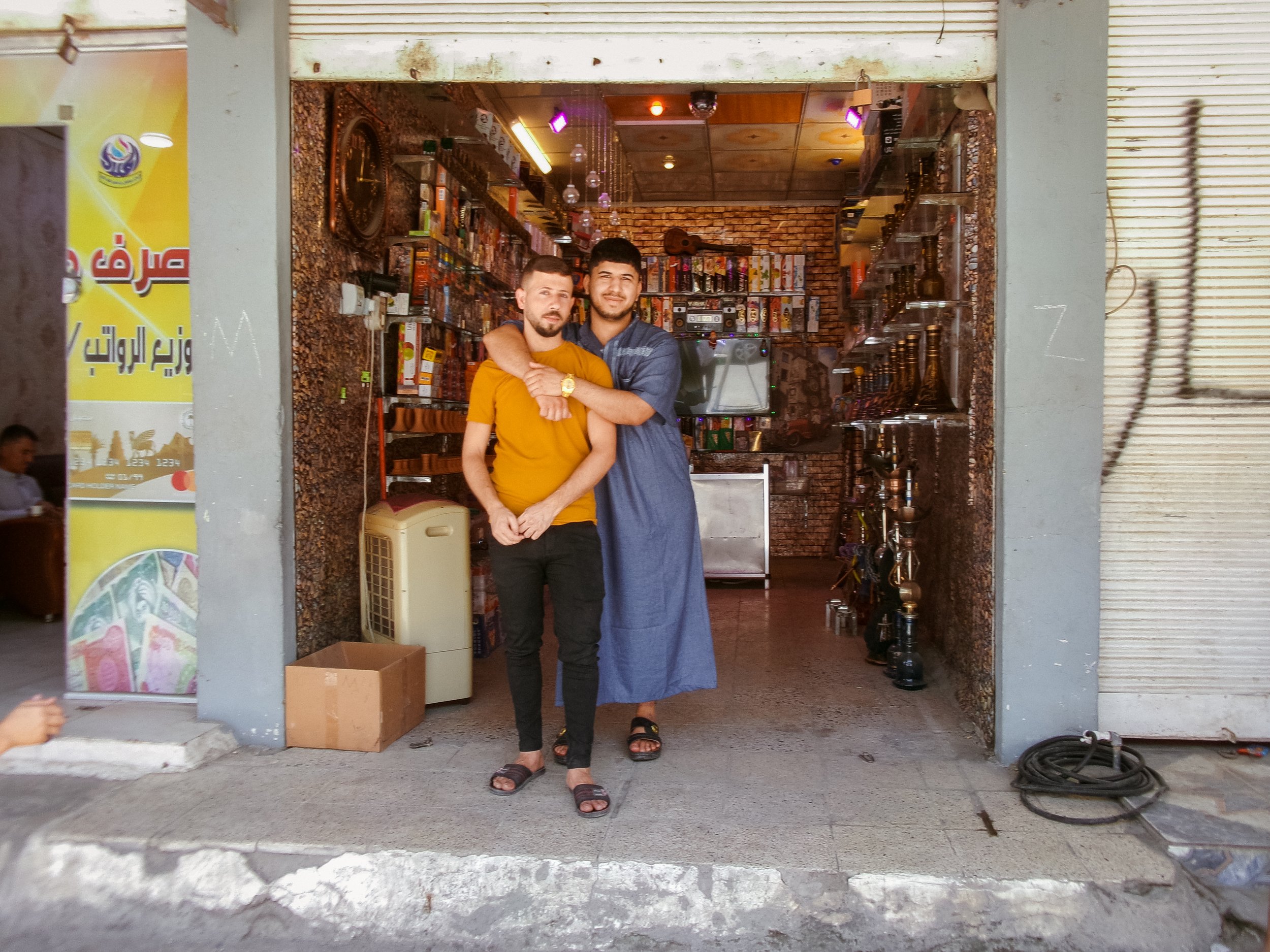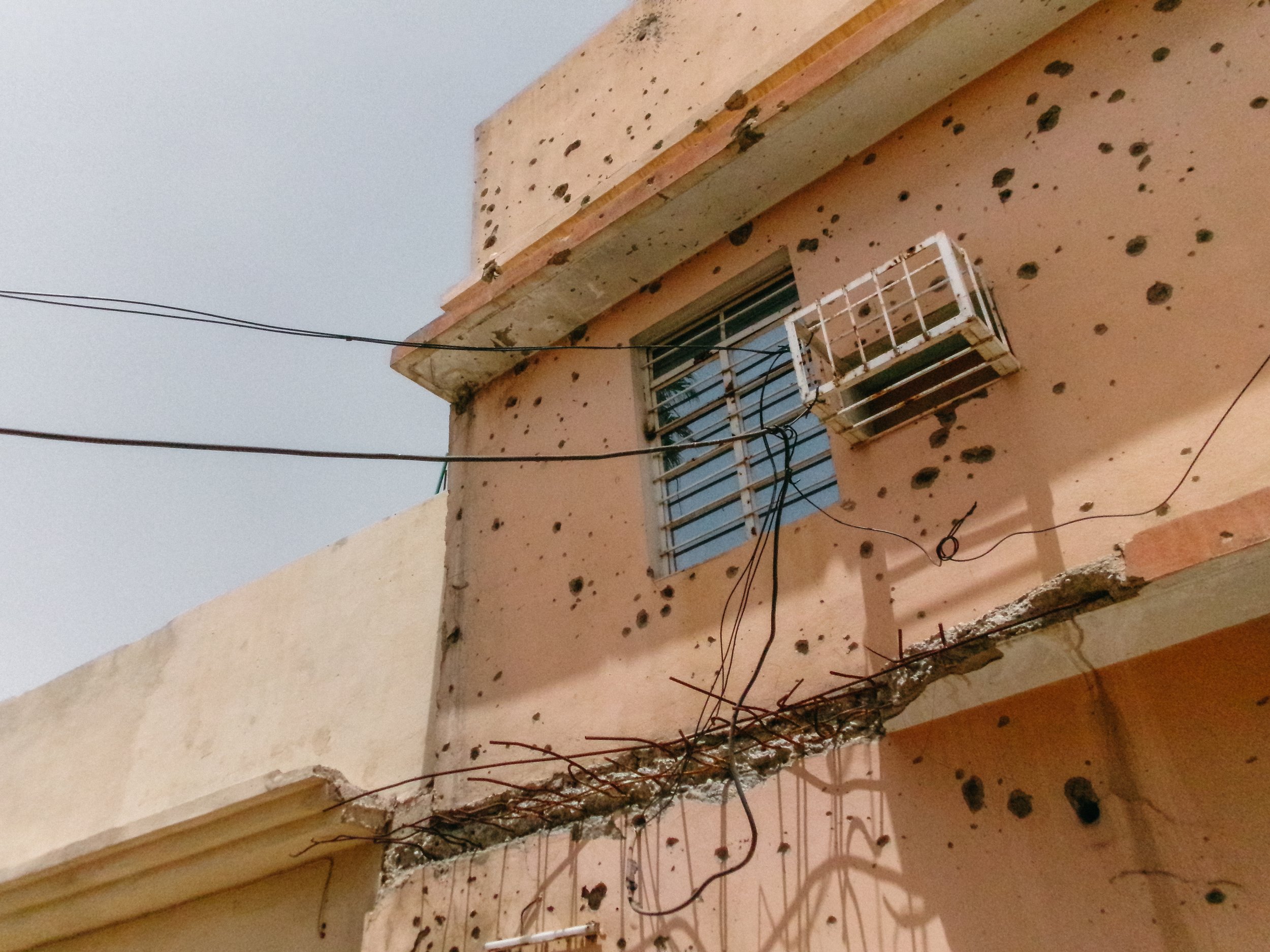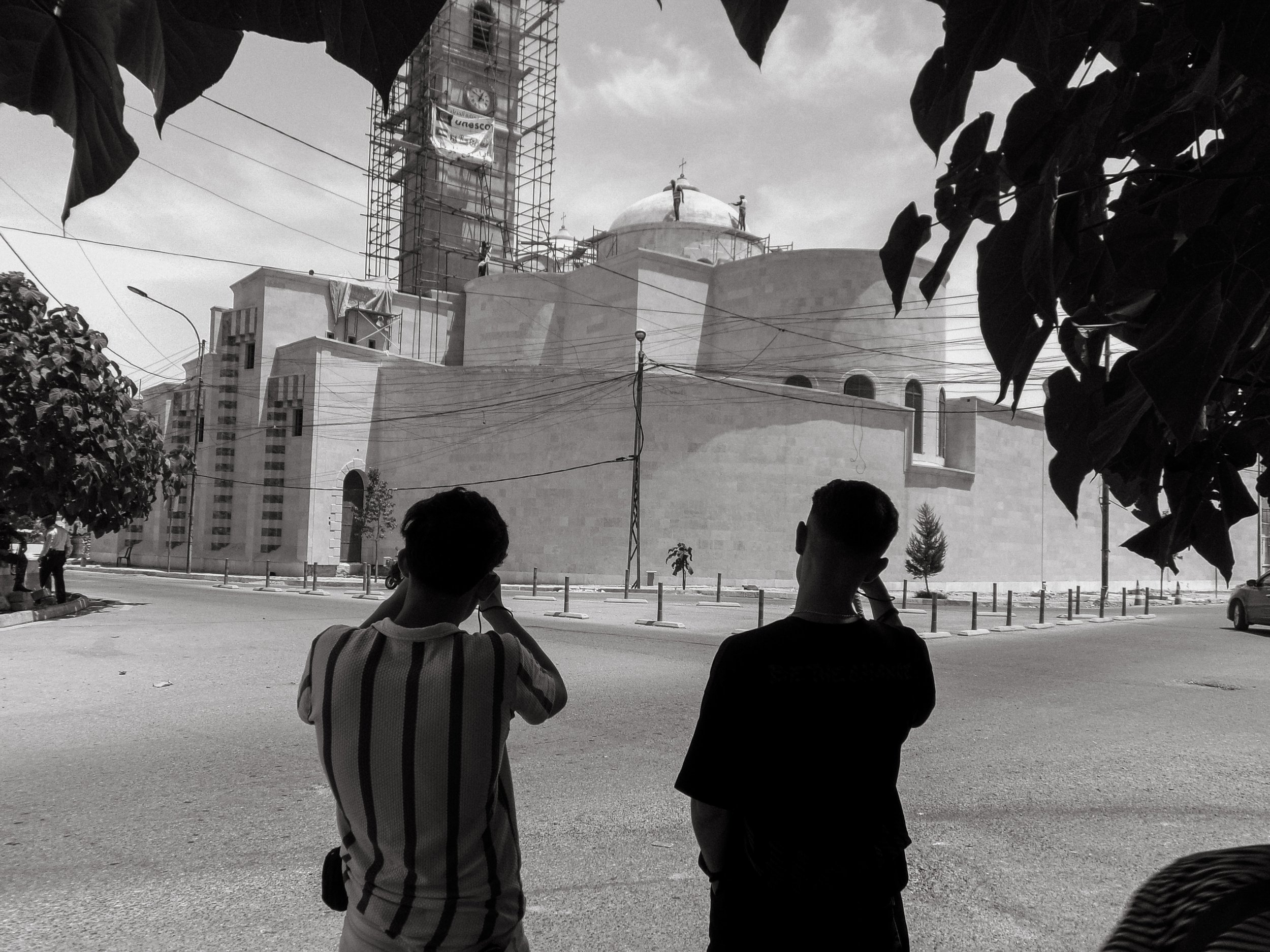mosul, iraq
100CAMERAS X UNIDIR
100cameras X UNIDIR is a part of a 5 class course that is custom designed by 100cameras to empower youth with the opportunity to learn how to process their stories and create change. Pictured here are student participants during the course.
ABOUT THE PROGRAM
100cameras X UNIDIR took place in Mosul, Iraq in partnership with UNIDIR, UNICEF-Iraq, IOM-Iraq, and Progress in Peace. The program worked alongside youth who had been displaced and were perceived as ISIL-affiliated often because of the association of a relative. This perceived affiliation can make it difficult to return home and go back to “normal” life. For many, conflict trauma and daily stresses post-displacement continue to weigh on them. Despite all they have been through, participants exhibited a remarkable willingness to engage in emotional processing and expressed their desire to share their life experiences.
The students created technically sound and emotive images that effectively conveyed multiple stories about themselves, their lives, and their communities. For instance, after one class session, a group of girls expressed their desire to write or tell their personal stories, particularly recounting the experiences their families had endured. Excerpts from their reflections further illustrate the students' openness and vulnerability. One 11-year-old girl eloquently shared her aspirations as well as her hardships, reflecting on losses during the war, particularly the passing of her father and her determination to try and move forward and pursue her education and a career in medicine to support her family. A 17-year-old girl emotionally connected with a photo of a boy sitting alone in a field, reminiscing about her own difficult experiences after her father's passing. The photograph evoked strong feelings of sadness and stress, and led her to share her heart-wrenching story of coping with the loss and the challenges and hardships her family endured, including losing their home and other family members.
The stories and perspectives shared alongside their photography conveyed the profound impacts of war, displacement, and limited access to resources on their lives. When asked to choose a photo that represented a low point in his life, one 17-year-old boy picked a photo of “a pole standing steadily, and despite the circumstances, it remained still.”
“My feelings are happiness, thinking that someone in another country in this world will know about me and get to know my story, because I need that!”
Despite everything these young people have been through, their resilience and hope for the future shone through their expressions.
The program created a safe space to process these experiences and served as a platform for emotional healing – something the participants appeared to lack in their lives. One 17-year-old girl stated that for people like her, when times are difficult, “They need someone who can listen, and understand them and feels them.”
“It is also clear that the program fostered a sense of community building among the participants… The program's participatory approach, allowing participants to shape their stories, cultivated a sense of confidence and self-assurance, empowering the youth to navigate the complexities of their lives with strength and determination. This was clear in the pre-program and post-program surveys, where shifts in optimism about their role in their community, pride, confidence to share, and a greater sense of agency were clear,” as reflected in UNIDIR’s research.
One 16 year old girl, when asked at the beginning of the course if her perspective and life story matters to others, she responded, "Neutral". After the program, her perspective had changed, and she answered that her “story was important and it represents my confidence.” She said, ”I can express myself better now.” This stands in contrast to her sentiment at the beginning of the course; when asked if she thought she could make a difference in her life and in her community, she had previously responded, "No!"
“Now I can feel confident for expressing myself after this course because now I have enough information and experience after this course. Yes, I can make a difference in my life in the future, because the course encouraged me to achieve more with confidence through photography or in real life.”
It became evident that participants needed more of these opportunities in their daily lives – for mental health support, to express themselves, and to see their voice uplifted in telling the story of their families and community. When asked what young people like him need to help them when times are difficult, one 14 year old boy replied, “To be heard is what they need.”
When the youth participants were asked what peace meant to them, many of them spoke of the ability to walk through the streets without fear, to greet – and be greeted by - their neighbors with kindness, and the opportunity to pursue their aspirations. When they took photos to try to capture moments in their lives, they often spoke of the feeling of peace captured on film. Images taken of the river, flowers, trees, and clean streets with adults looking out for them. The young Iraqis who graduated from the program left more confident of their place in a new peaceful Iraq.
LOCAL LEADERSHIP
Zeena Hanna, Program Facilitator
Zeena moved to Duhok more than 18 years ago. Before that, she spent her childhood in Mosul. This transmission made her realize what the children of Mosul face. Zeena now is a new graduate trying to find her passion, trying to find why she is here. She sees herself happy when she is around children, so she is planning to be an English teacher soon, for now only volunteering here and there and making the use of her energy. She is also interested in environment, she encourages all of who are around her to plant more and reduce plastic. She believes that if we live in a green clean environment we could live in peace. Zeena now works as sales manager in a company, also as a volunteer in an NGO called Progress in Peace. She feels happy when she does something for people with no return. Zeena doesn't think leaving her country, she thinks that we should all together contribute to make our country better.
Ahmed Khaleel, Program Facilitator
Ahmed is an English language teacher and passionate about spreading peace however possible. Born and raised in Sinjar, where people were from different backgrounds and lived peacefully together, Ahmed had a complete picture of living peacefully. Having been forced to flee his hometown and became an internally displaced person, sparked the passion of being part of achieving peace. Ahmed focused his later years volunteering and working with NGOs that provided peace workshops, humanitarian aid and psychological support. When they’re not at work Ahmed is an avid football fan and loves spending time with friends and family.
MEET THE STUDENTS
“One of the girls started talking to me about the 100cameras journal which is where their responses to many of the curriculum prompts were written. She expressed, ‘This one is so different. I had the same kind of journal, but I do not write in it a lot. This one is so different. All that is in my heart is in this journal. So can I keep it?’”
STUDENT IMAGE GALLERY
“It’s a satisfying feeling to share my story.”
IN PARTNERSHIP WITH UNIDIR
This program was organized under a larger research project - UNIDIR’s Managing Exits from Armed Conflict (MEAC) initiative - and was run in concert with the work of UNIDIR, Progress in Peace in Mosul, UNICEF’s country office in Iraq, War Child UK, Bridge (Iraqi NGO and consultancy), the Swiss FDFA, and IOM’s country office in Iraq. The goal of the pilot program was to ensure that young people in Iraq help inform action research on peacebuilding through the creation of images that represent several of the main themes of the larger research project. This action research will in turn inform policies and programming decisions that will impact Iraqi youth like the pilot participants, and thus their involvement in this pilot, and other participatory research activities, are key to ensuring they have a voice in these choices. Furthermore, the pilot sought to help participants build skills that they can apply to a range of educational and professional pursuits while also providing an outlet for enjoyable activities and play.
In collaborating with MEAC’s research in Iraq, the 100cameras curriculum was thoughtfully adapted to address relevant research themes. All prompts and activities were child-sensitive and reviewed by a team of practitioners working to protect and support conflict affected young people. Using group discussions, photography and storytelling activities, and reflective prompts, the program allowed participants to contribute to UNIDIR's broader research project and enhance the ways in which research findings are communicated.
Follow us on social media to see images from the field as captured by the 100cameras X UNIDIR team and the student photographers.




